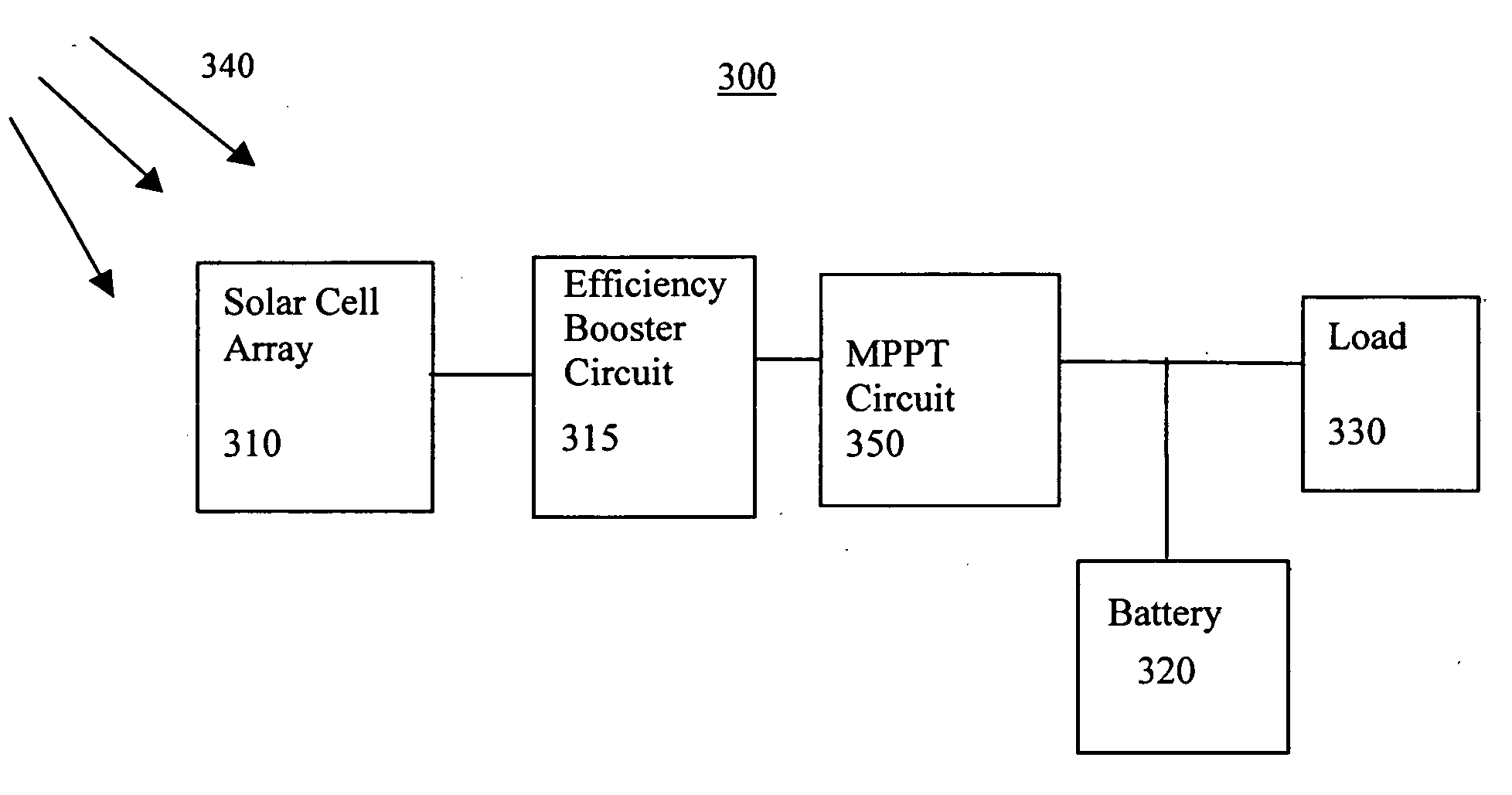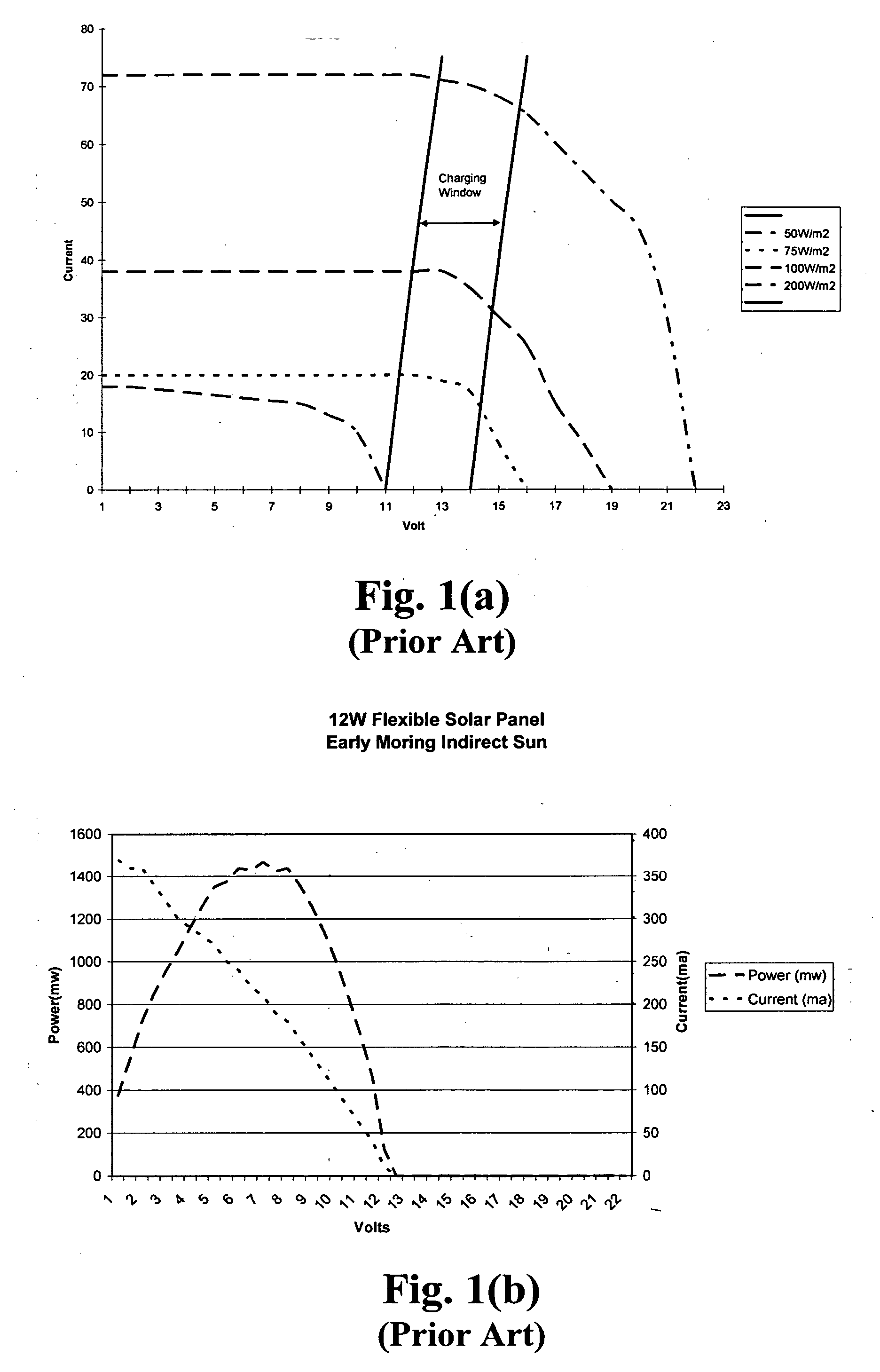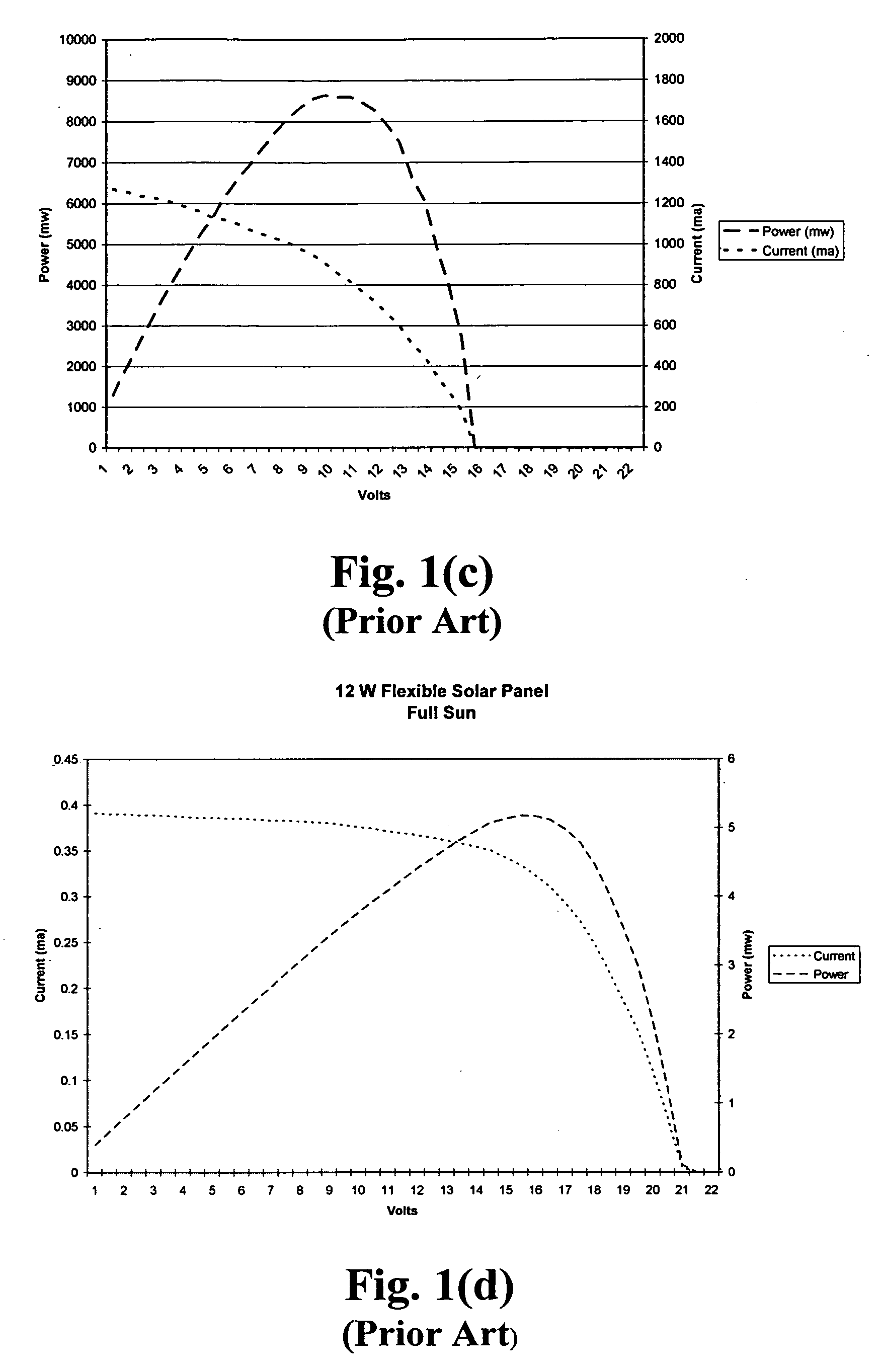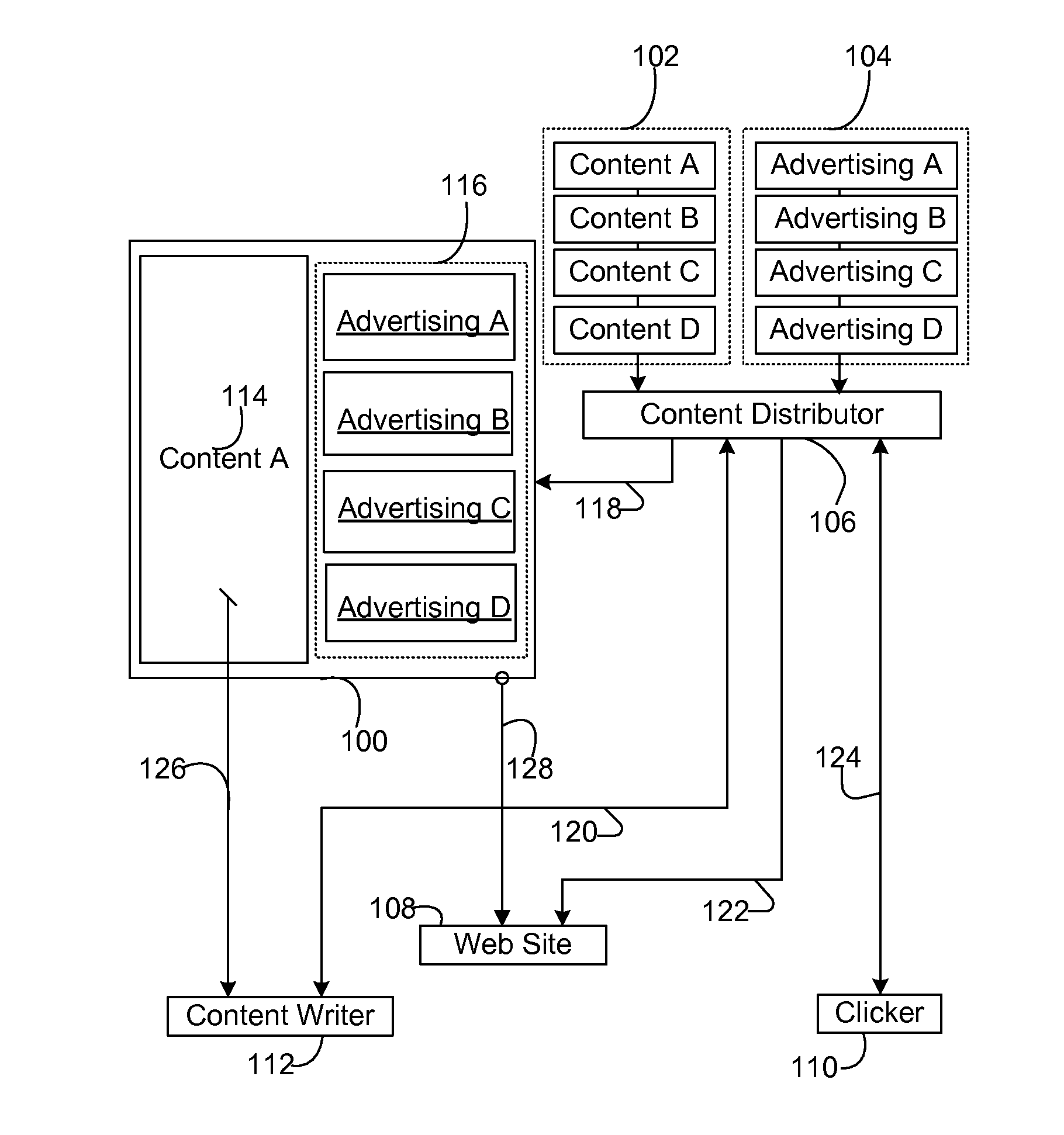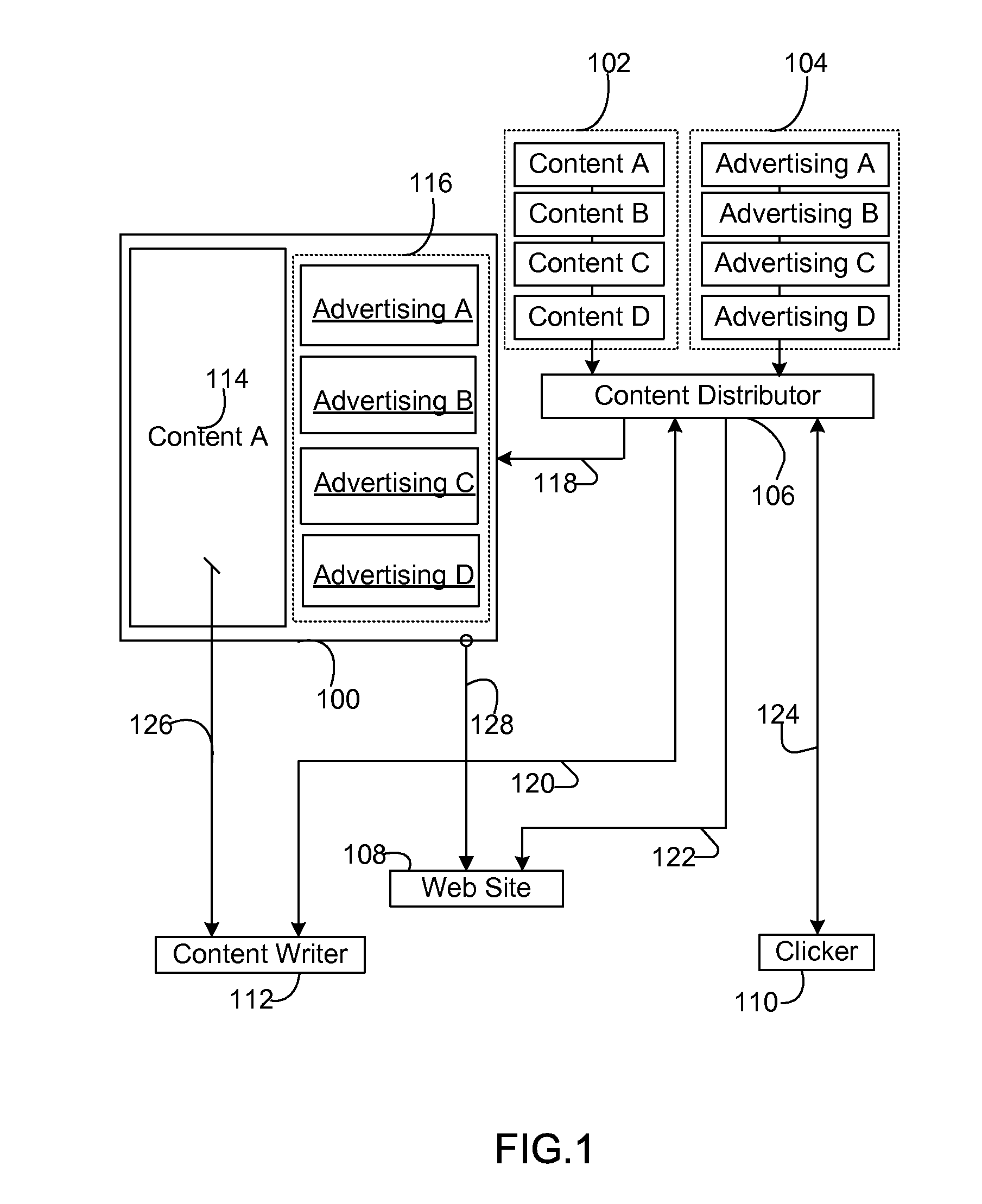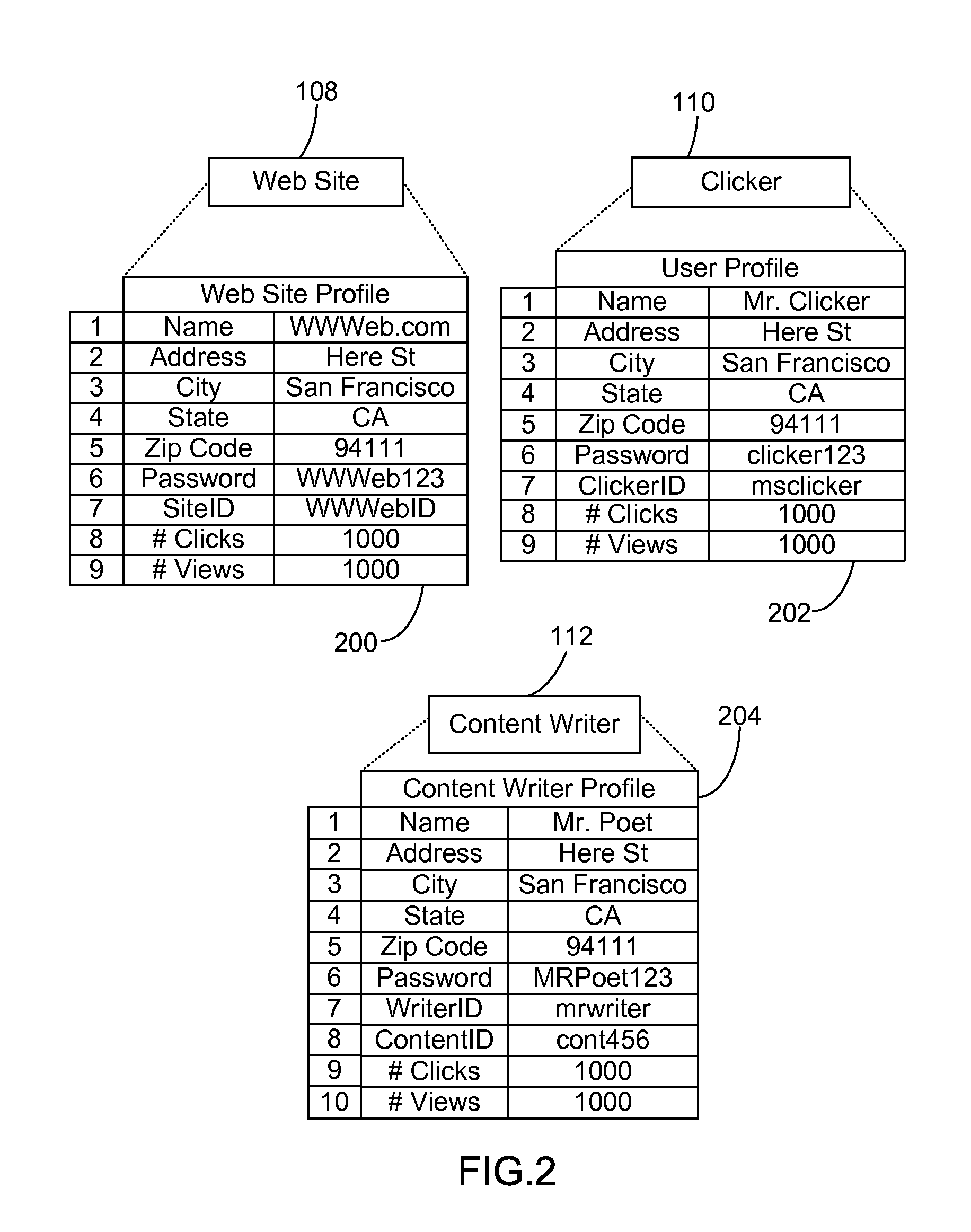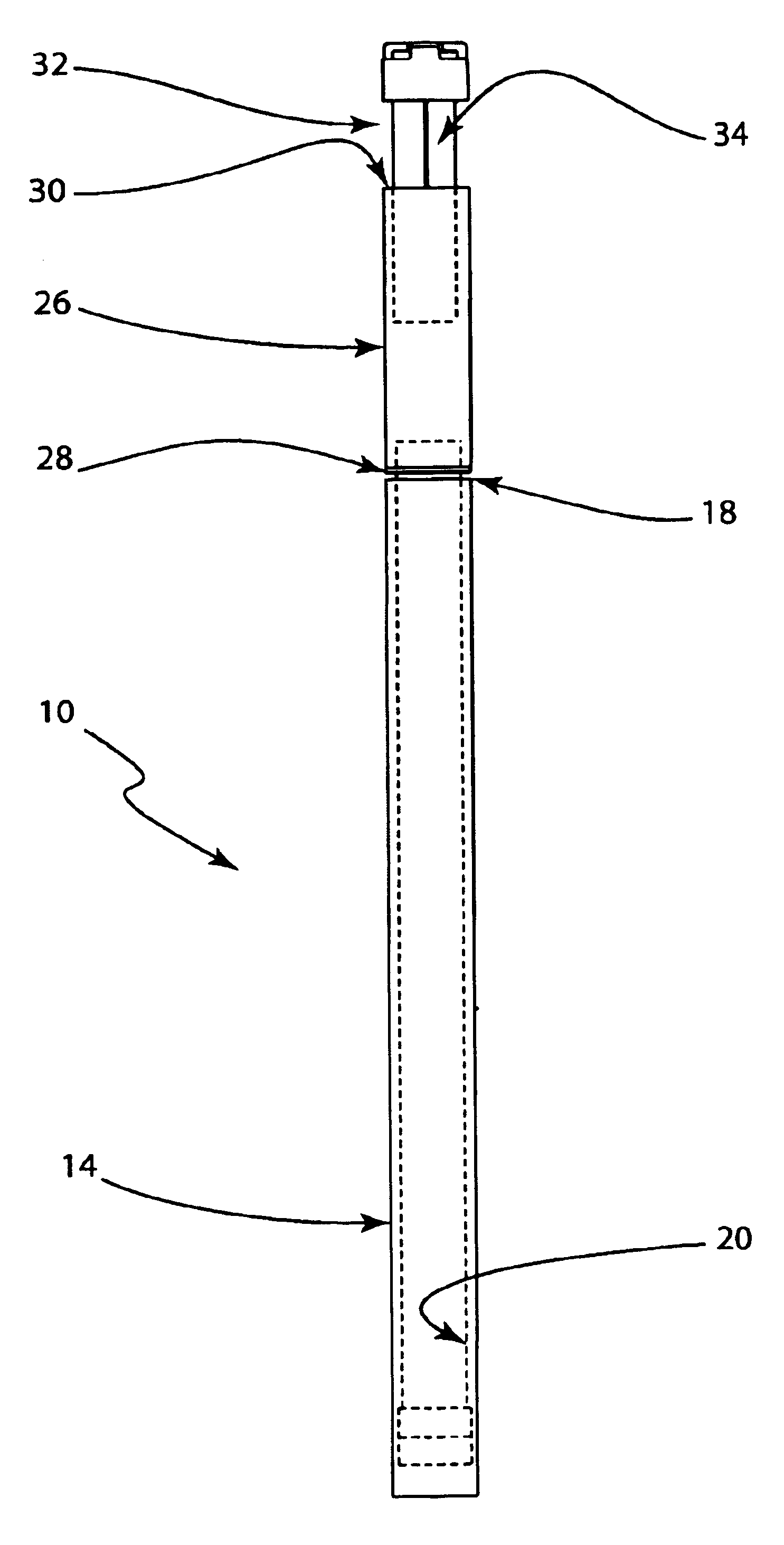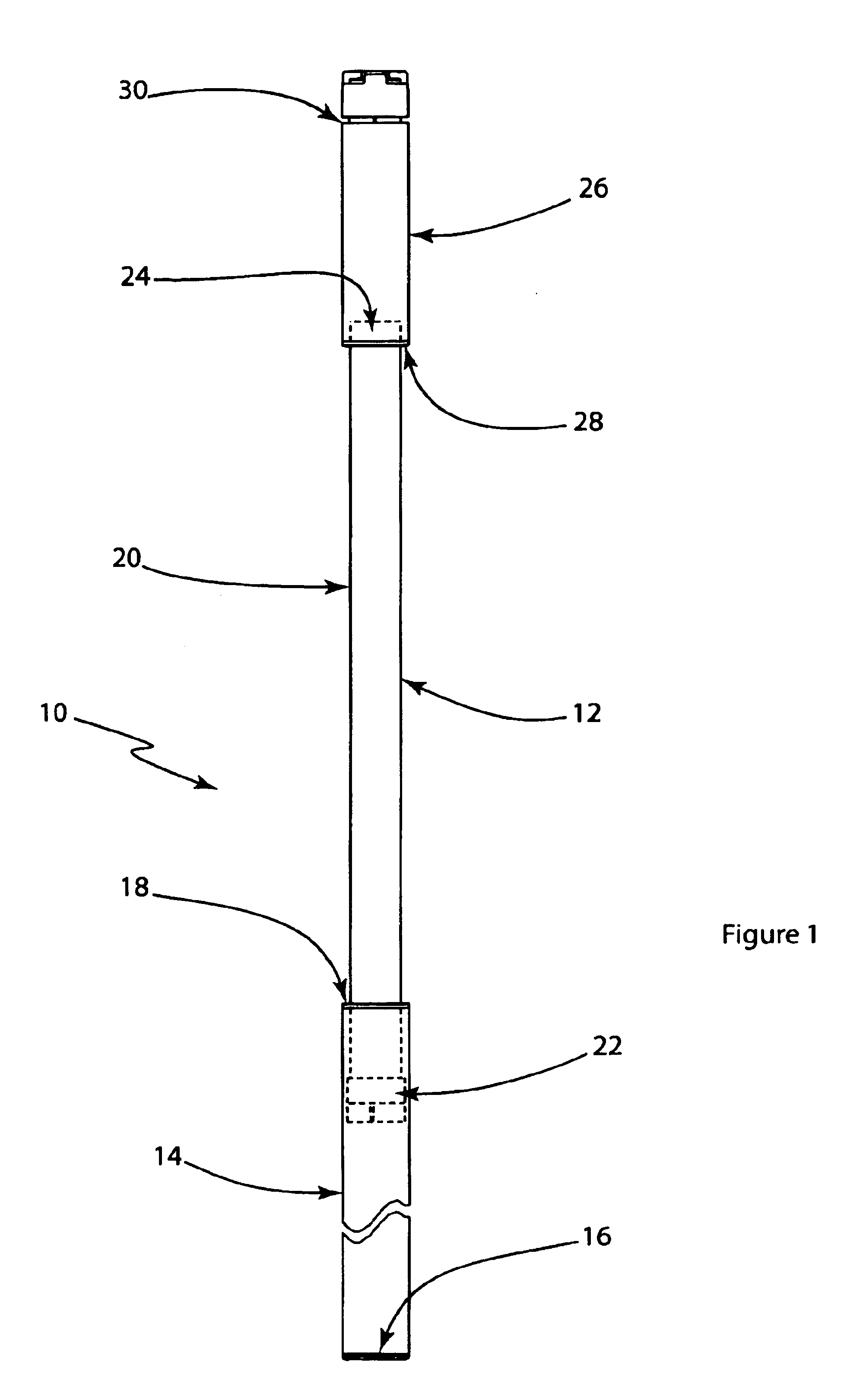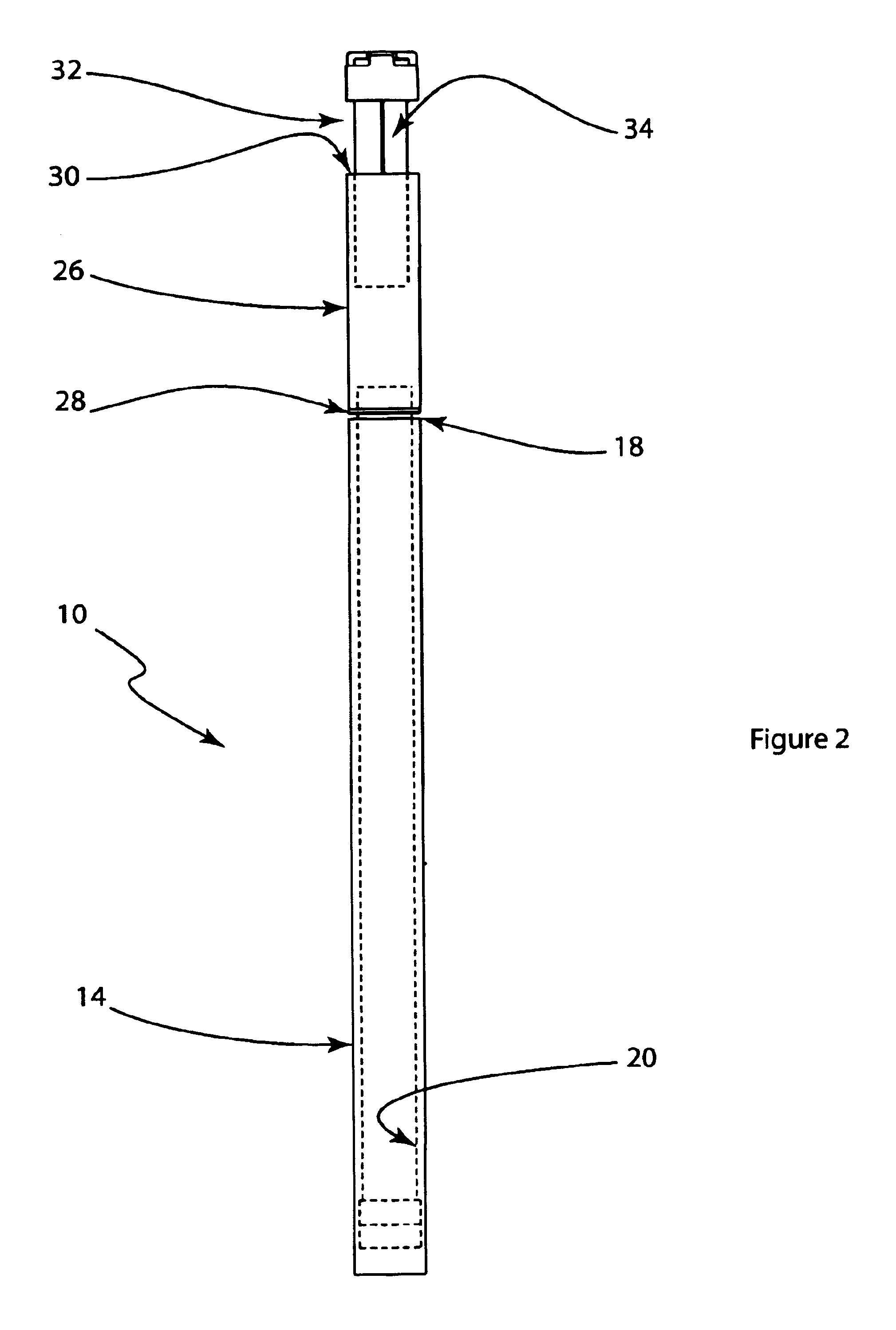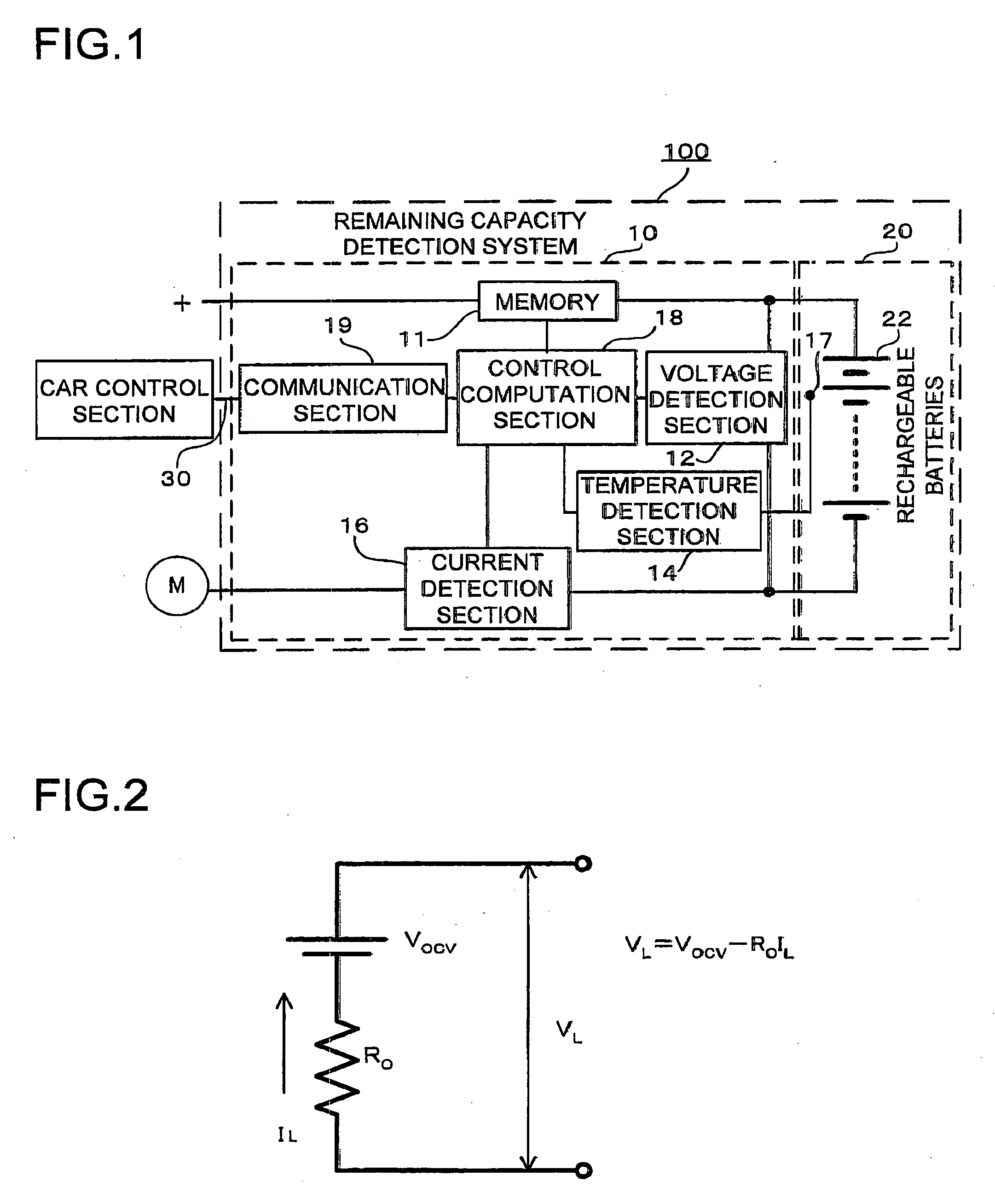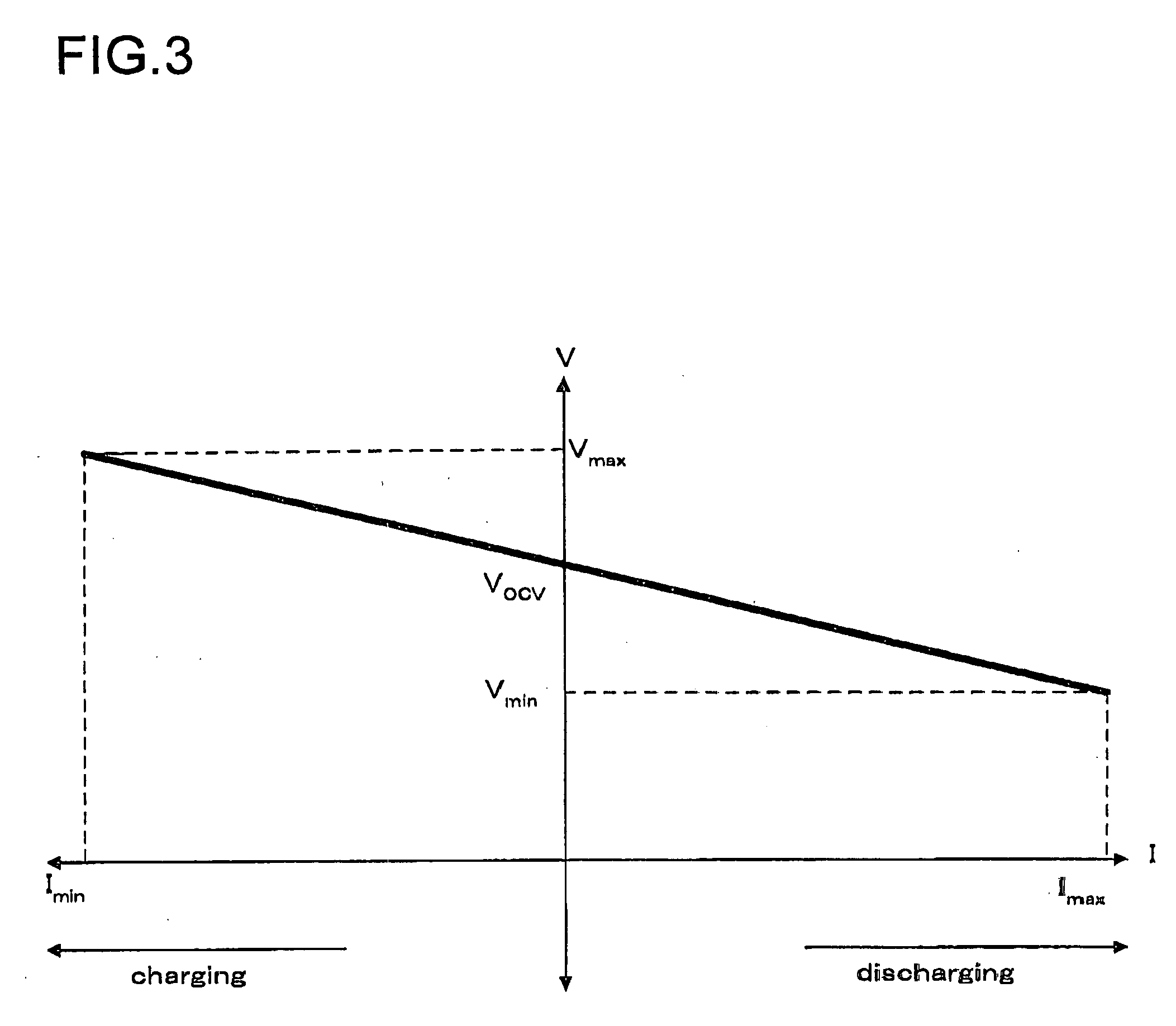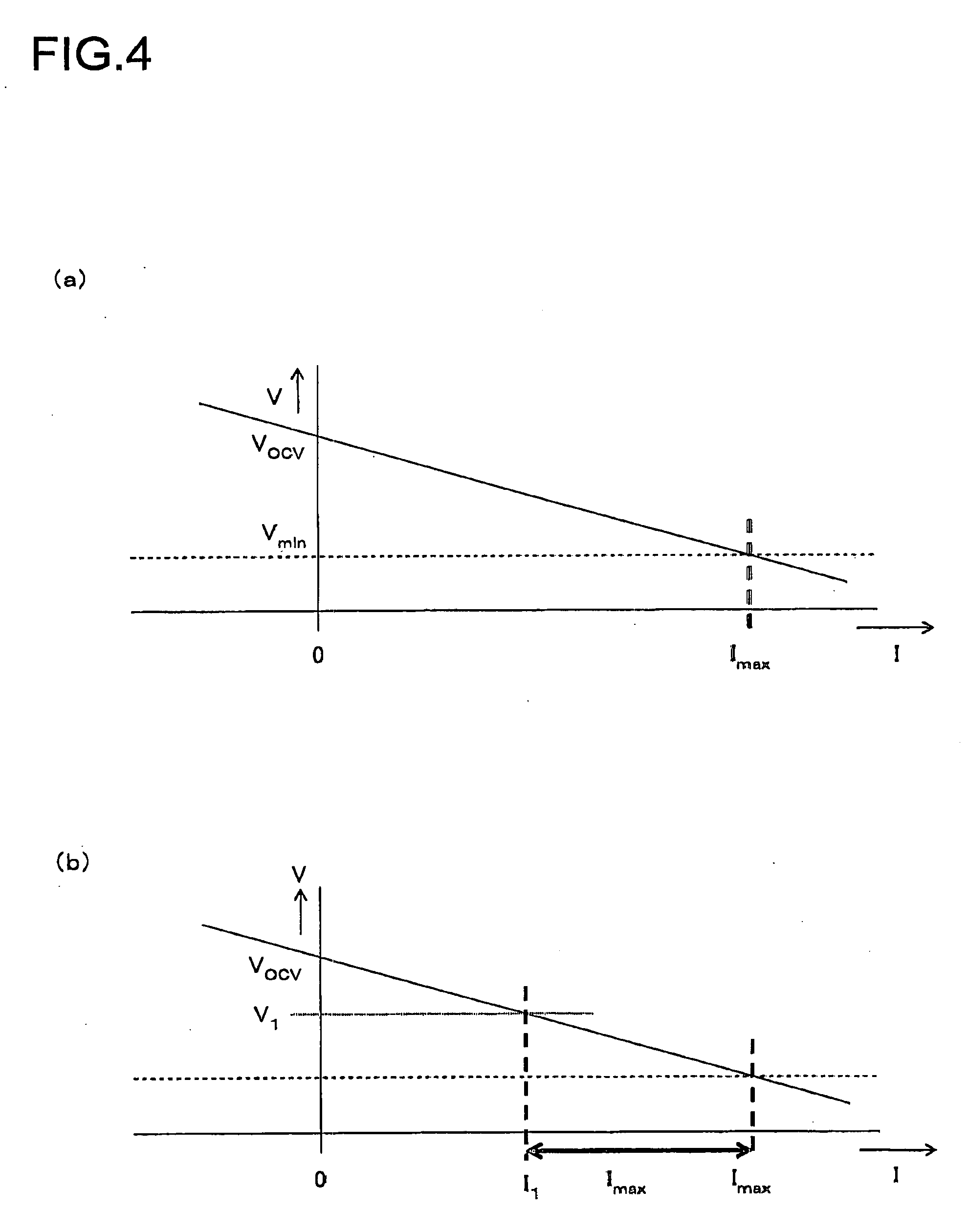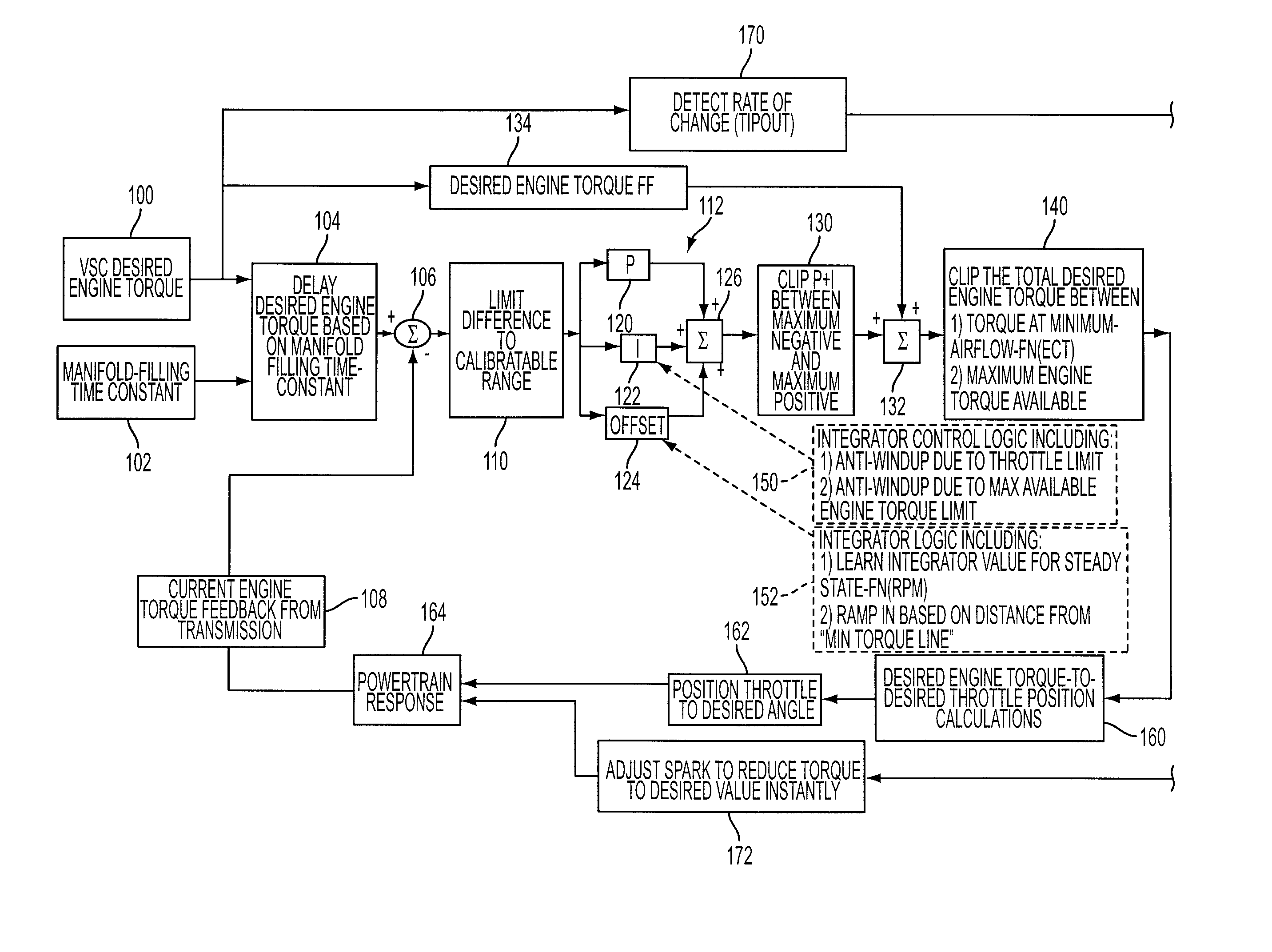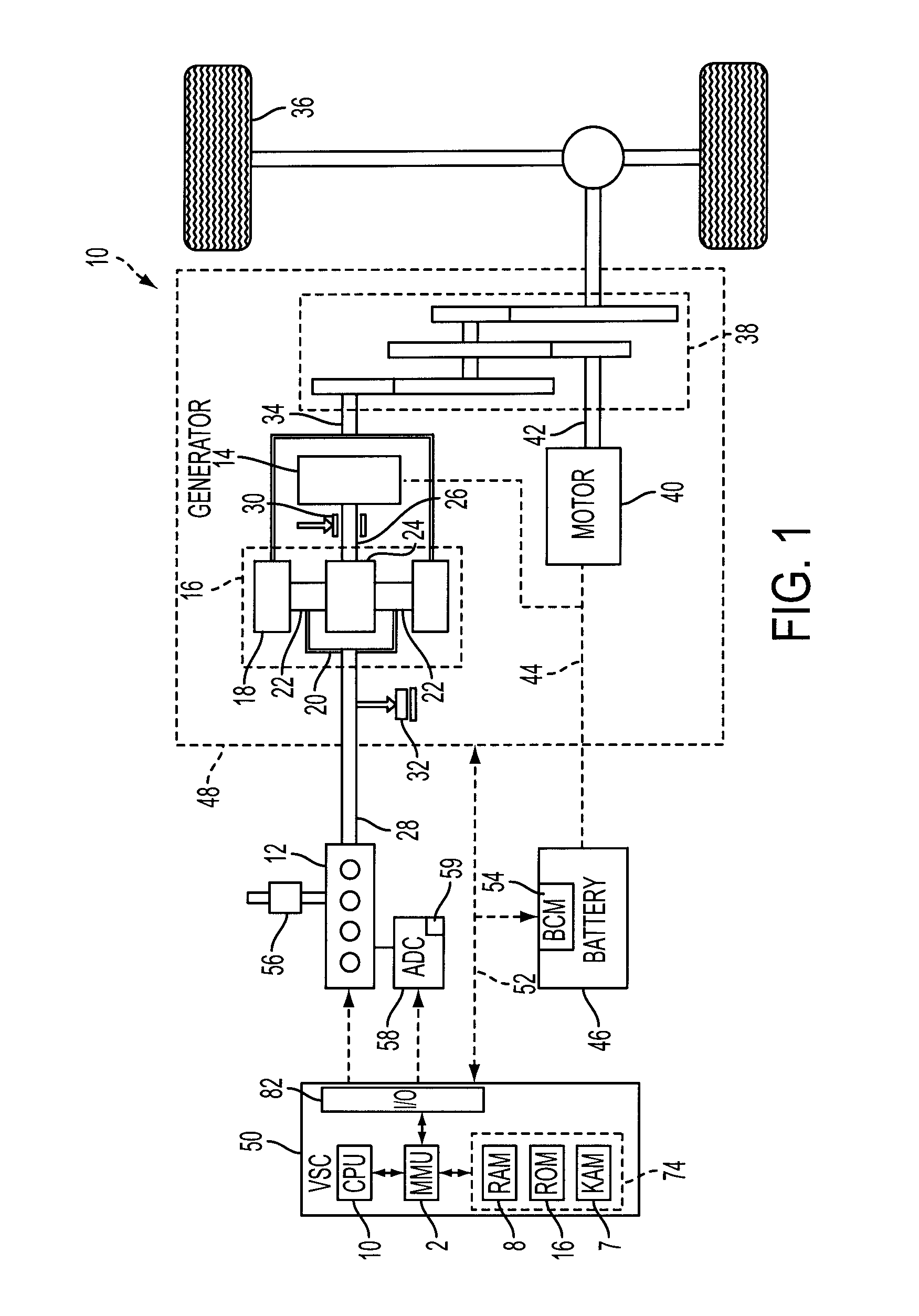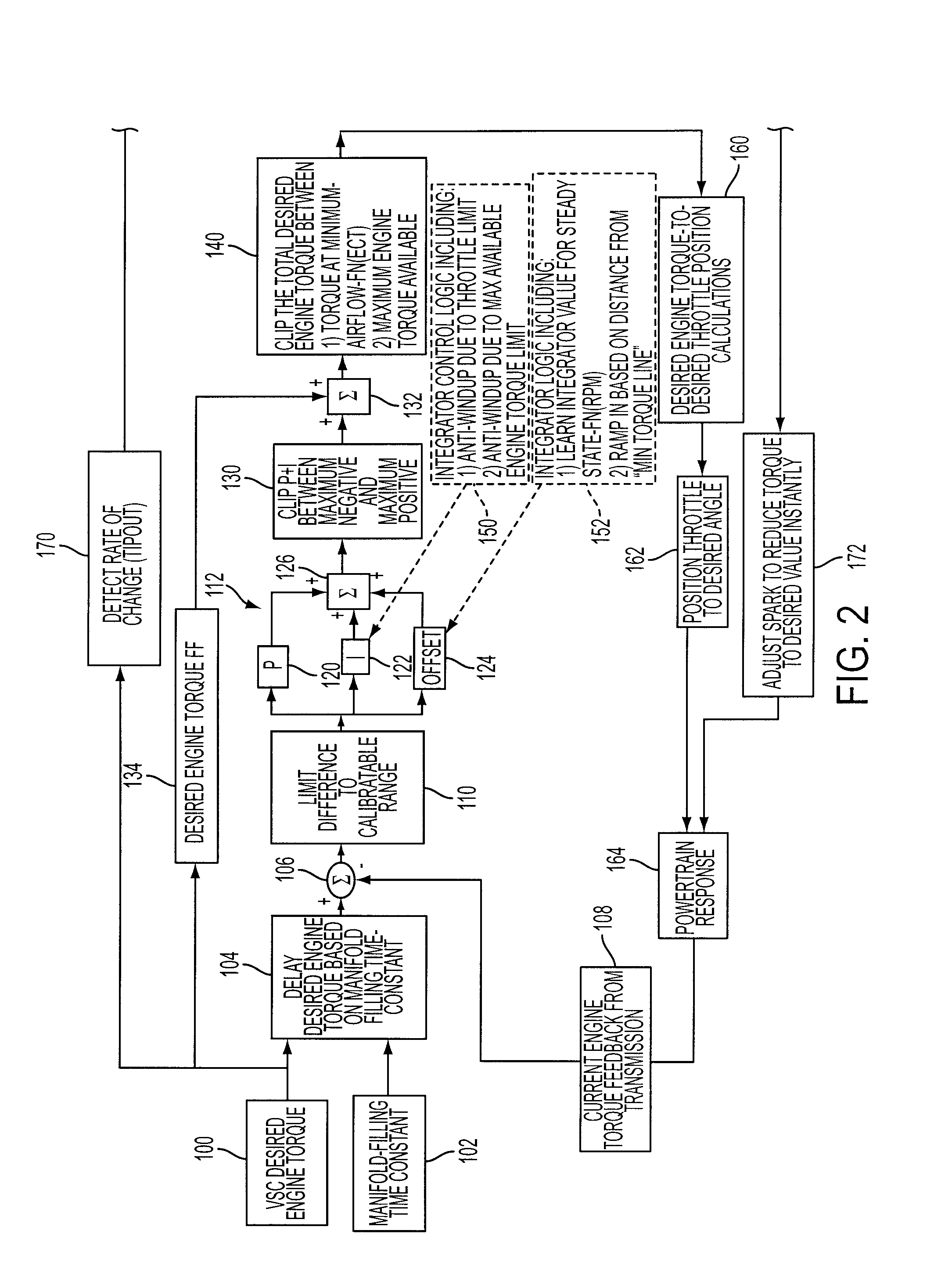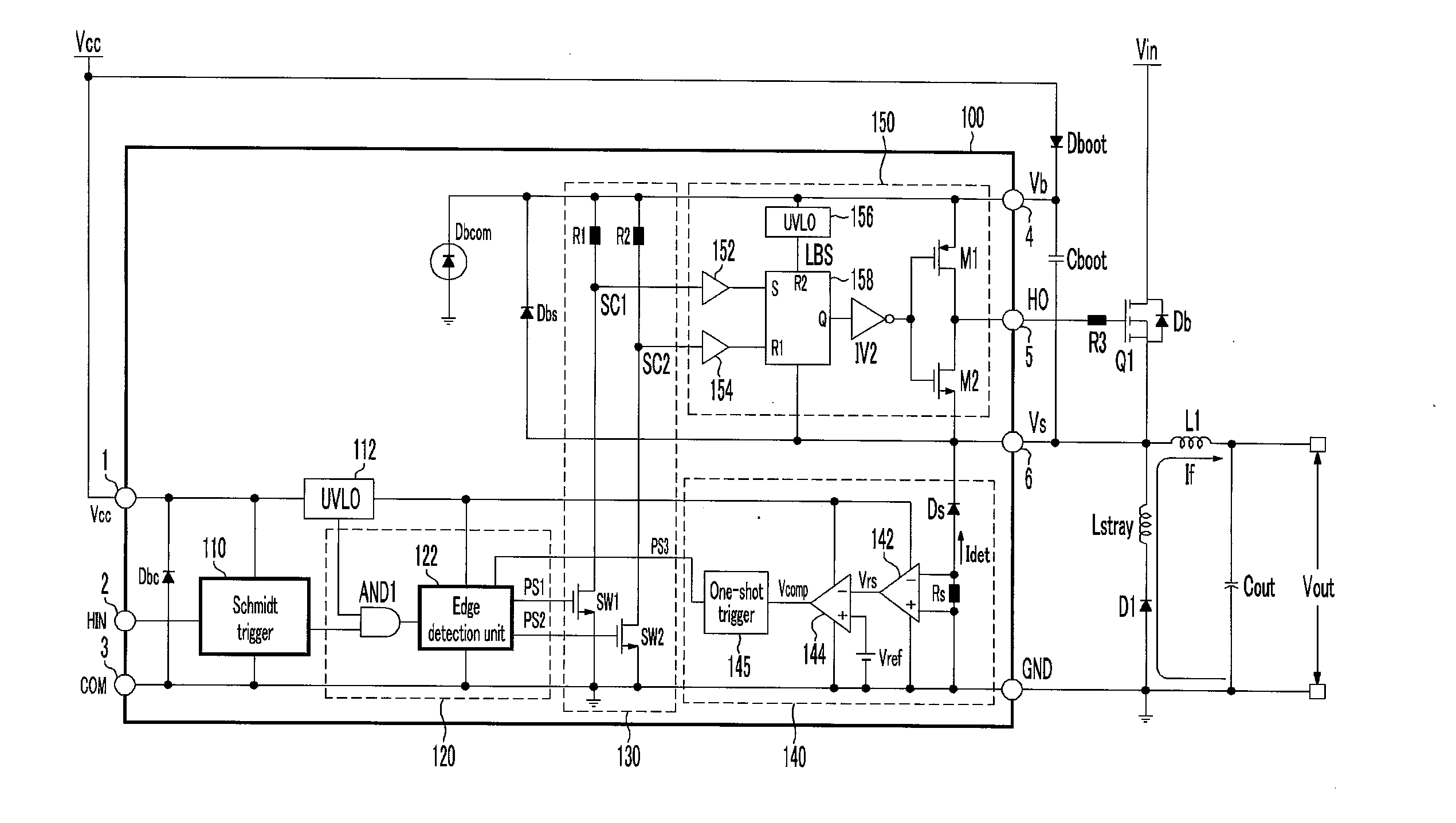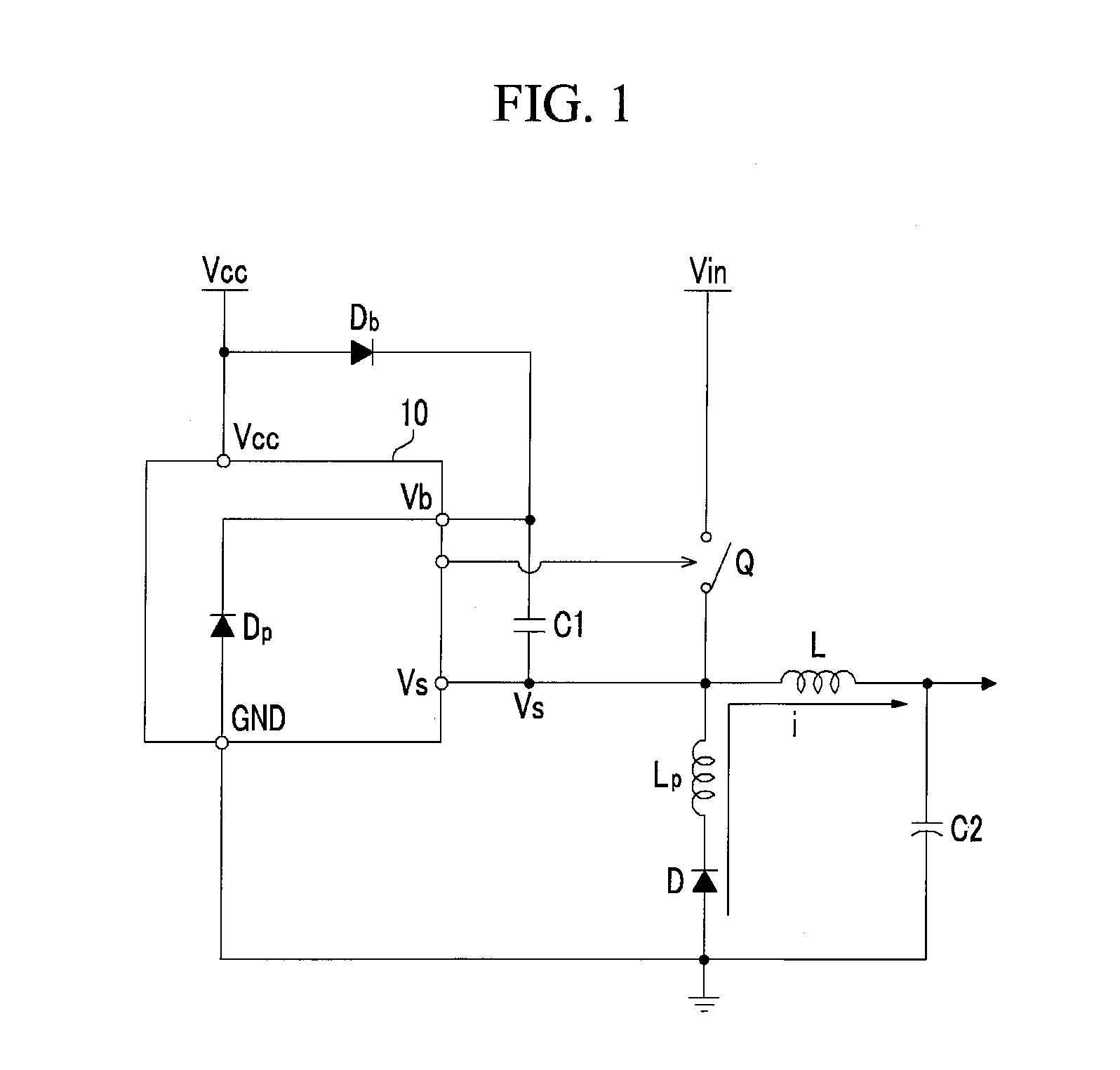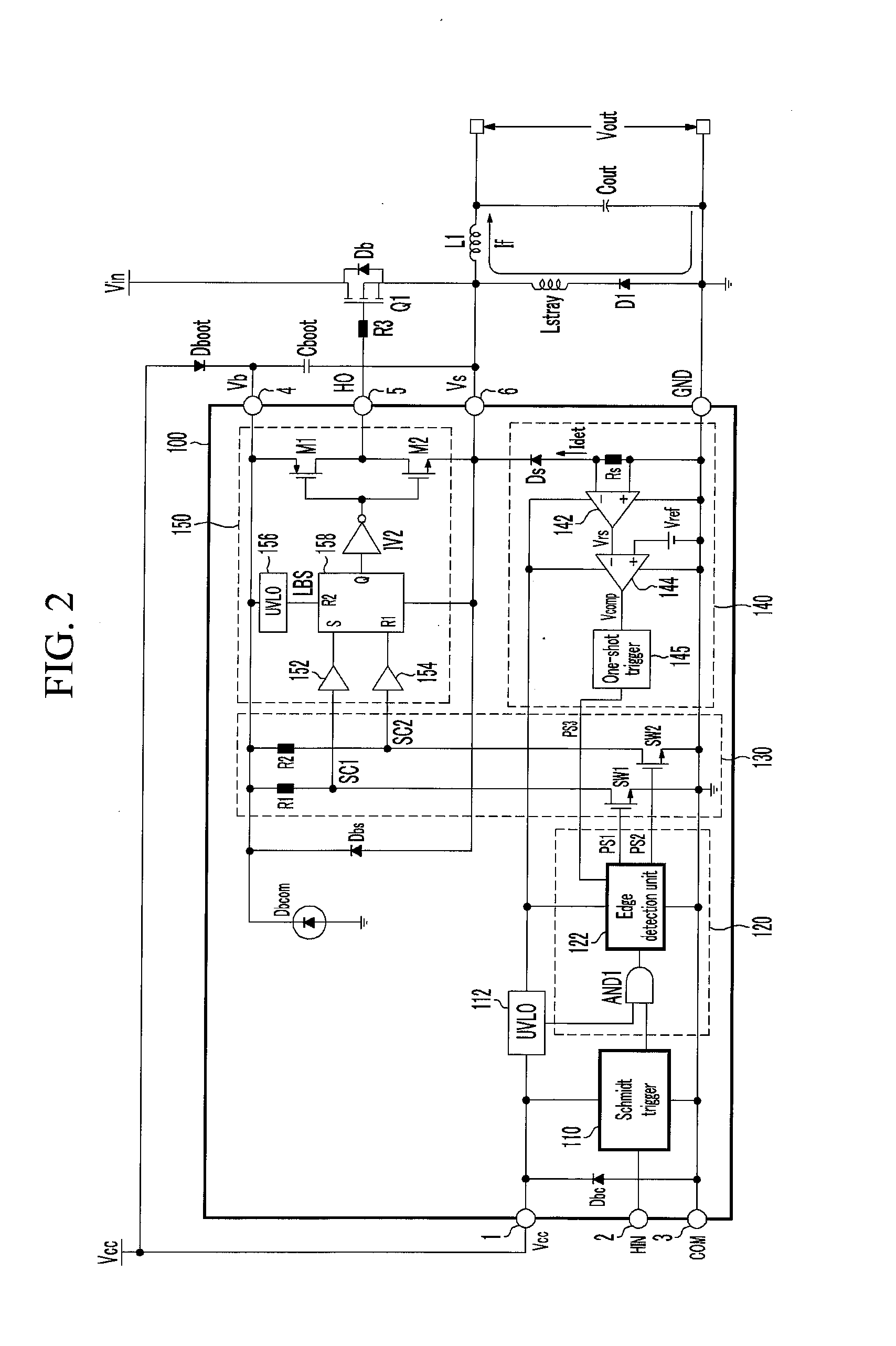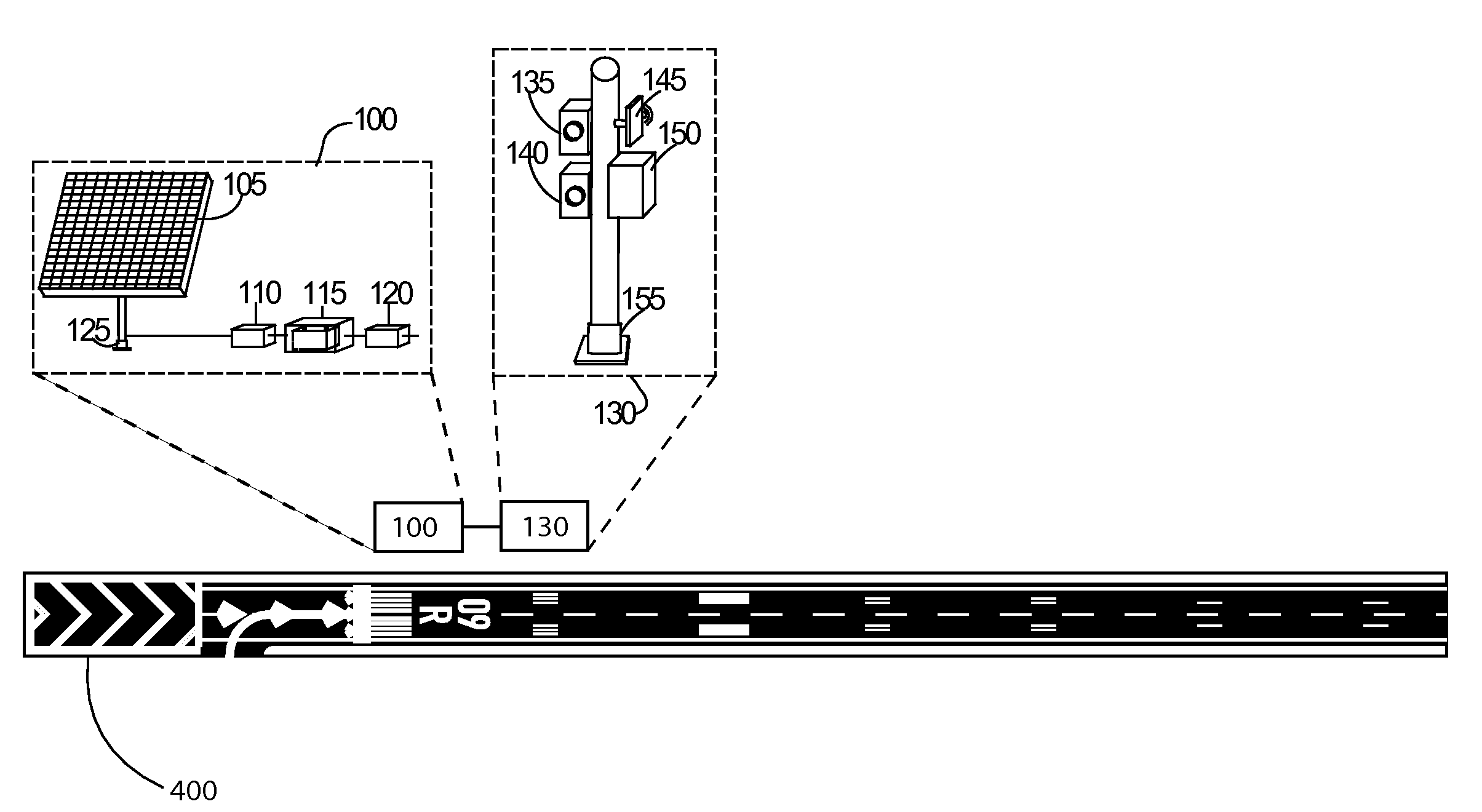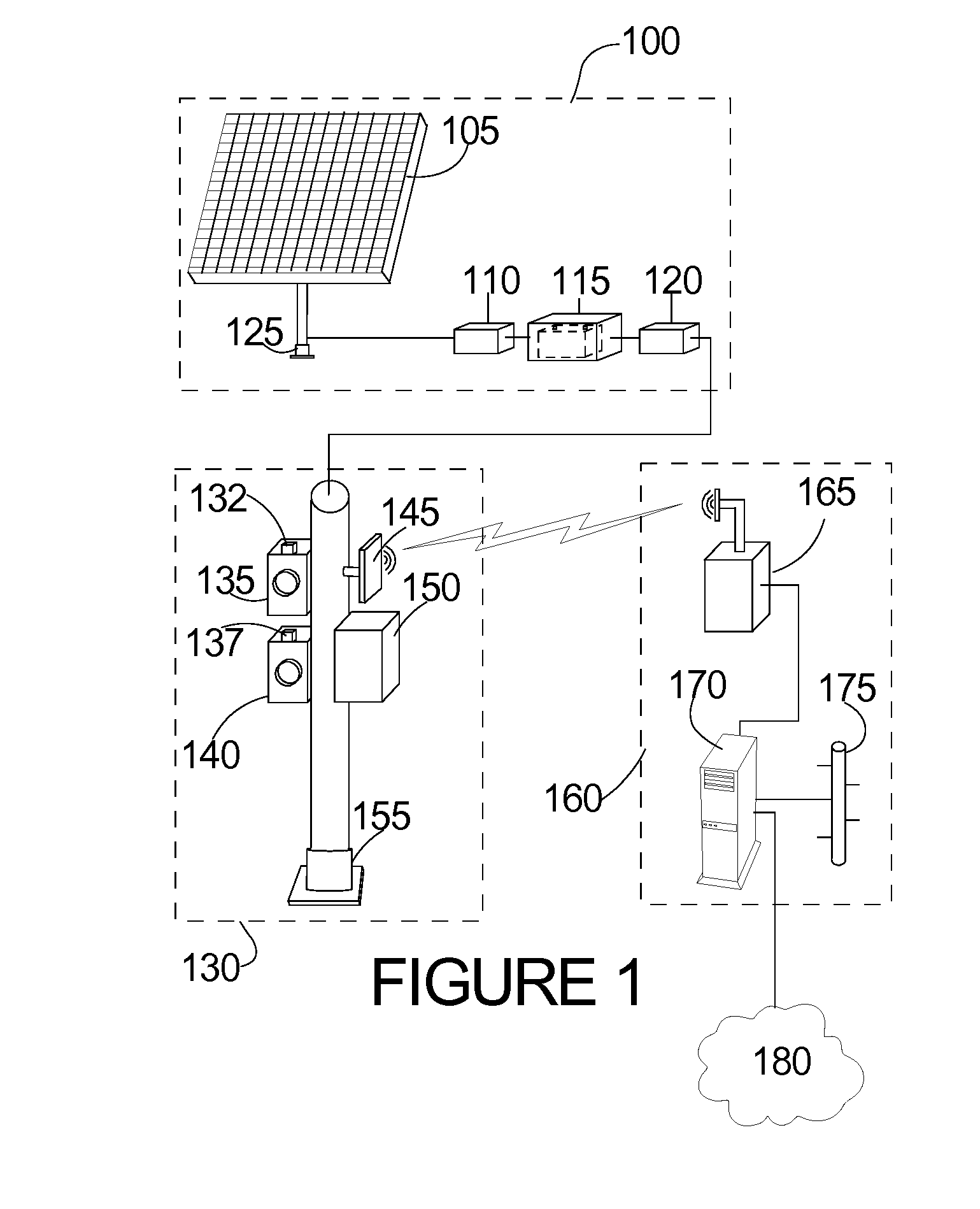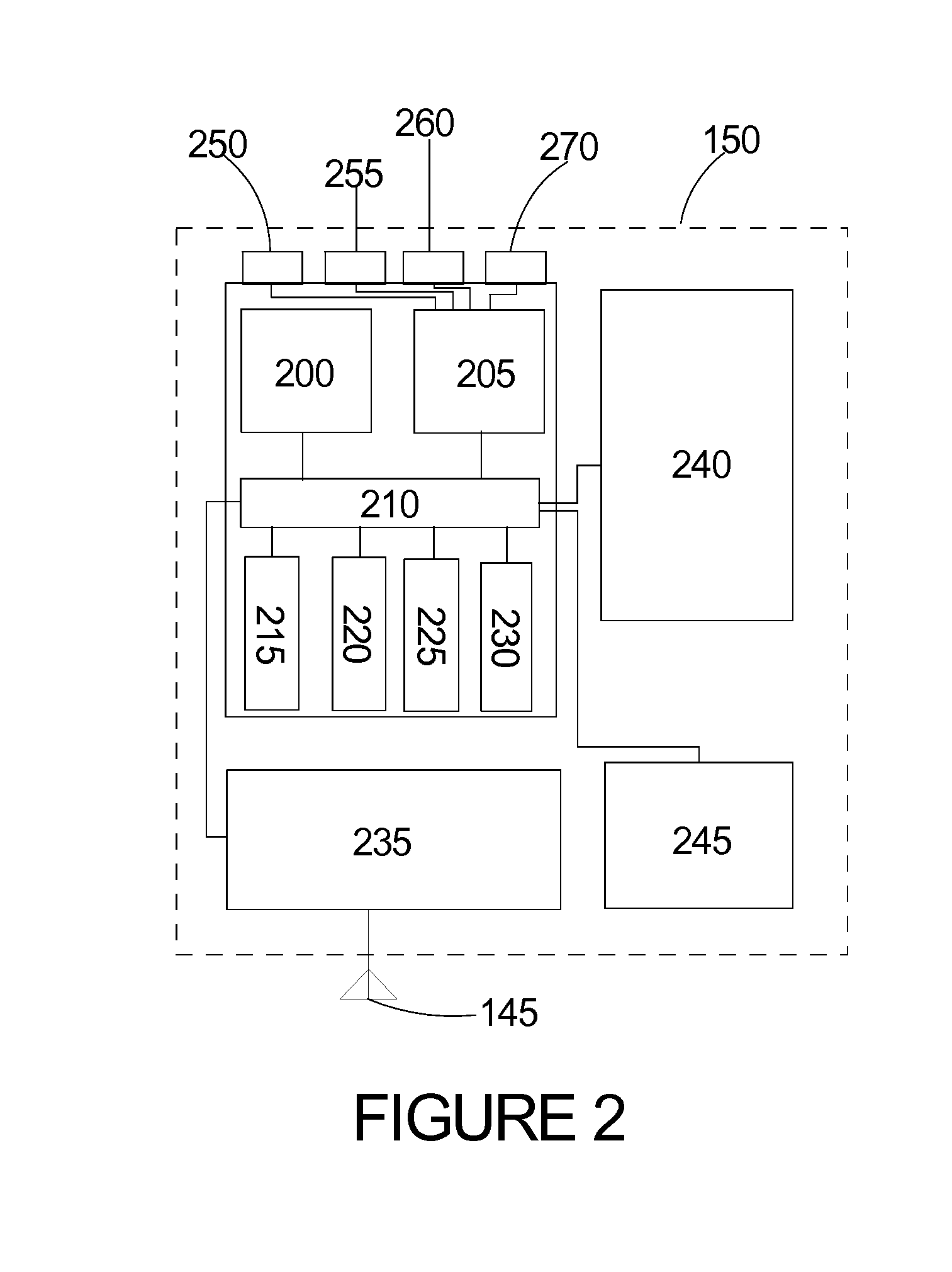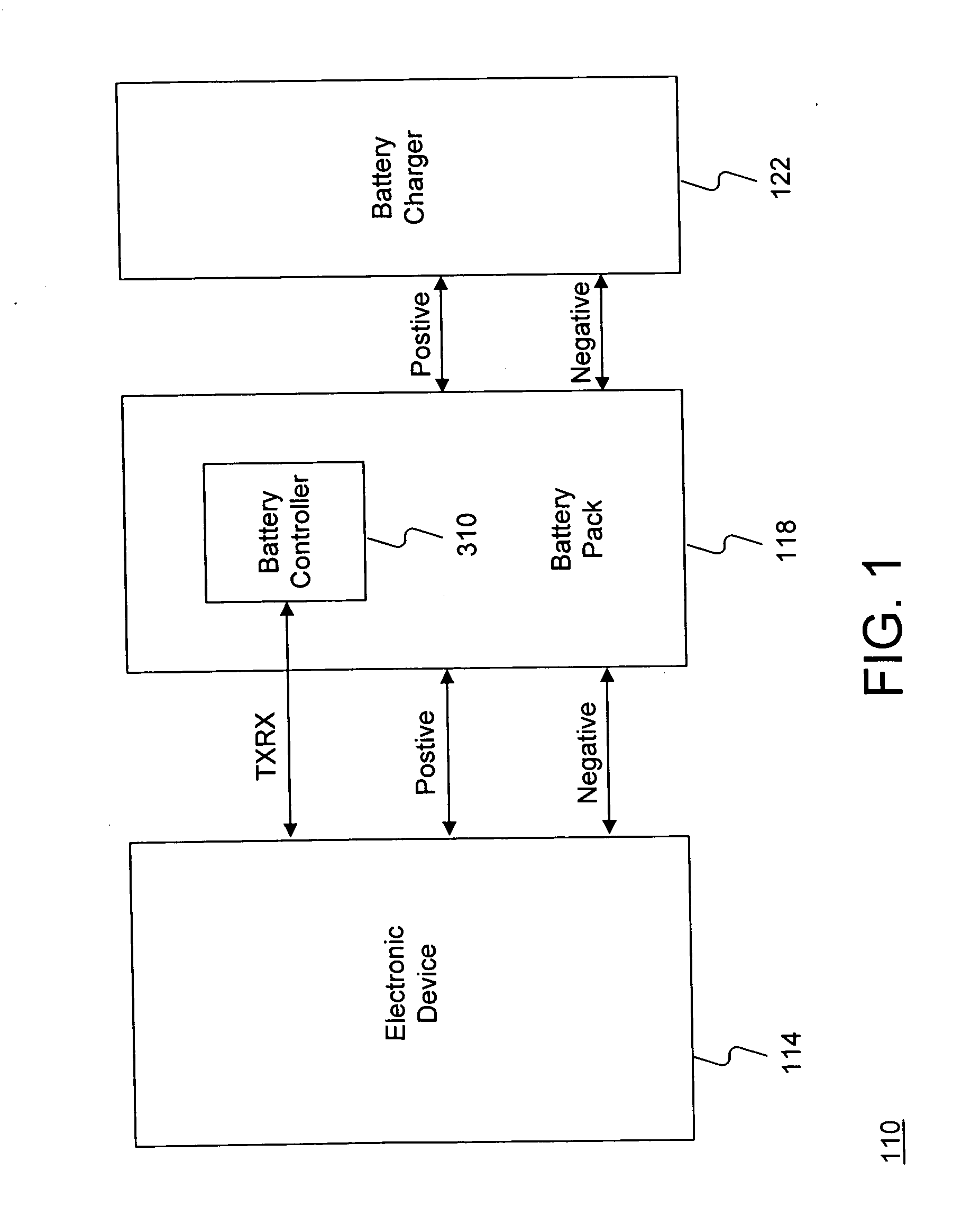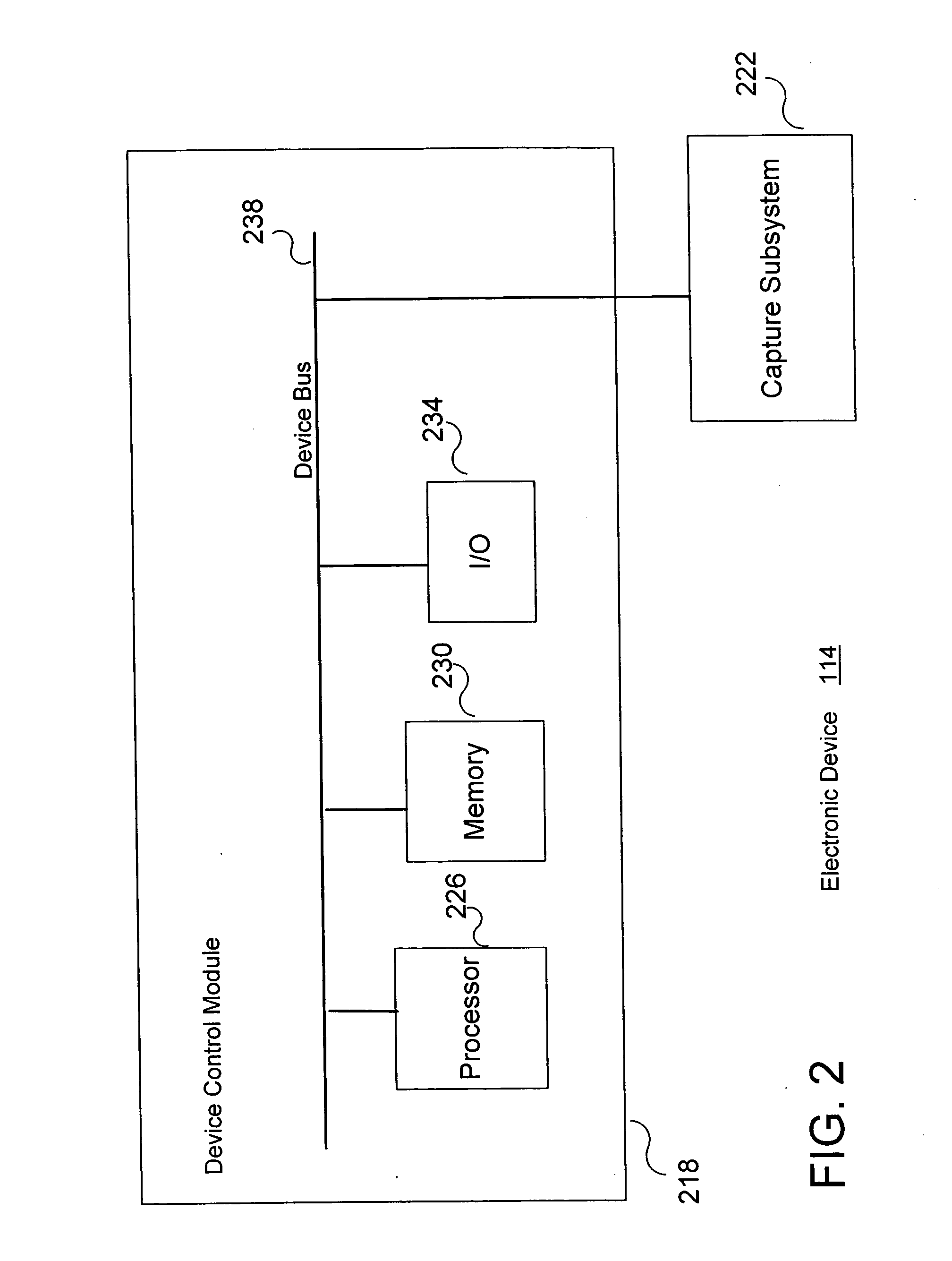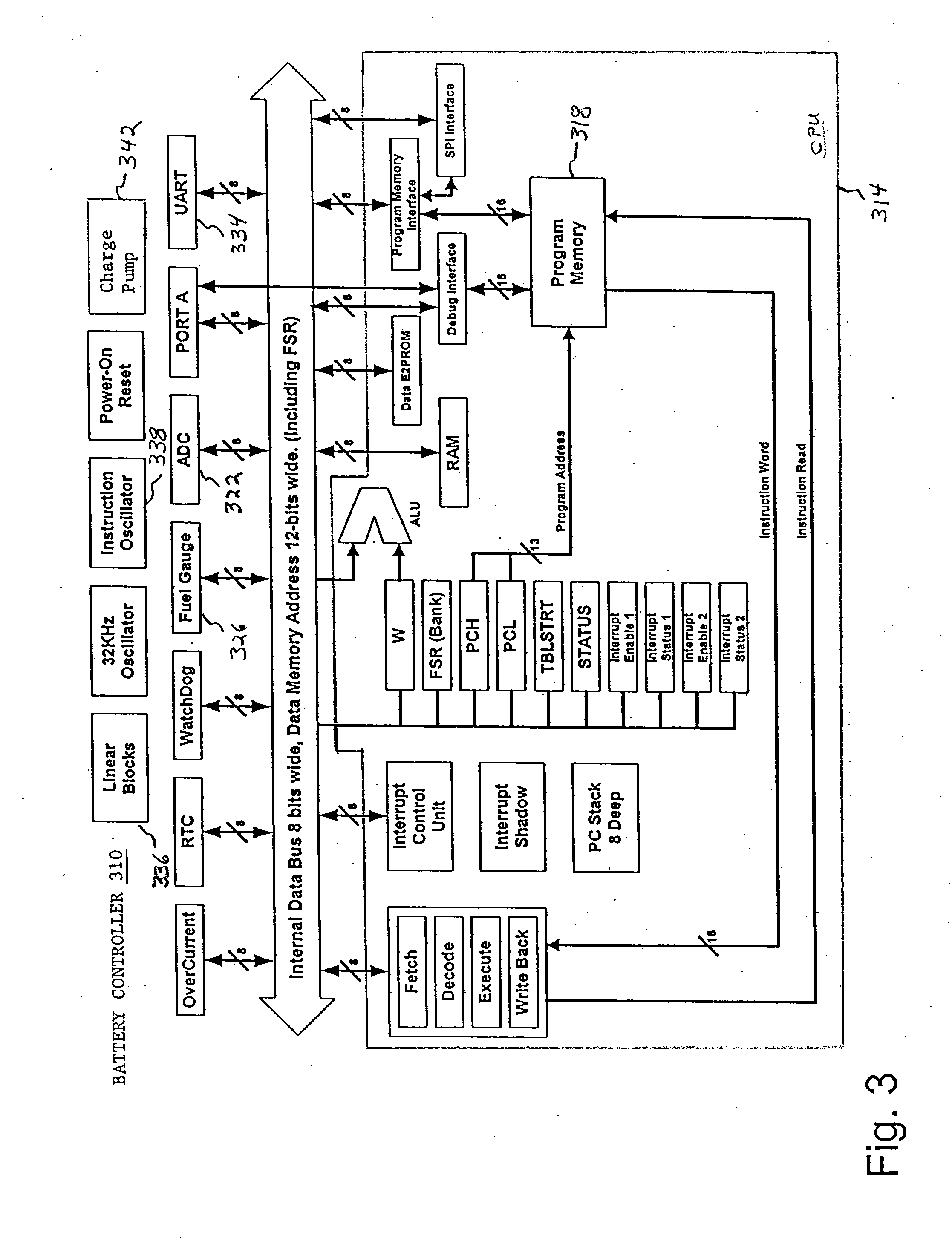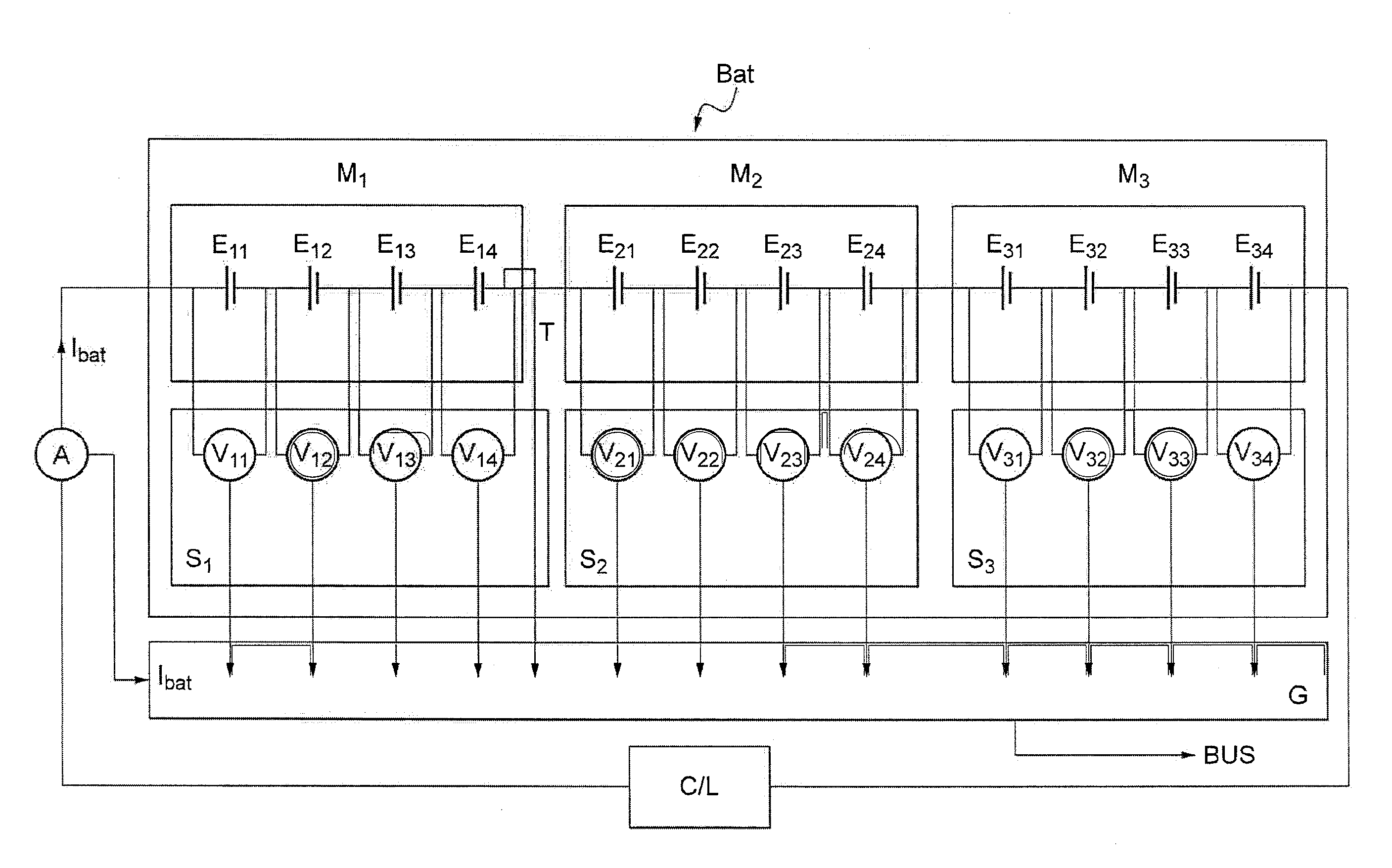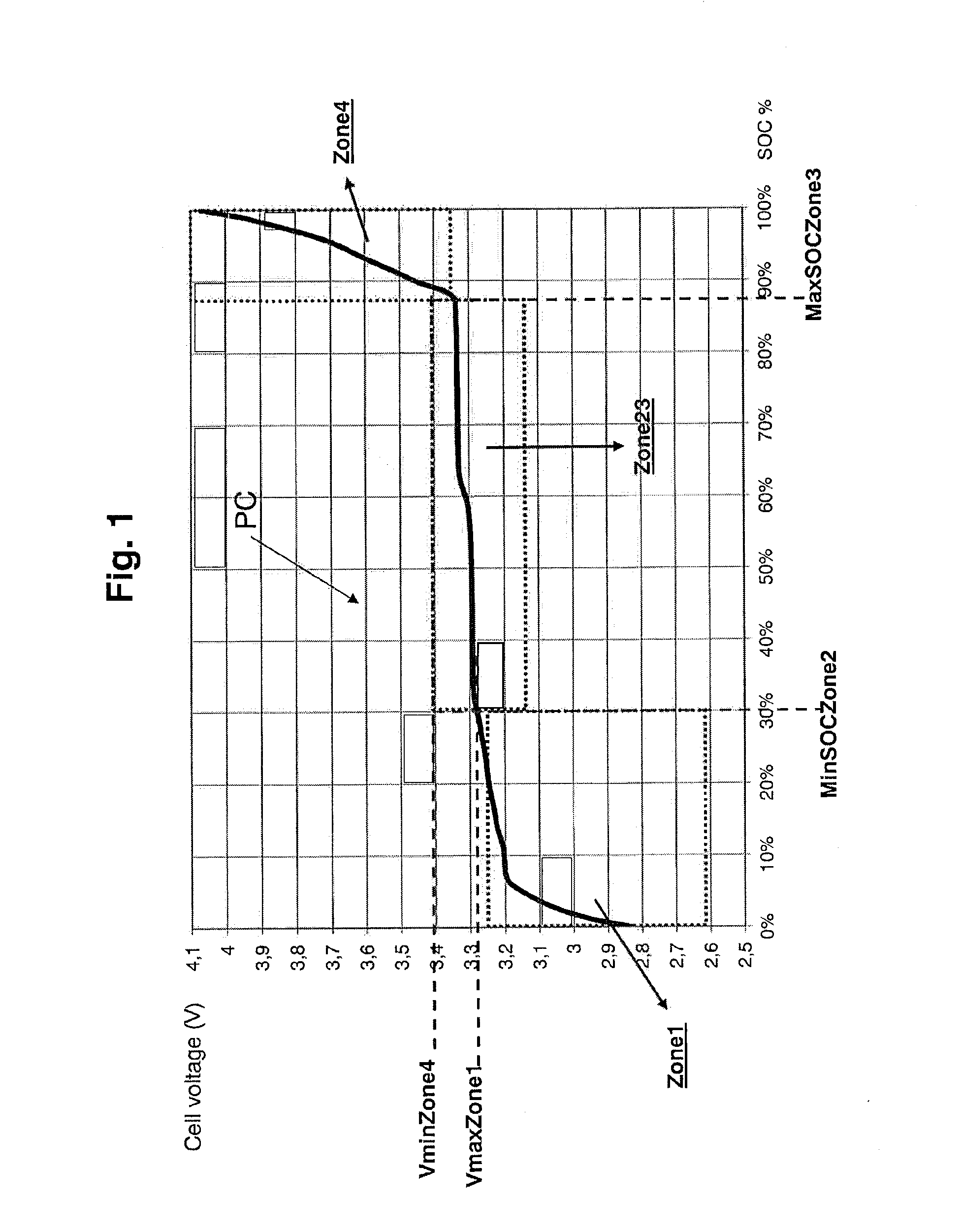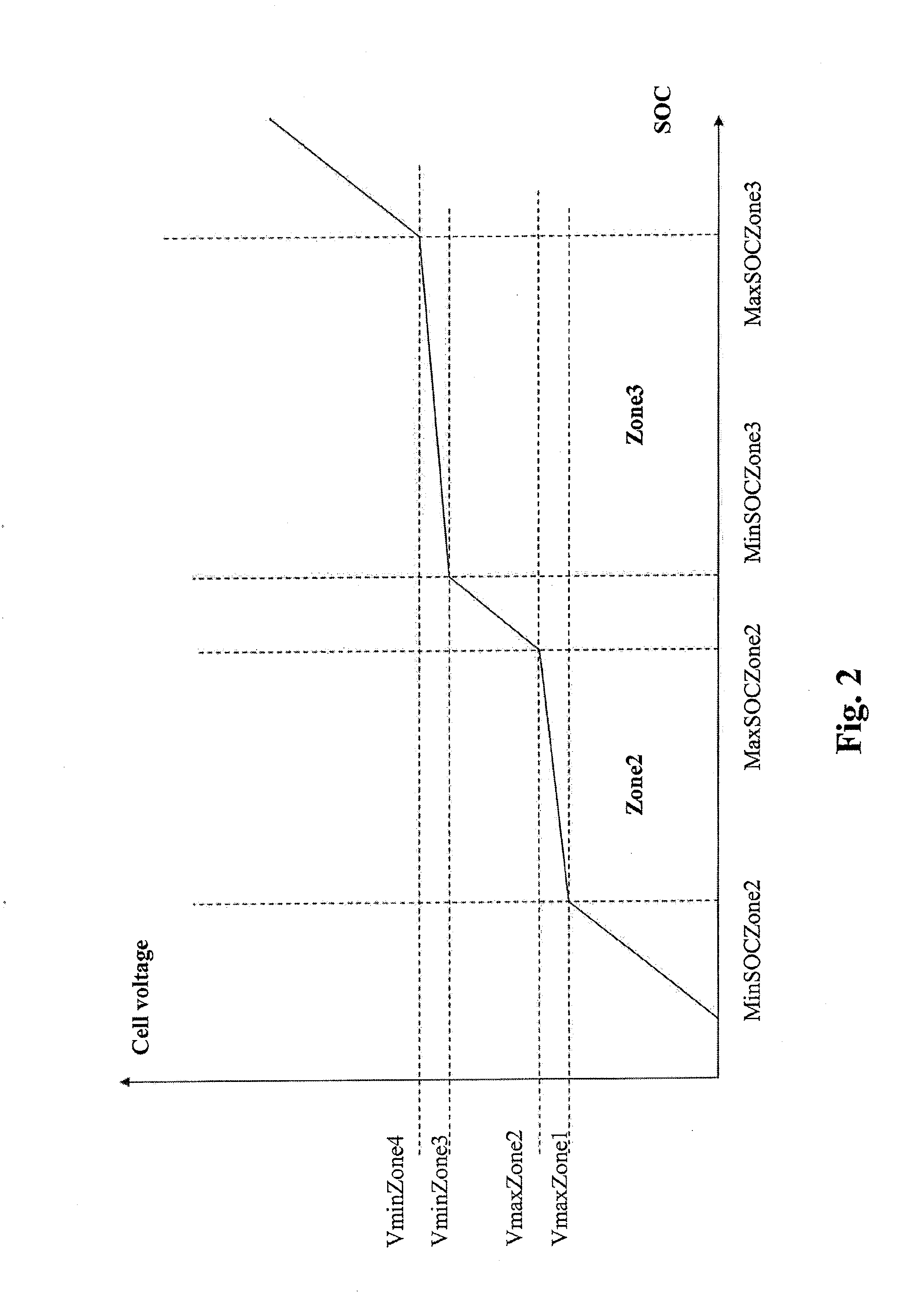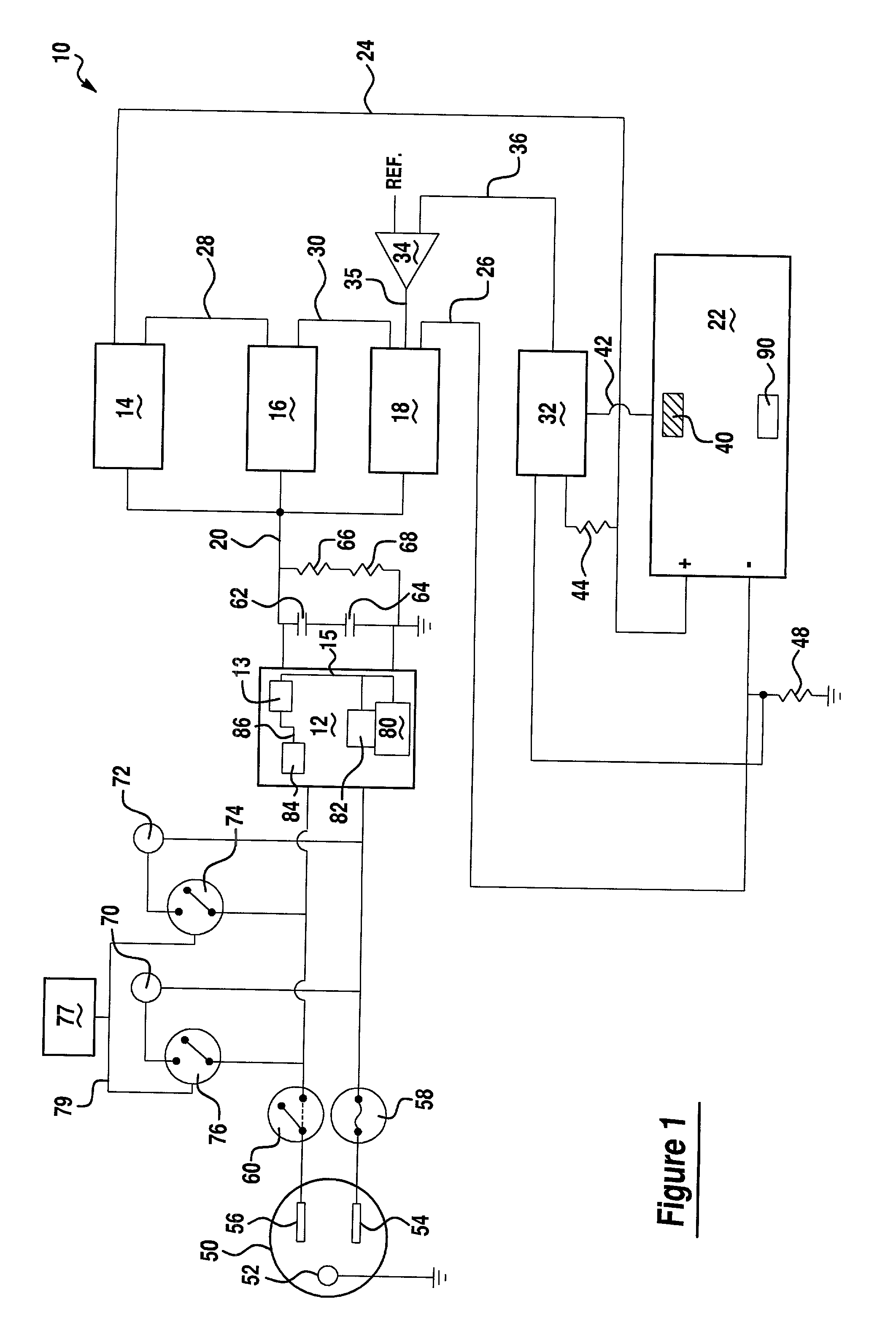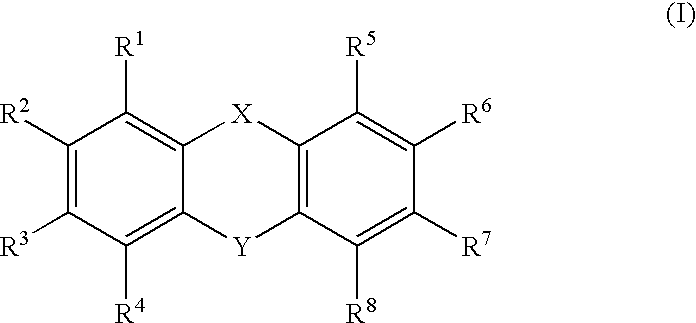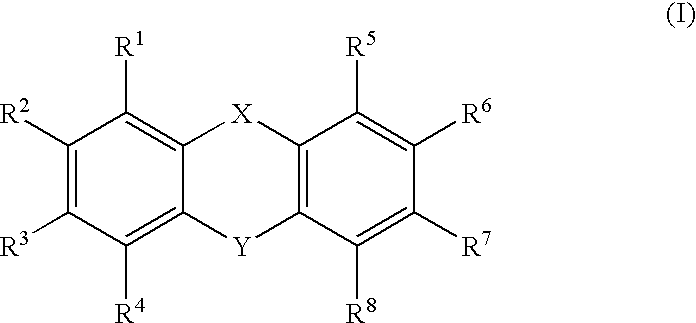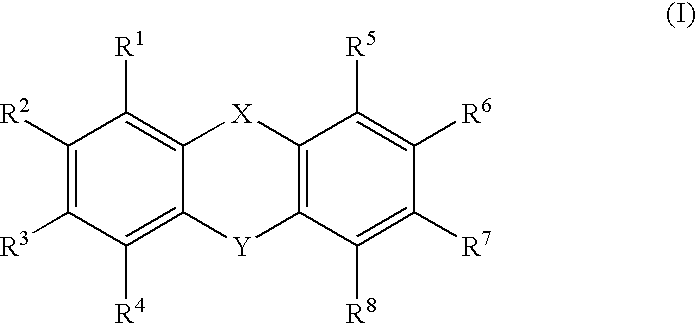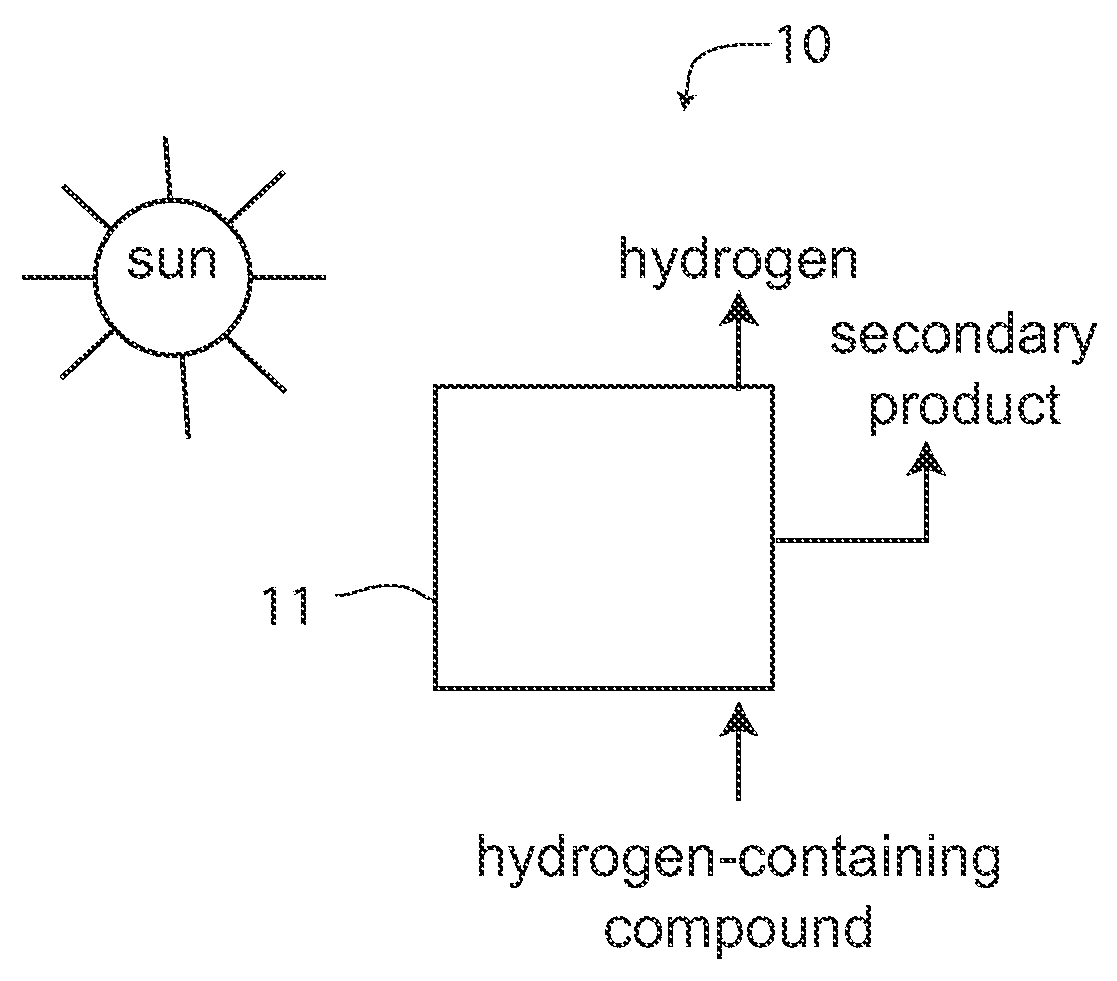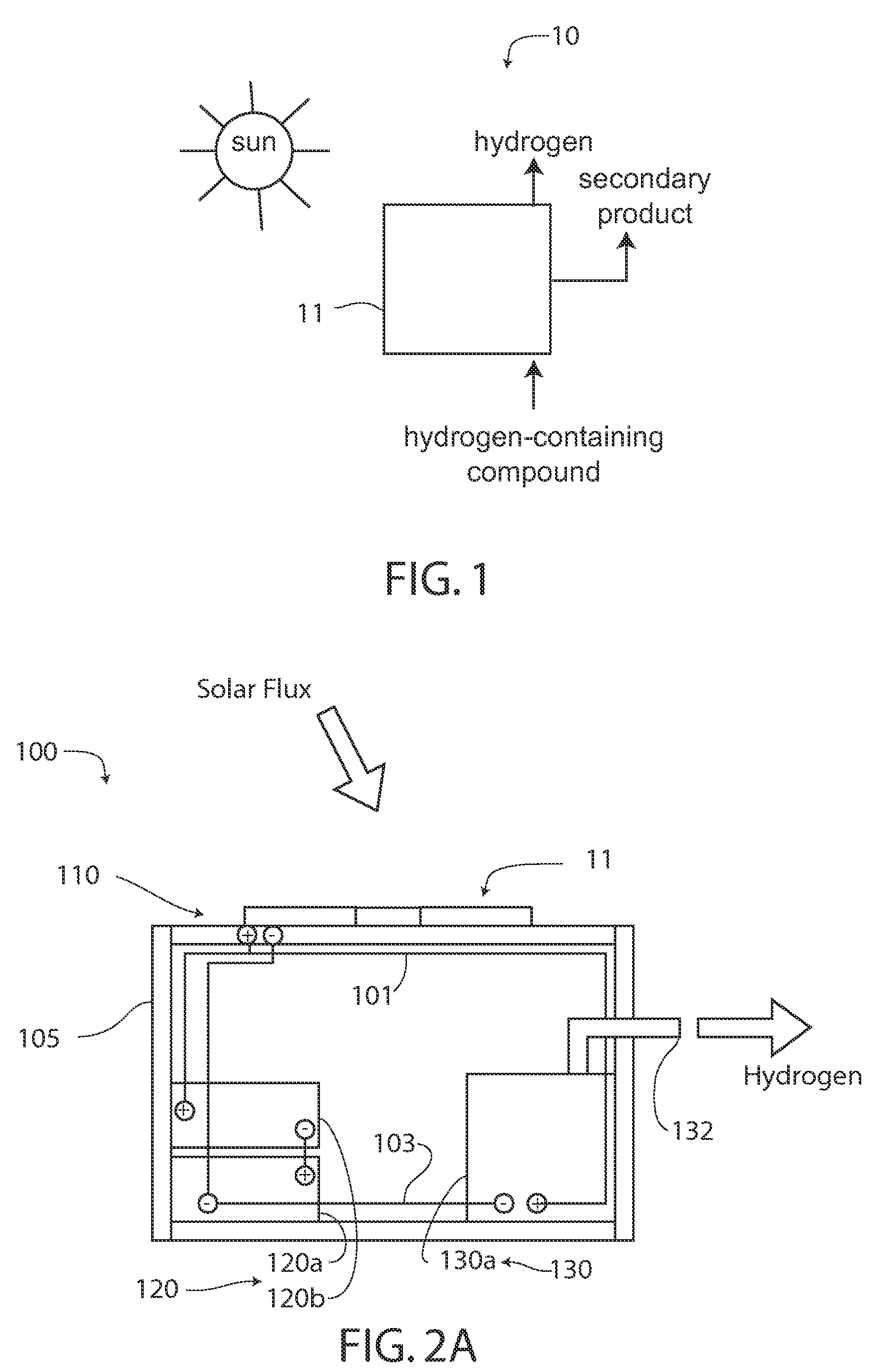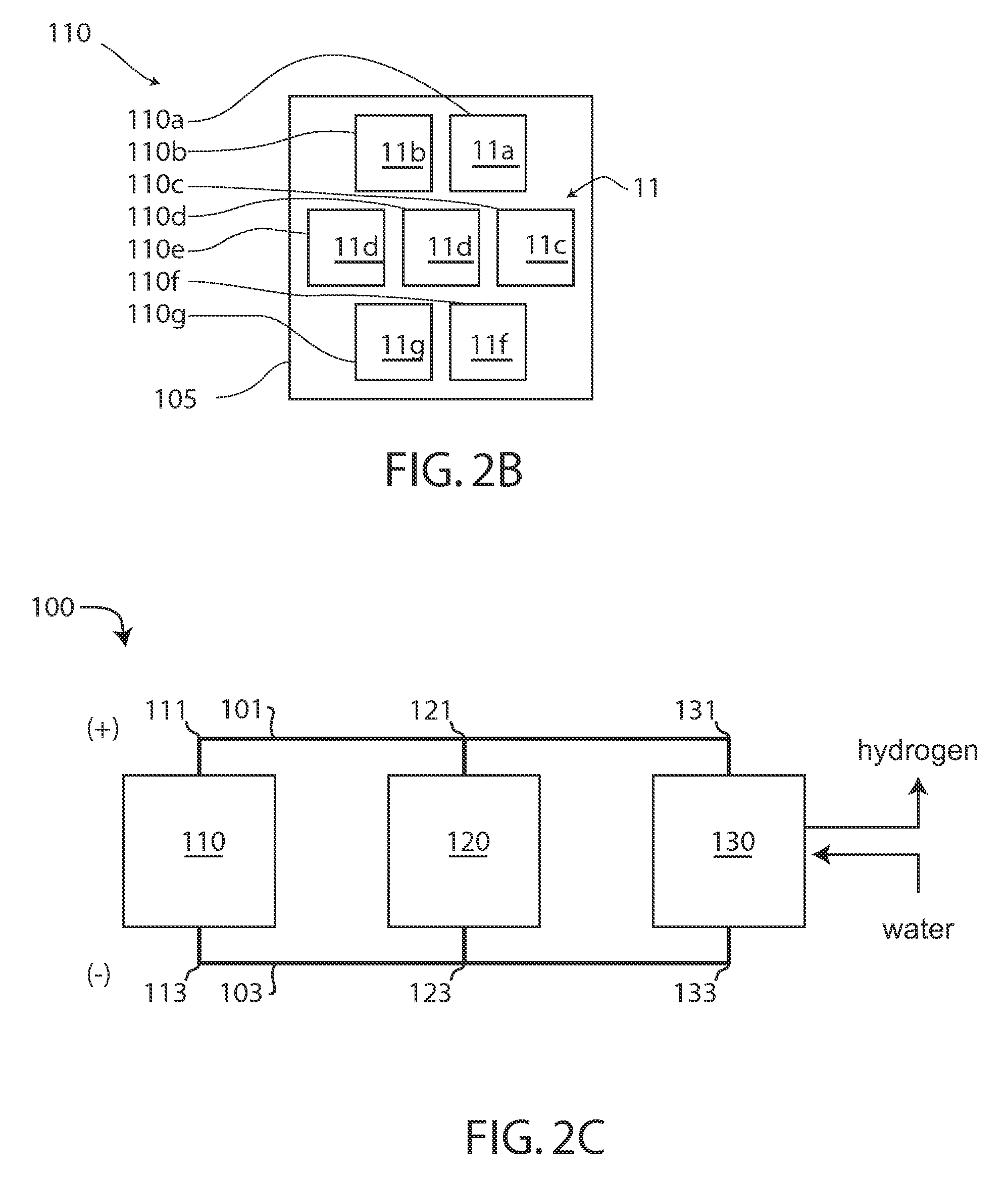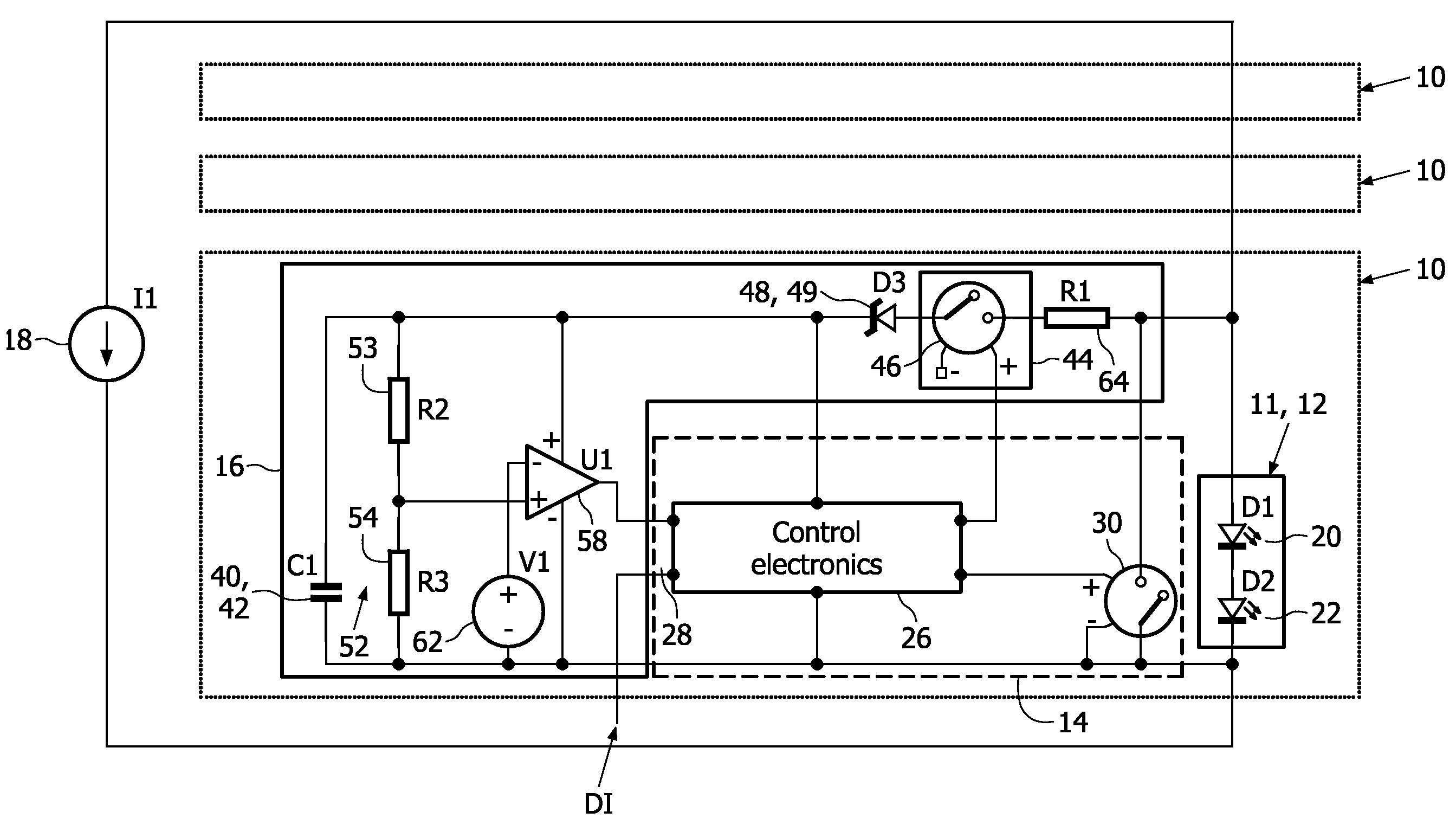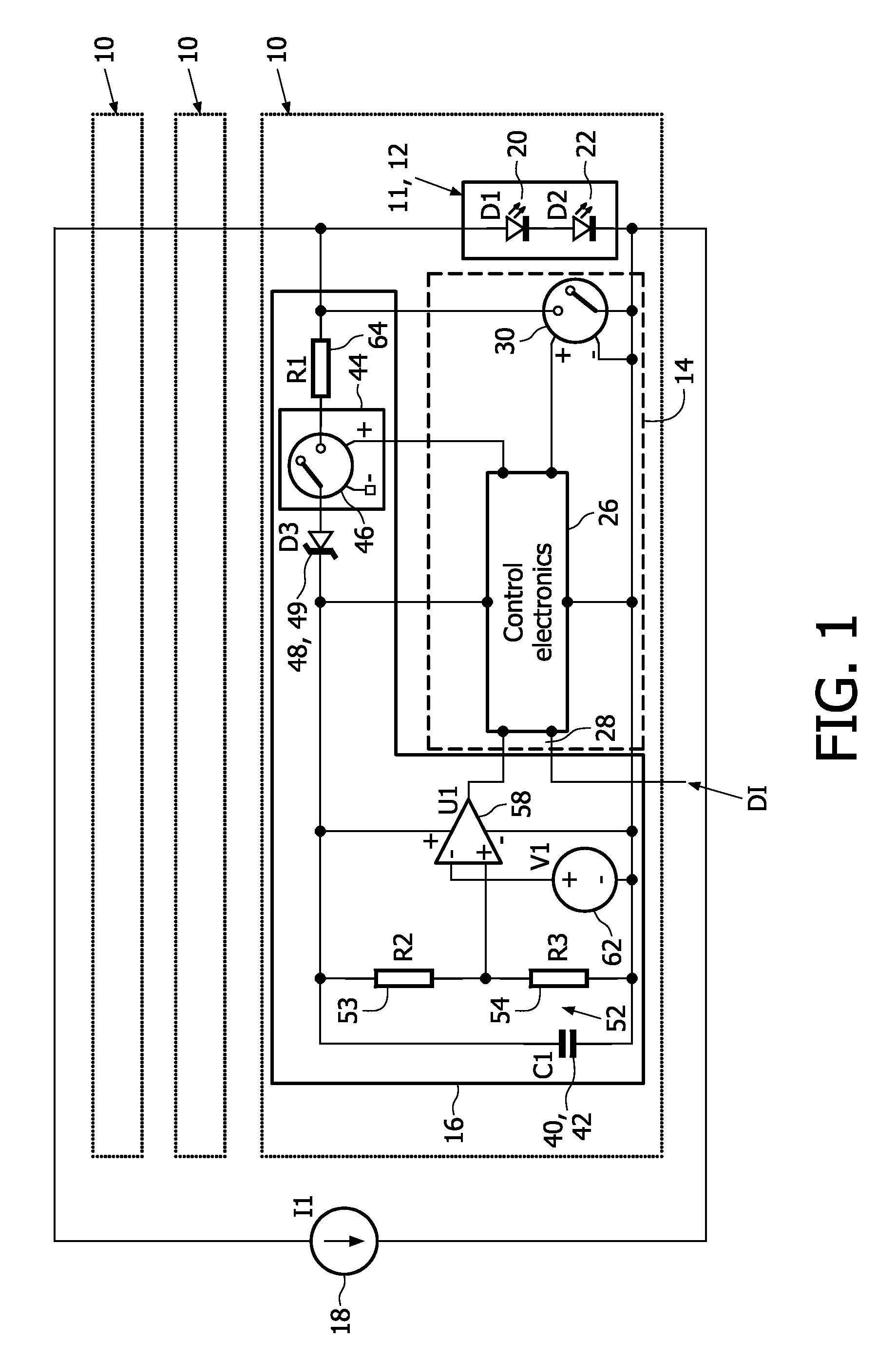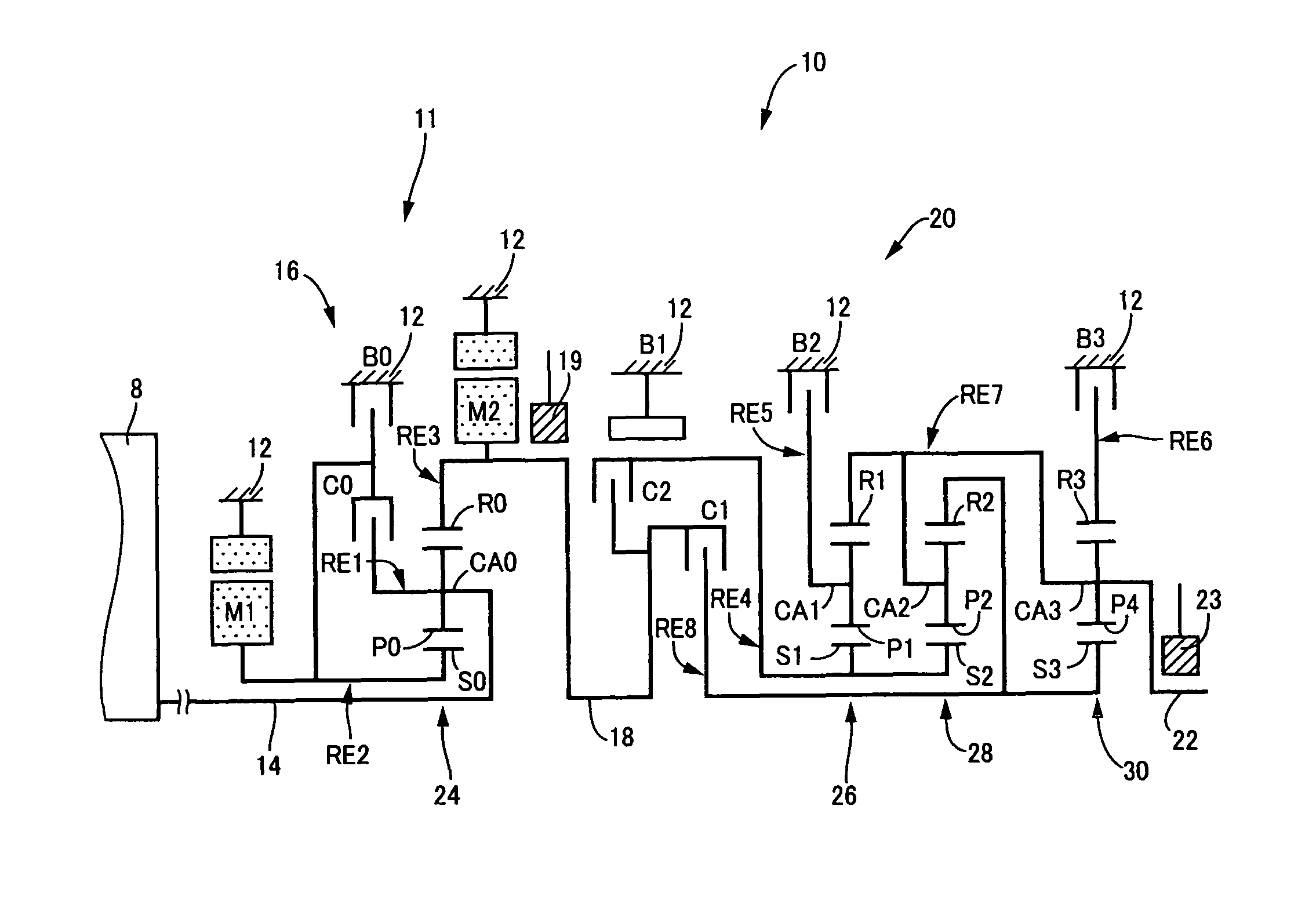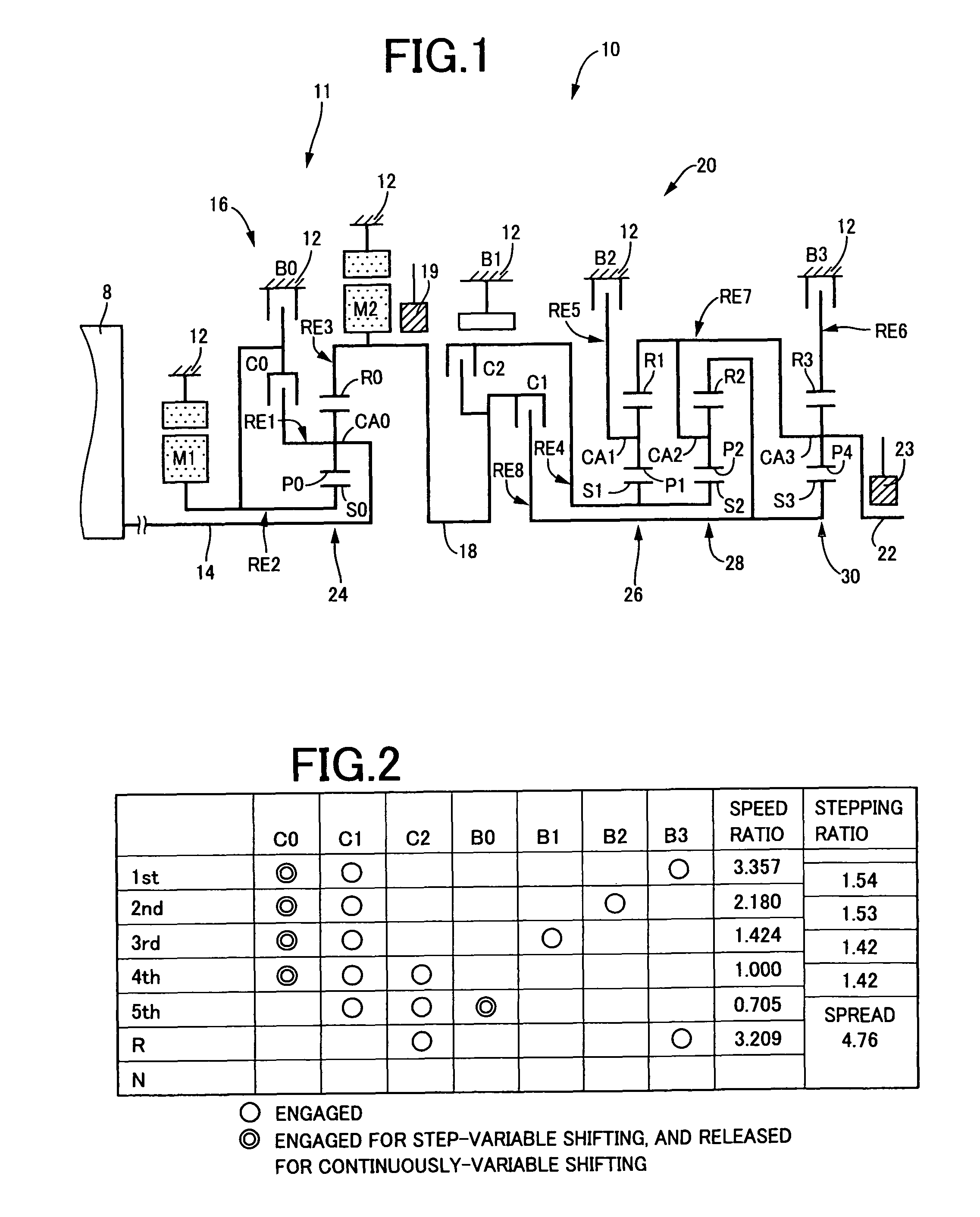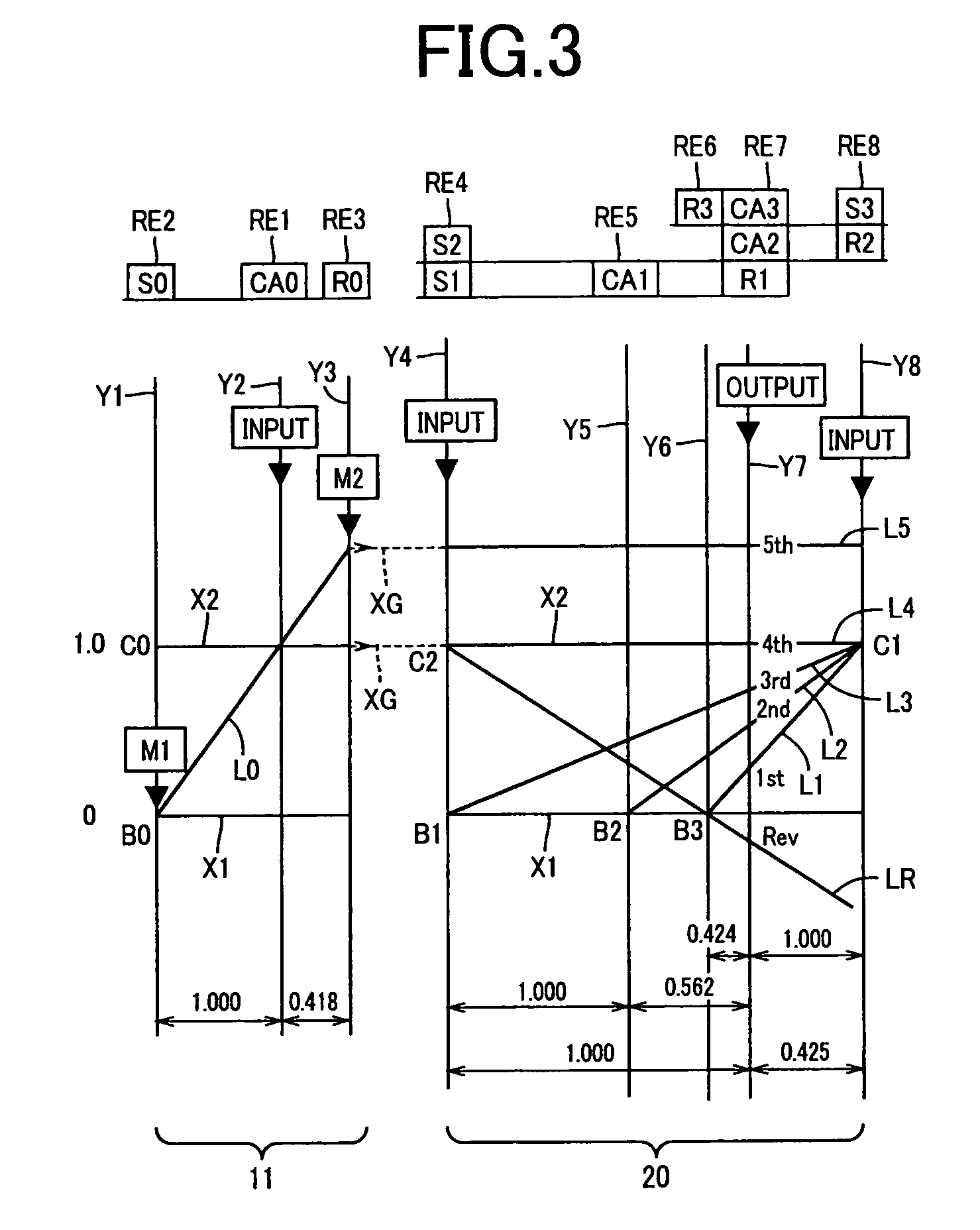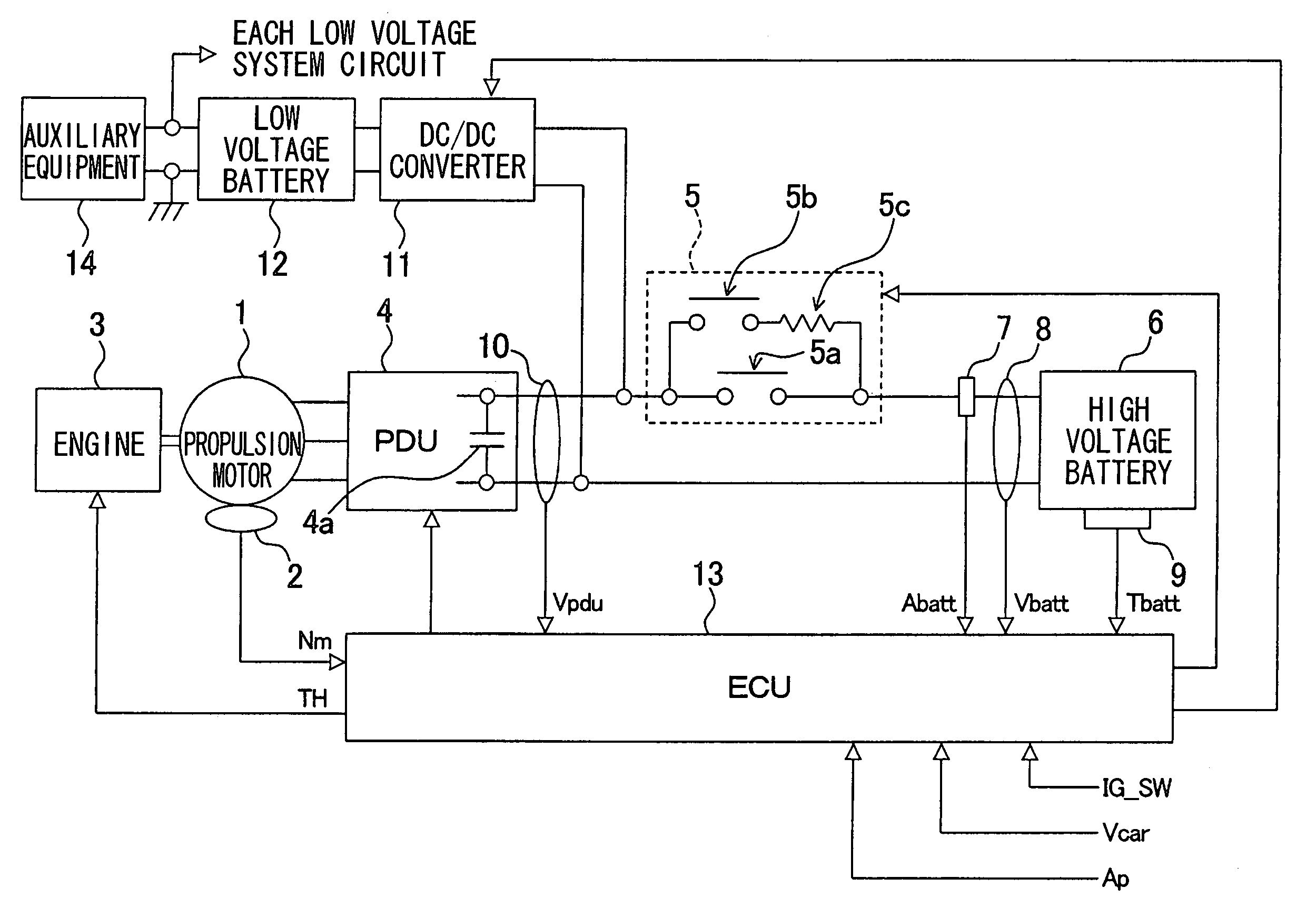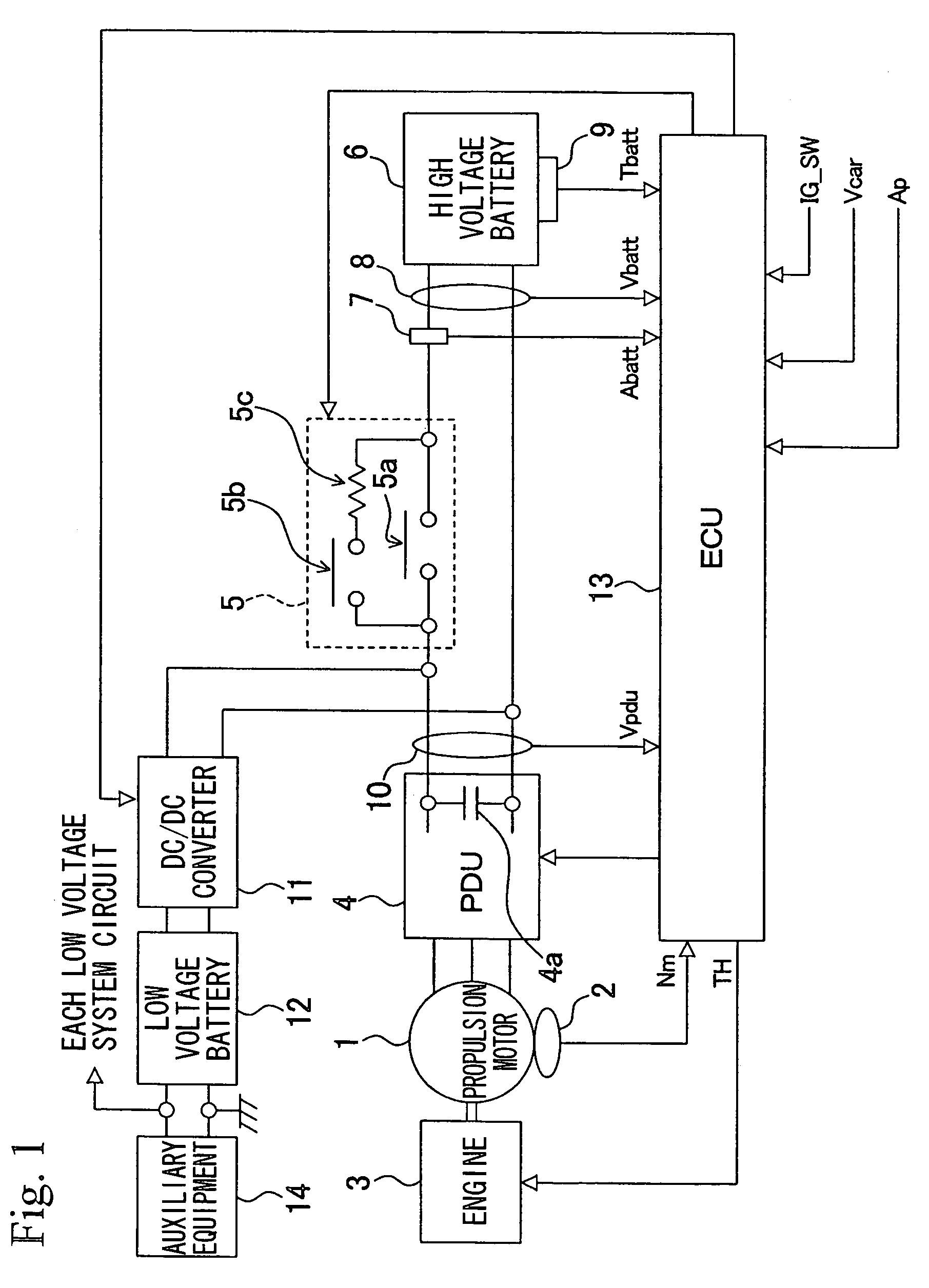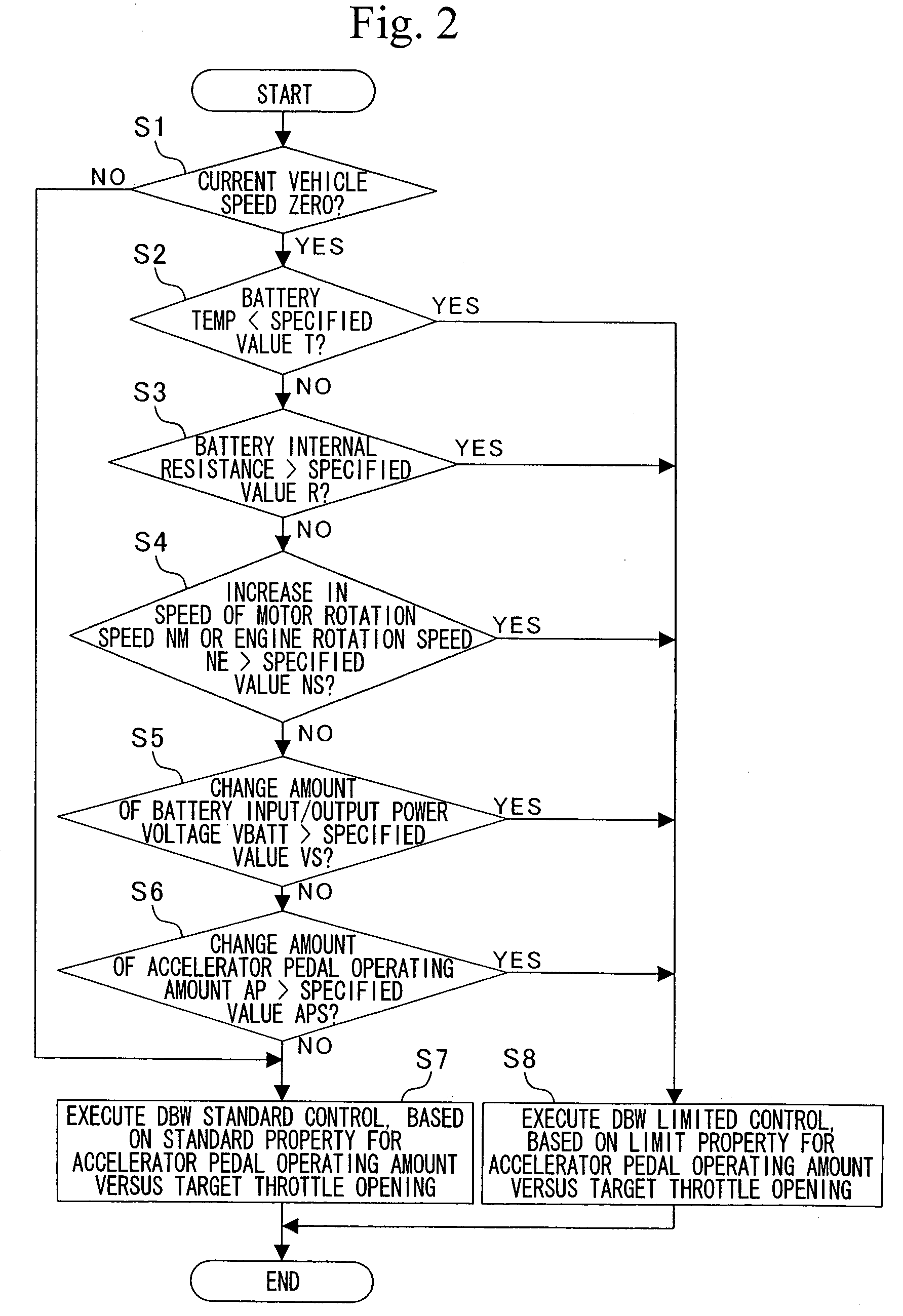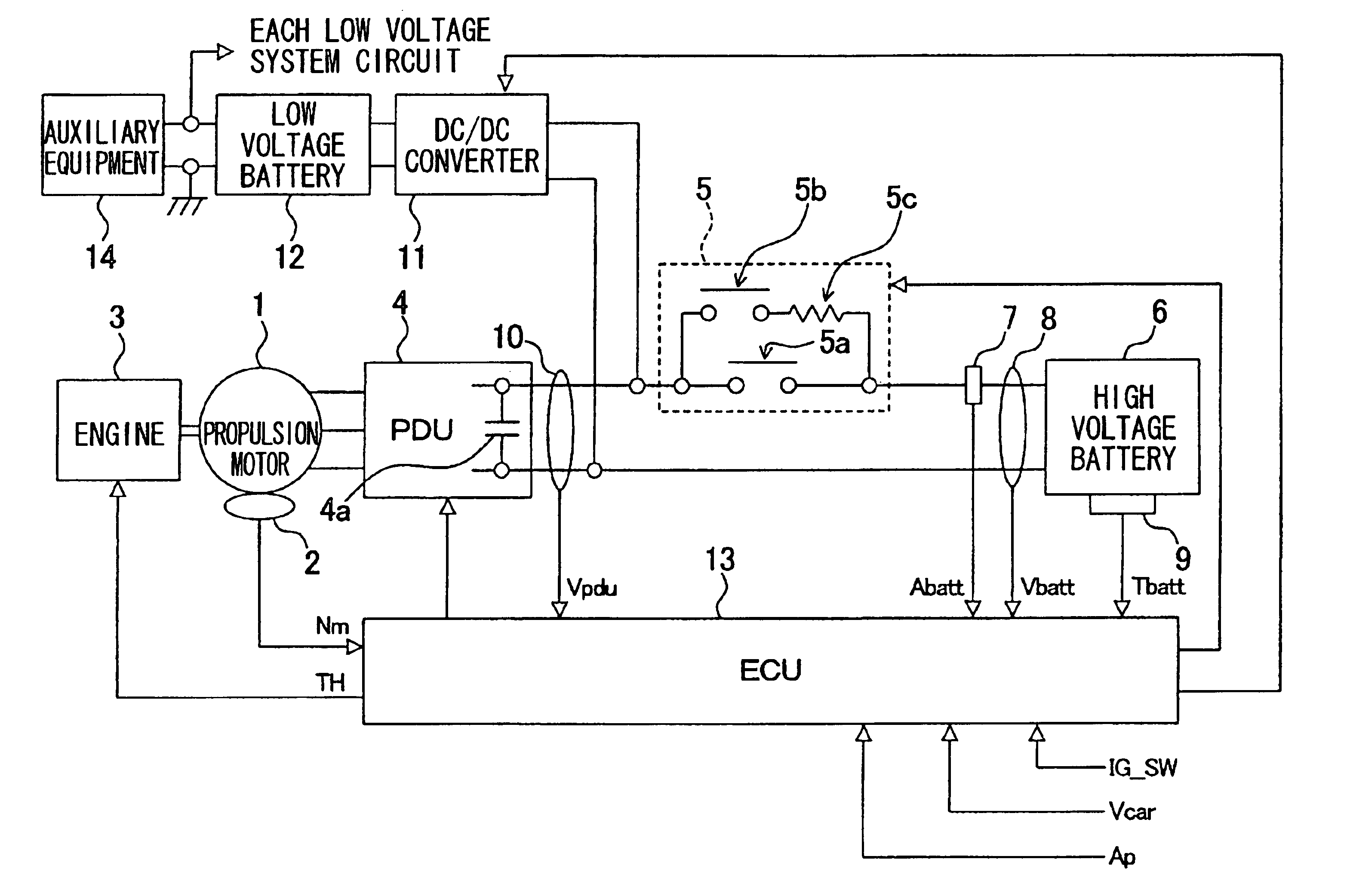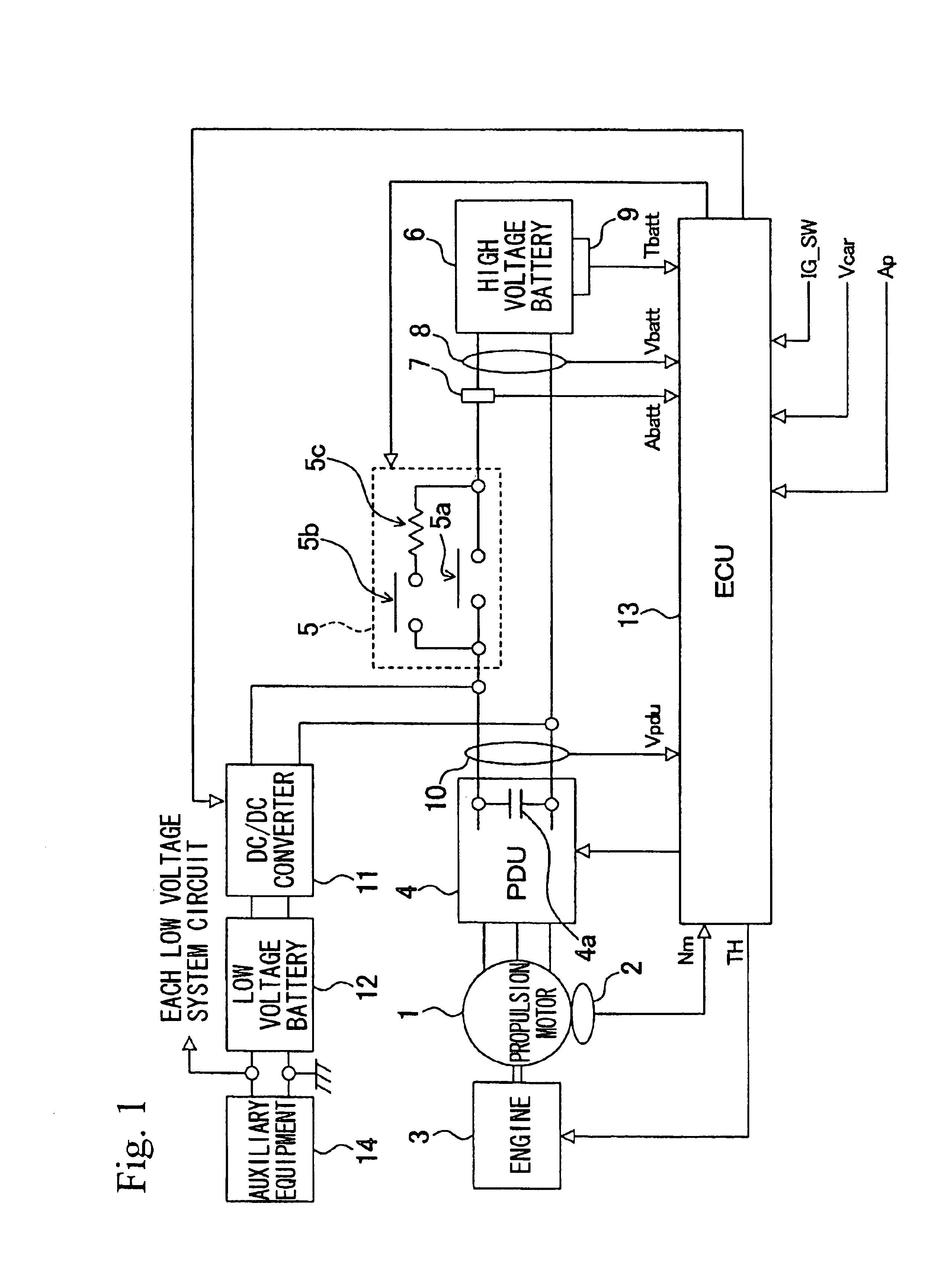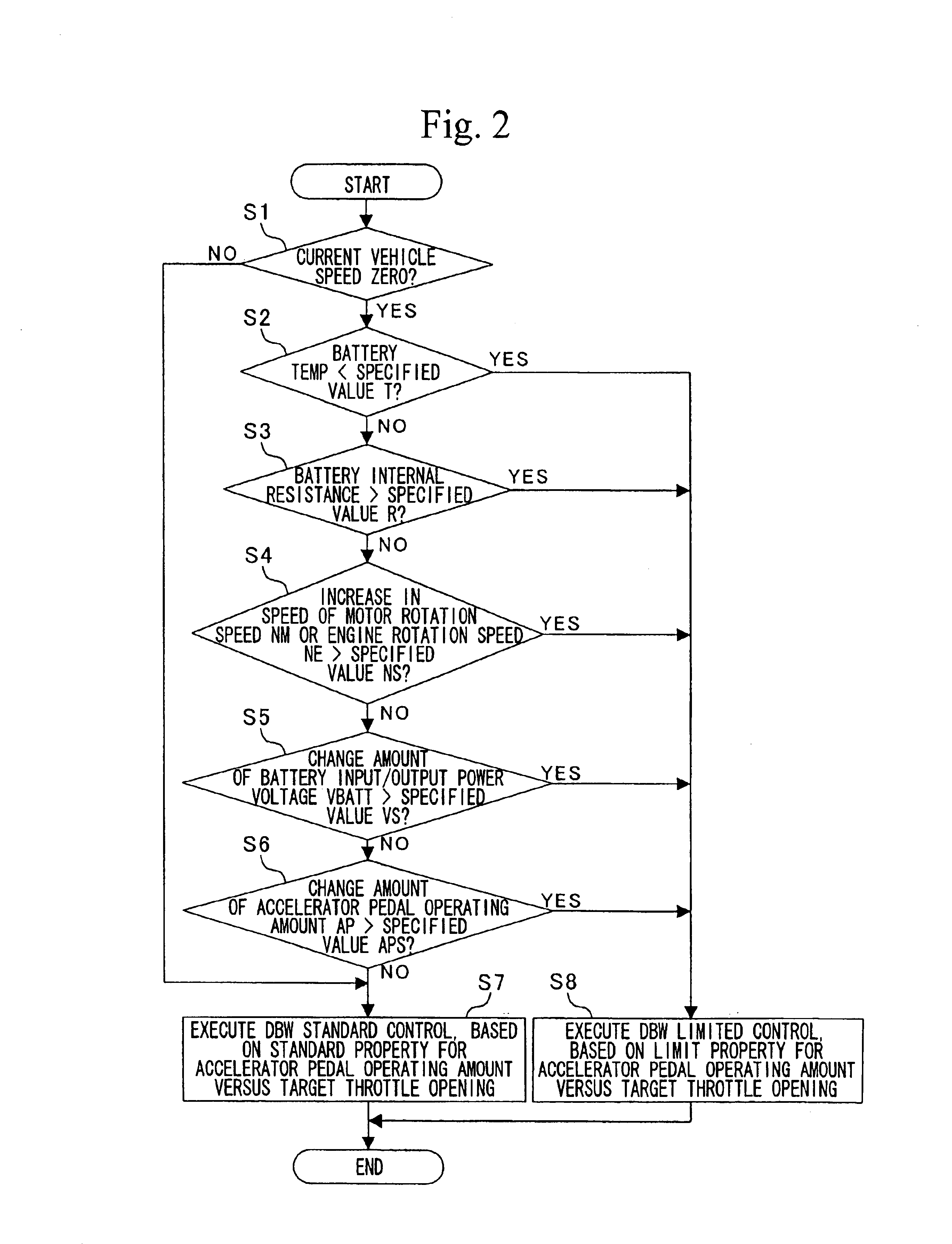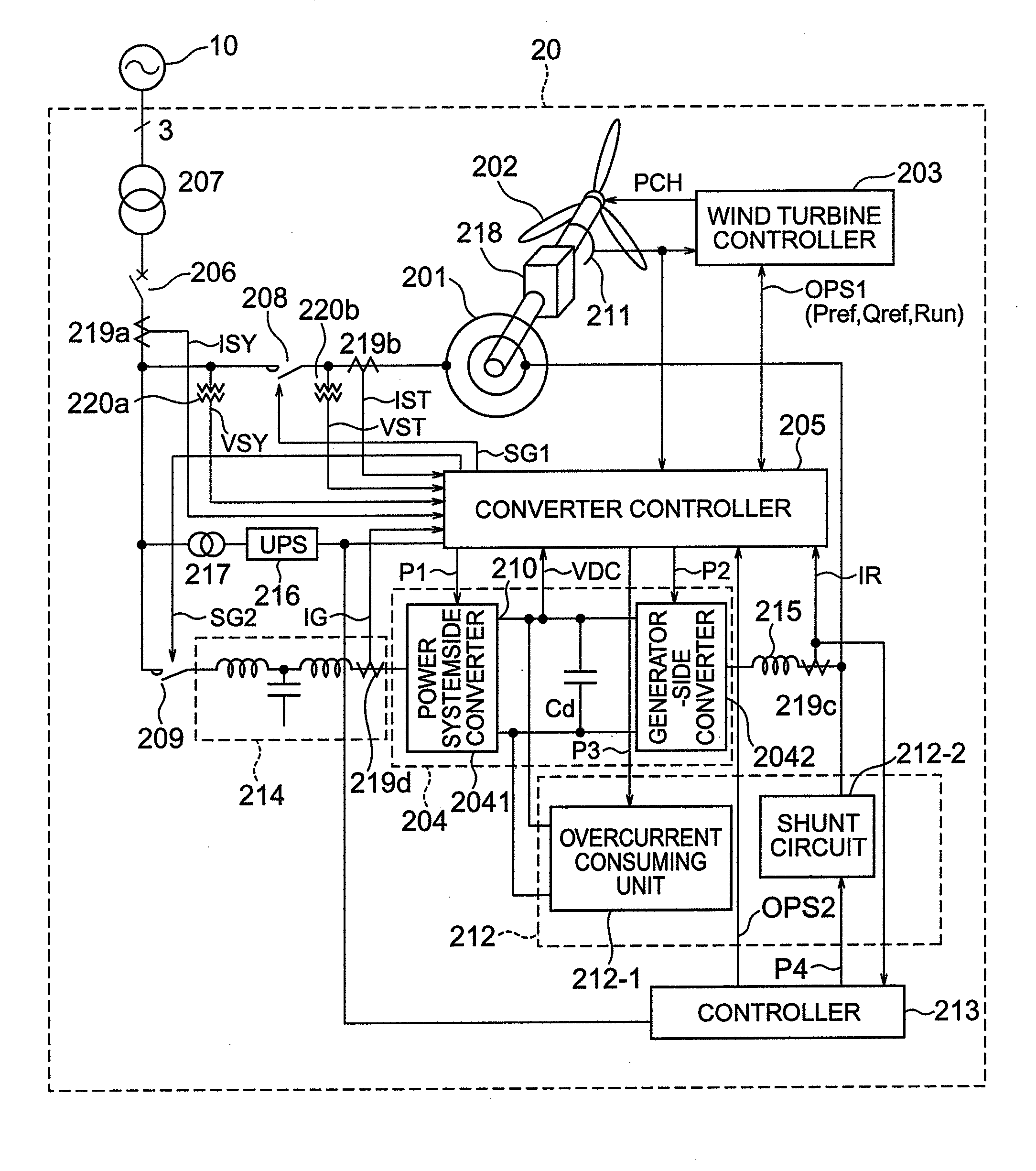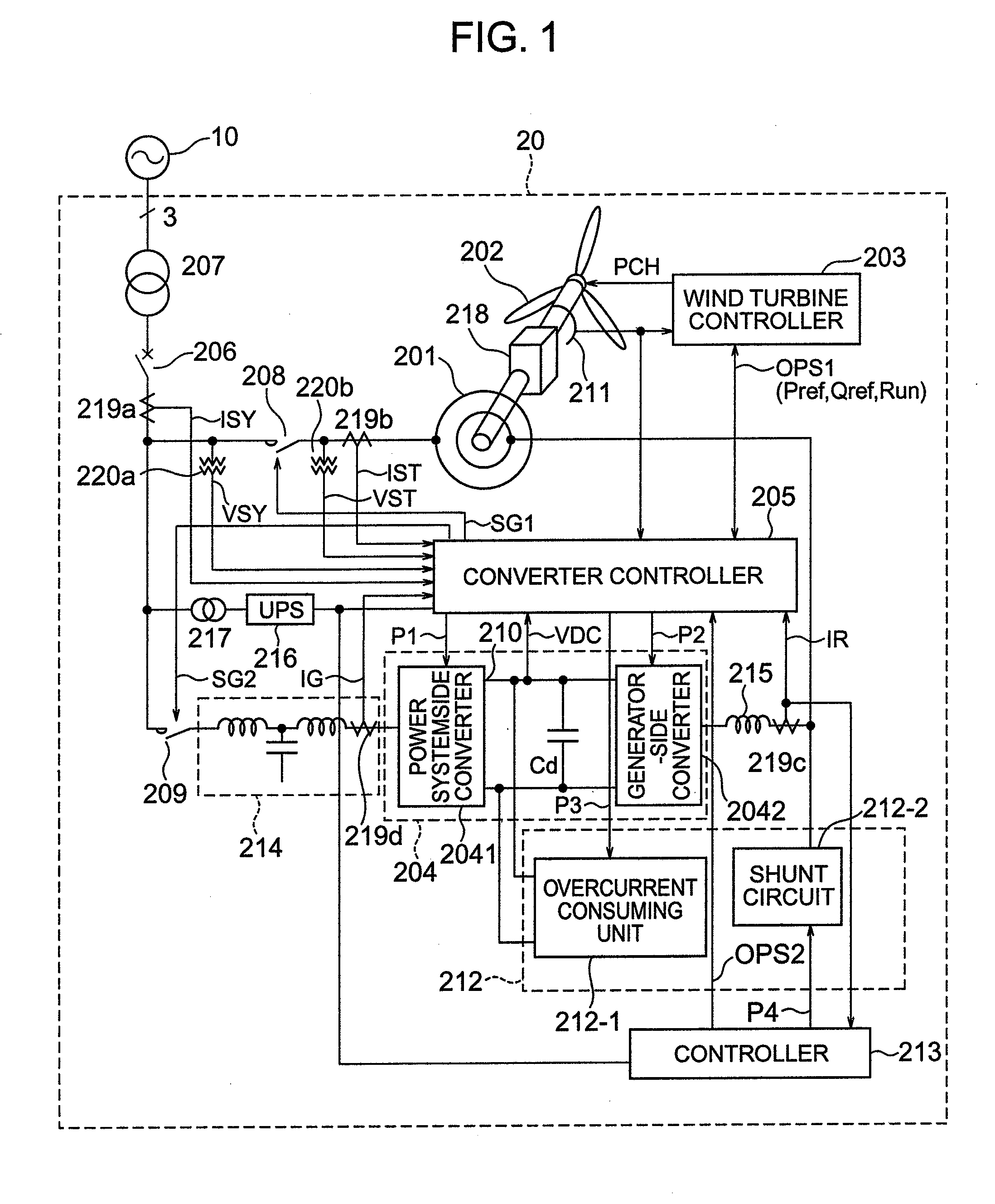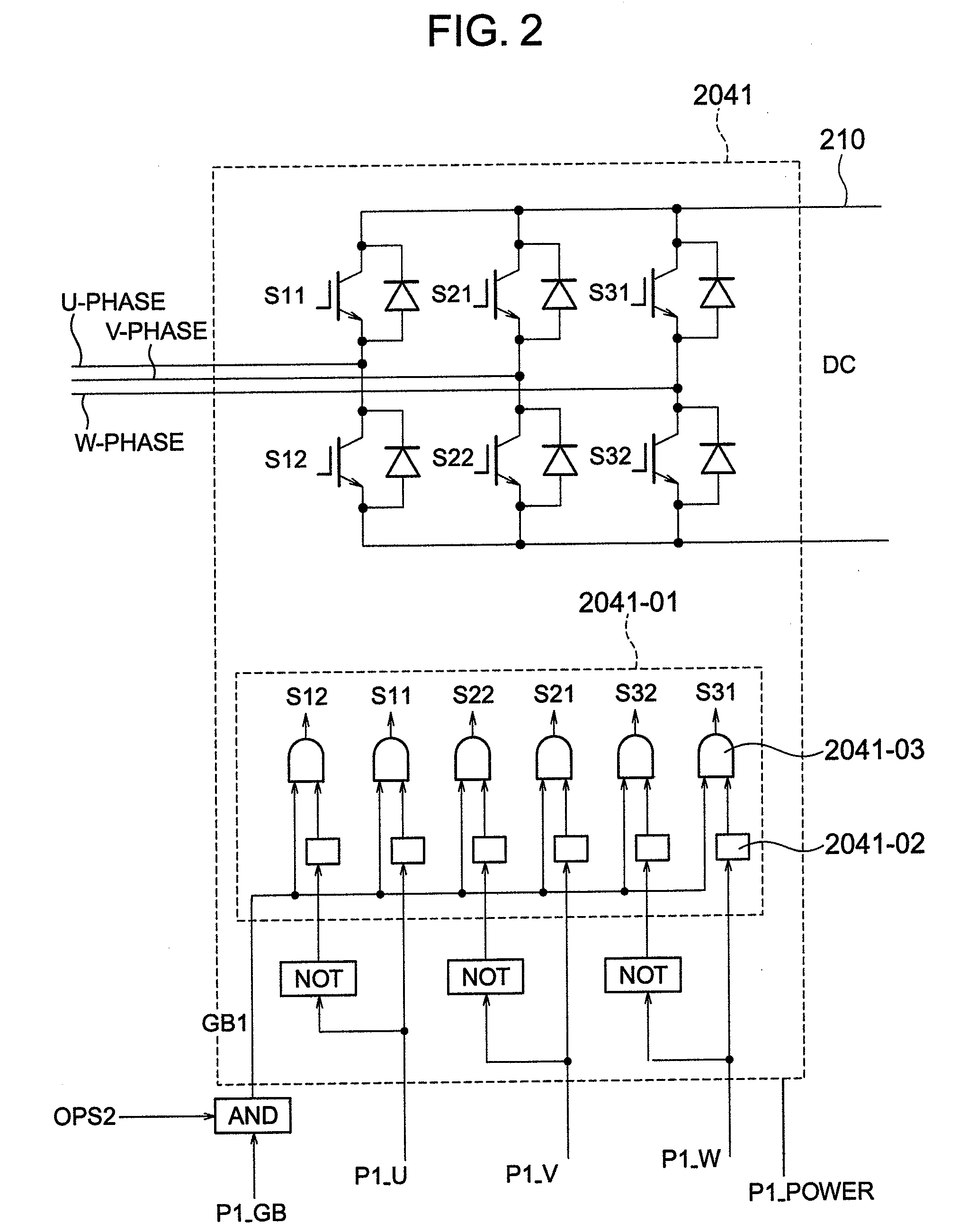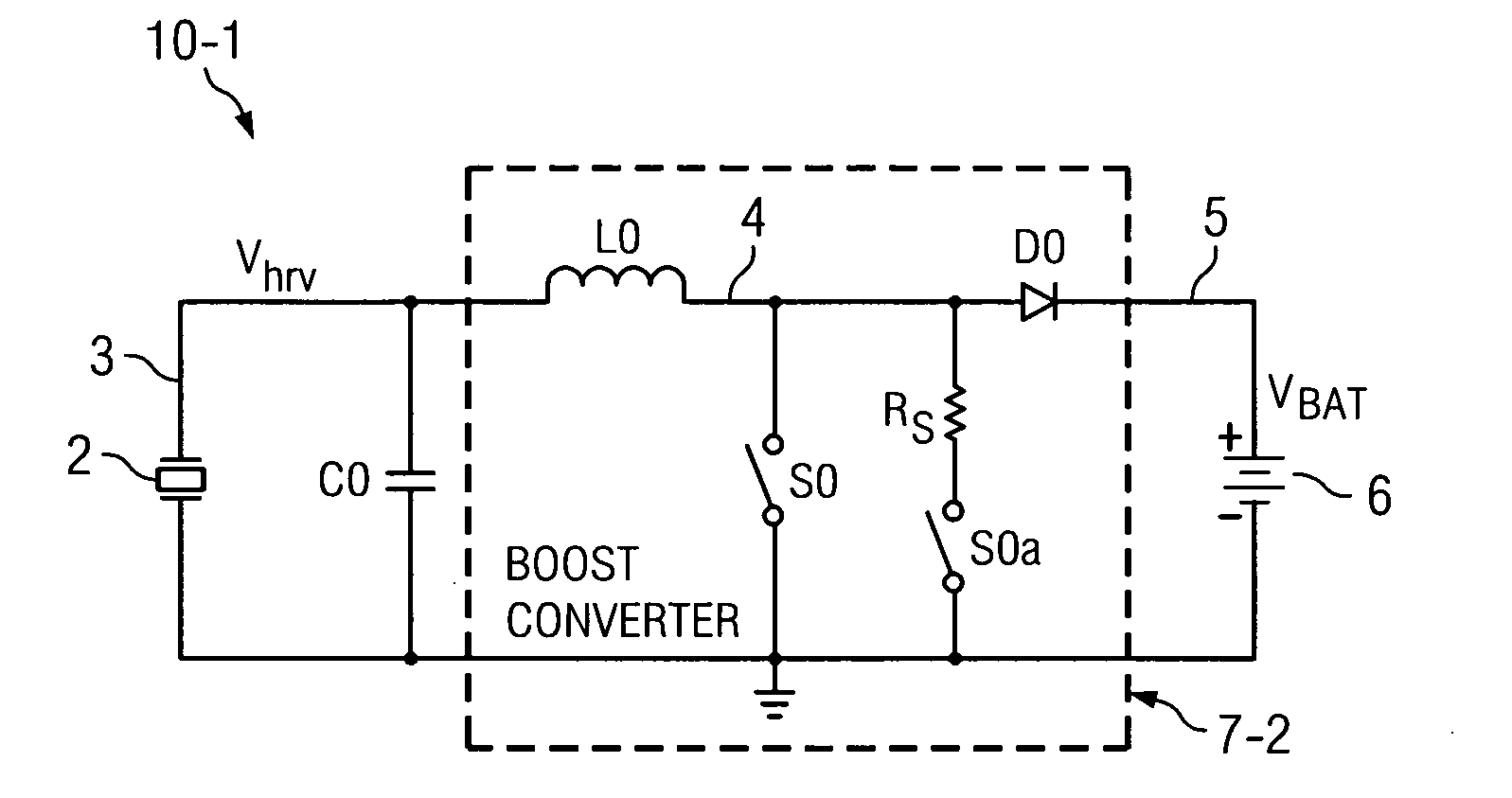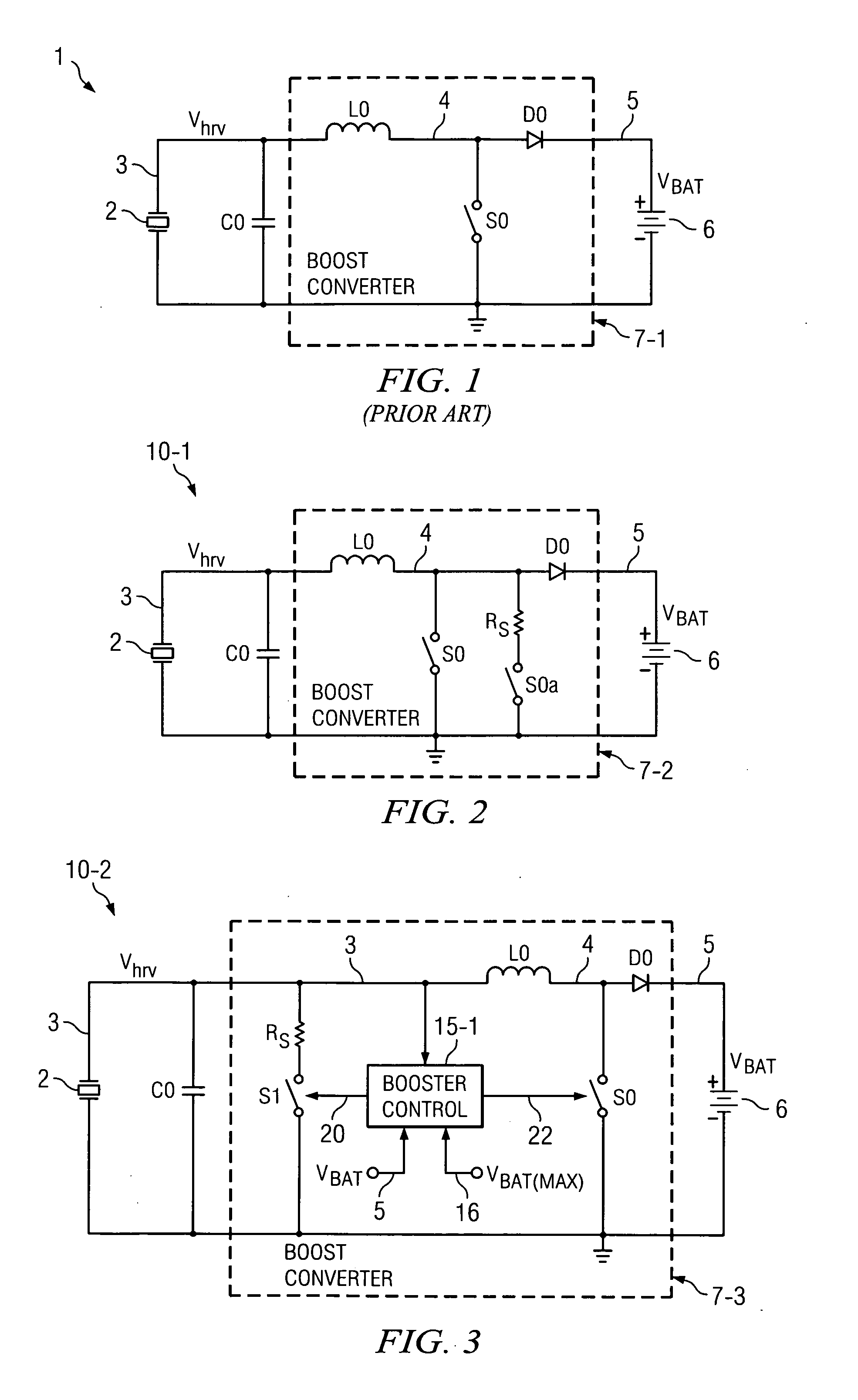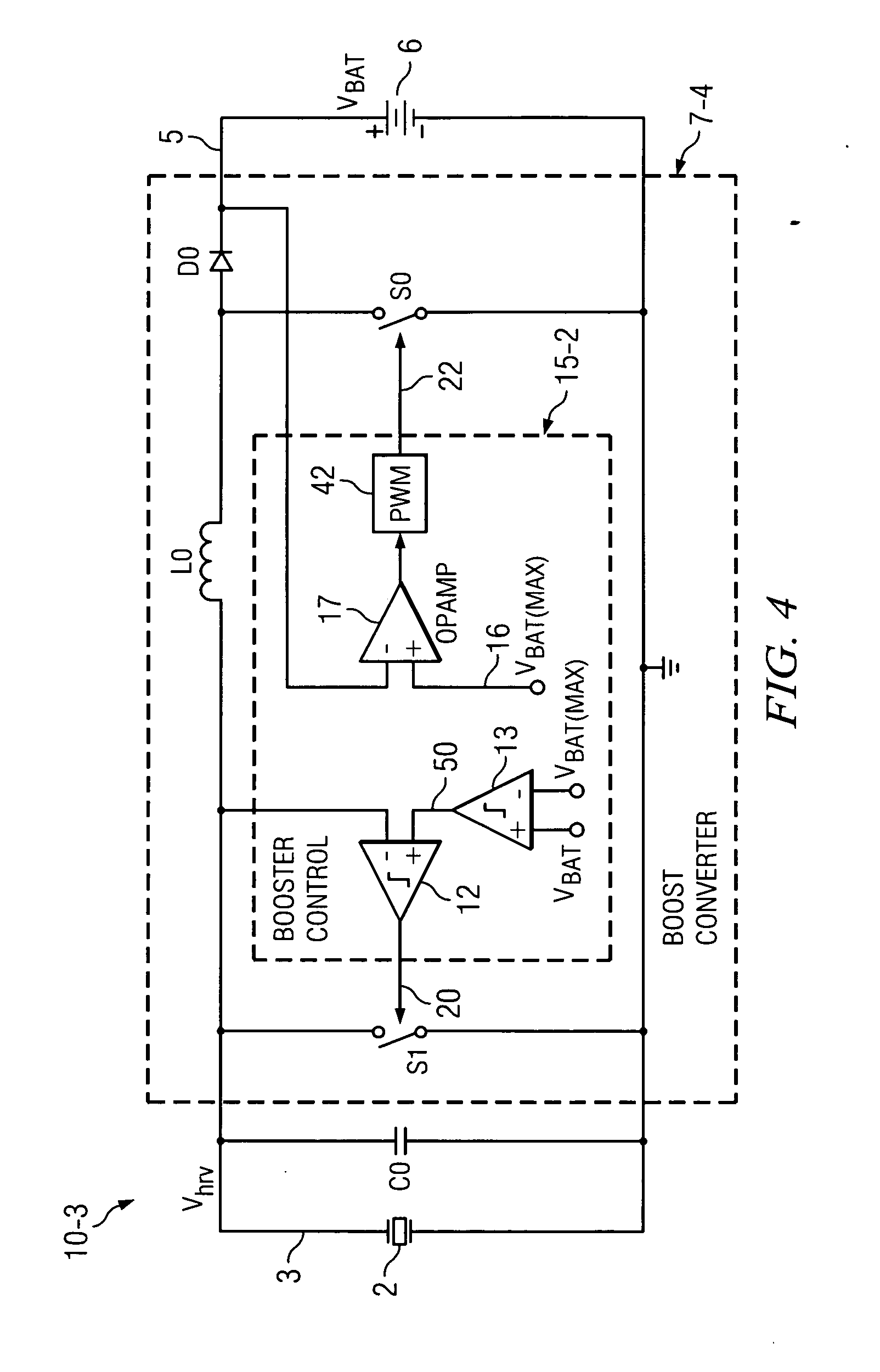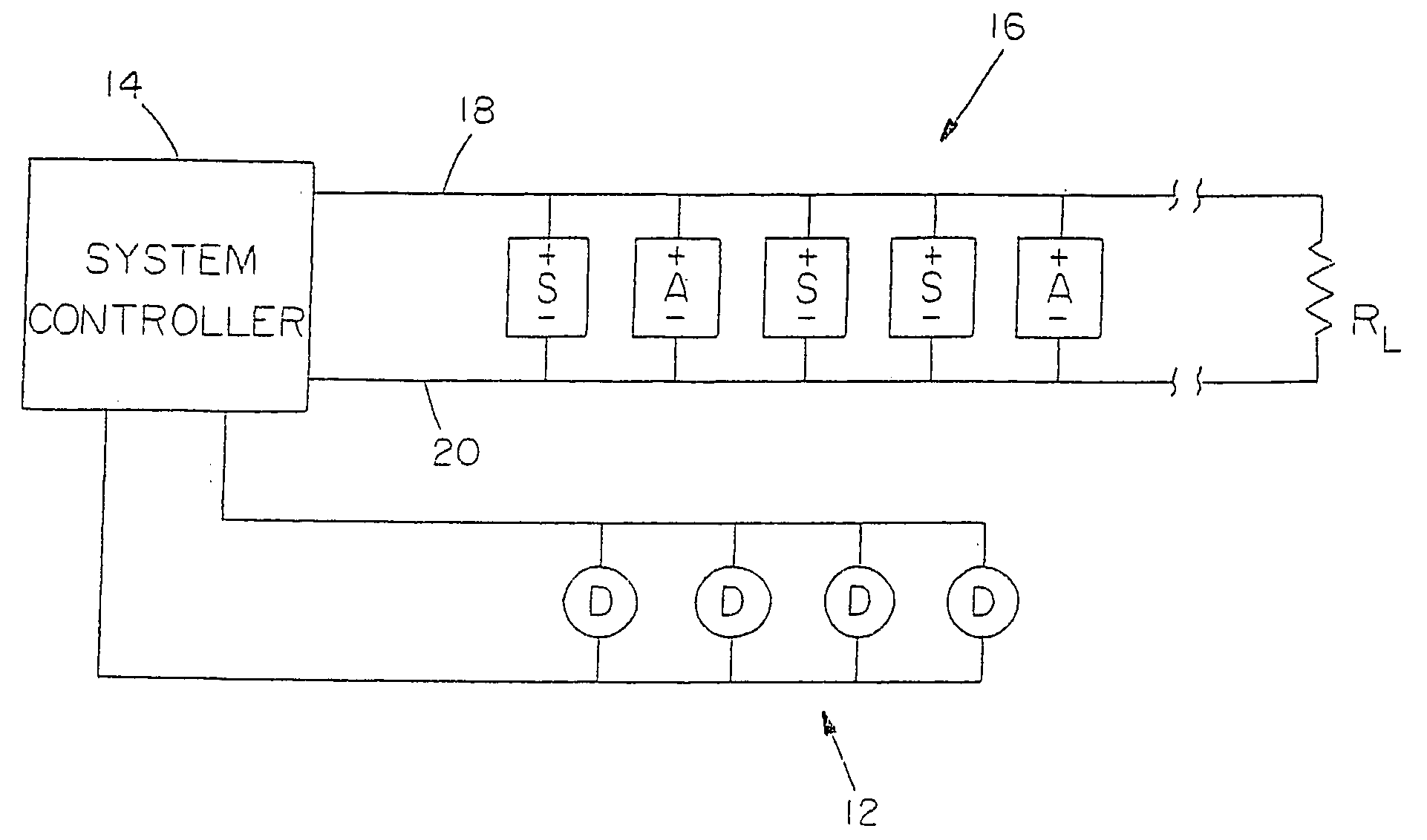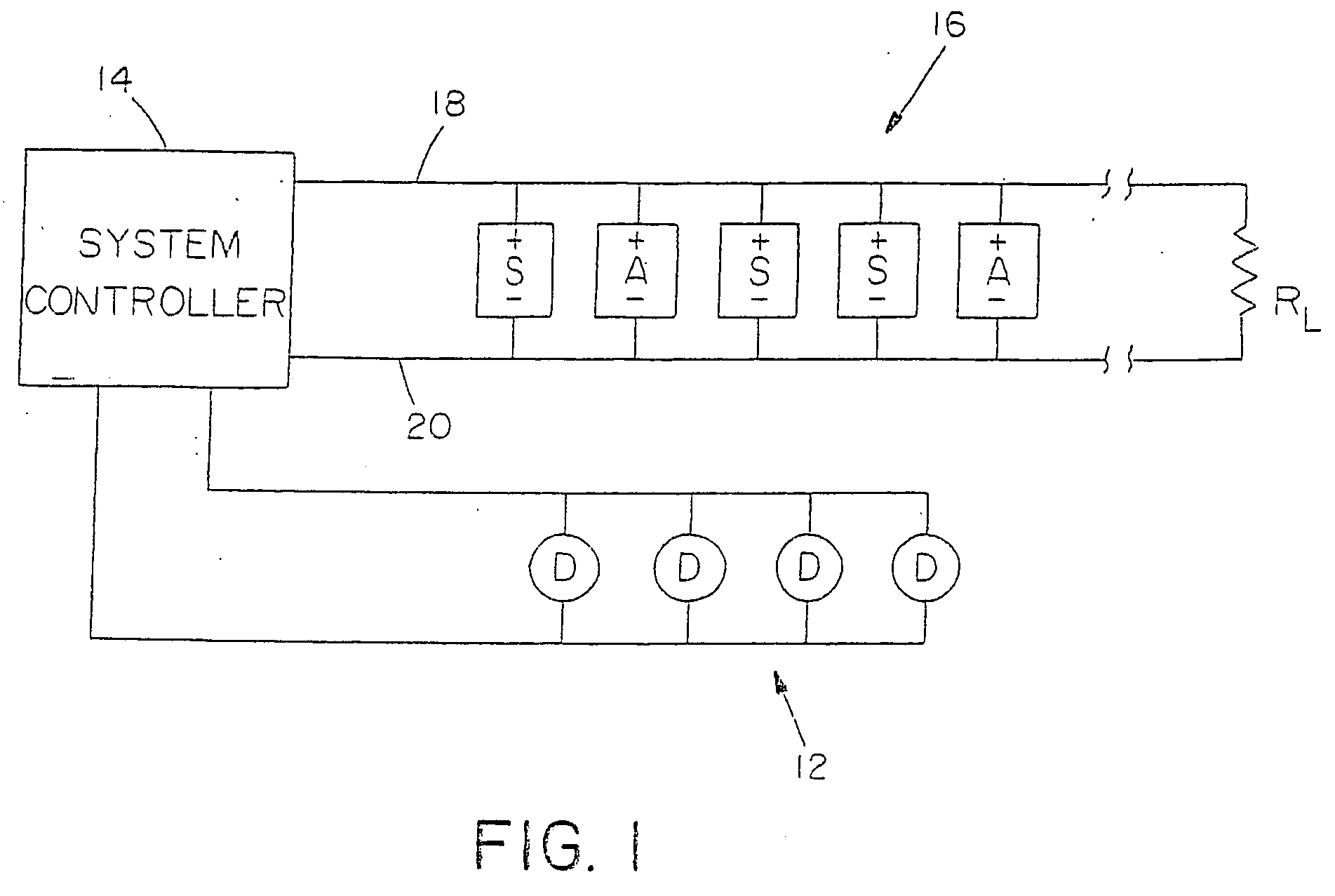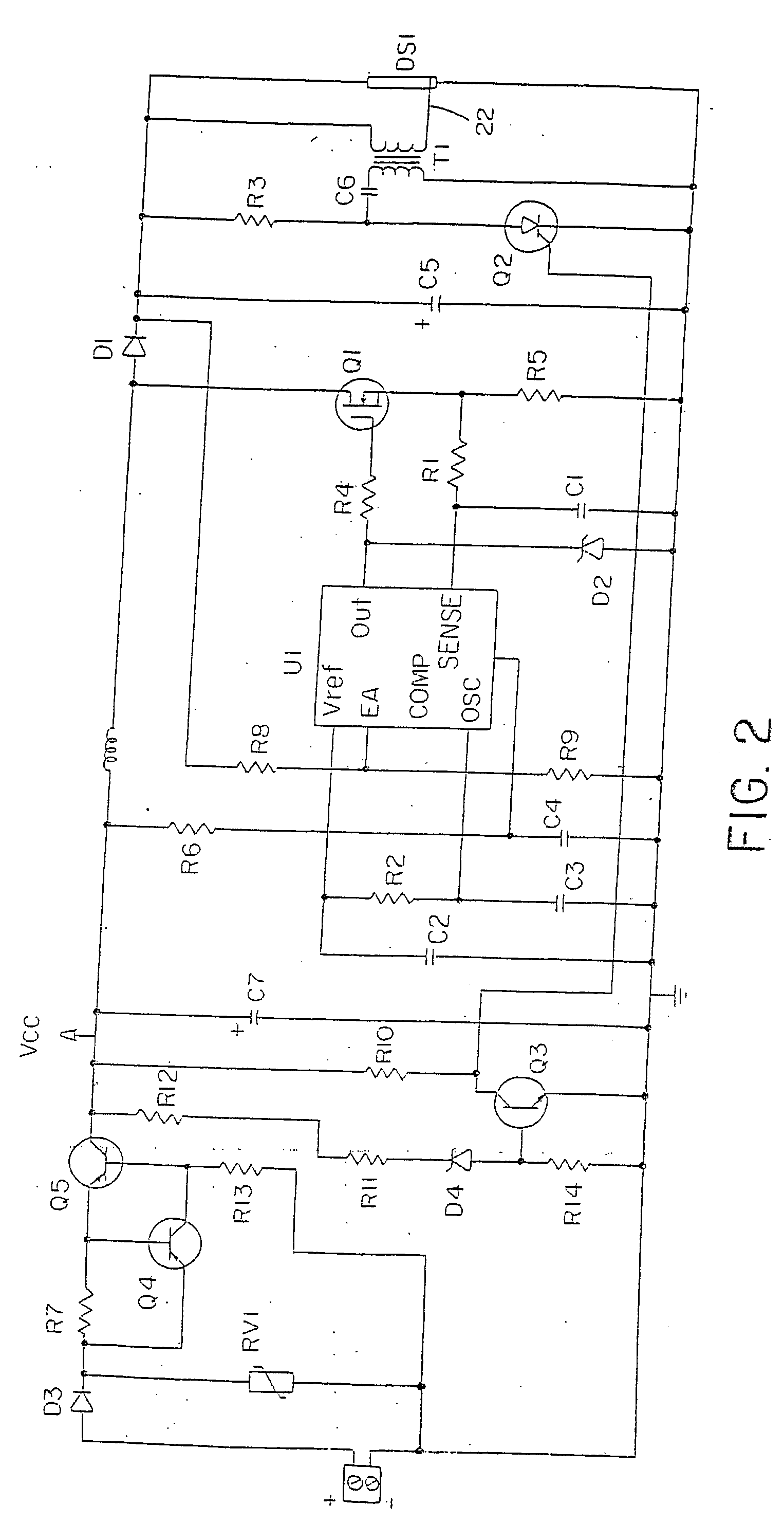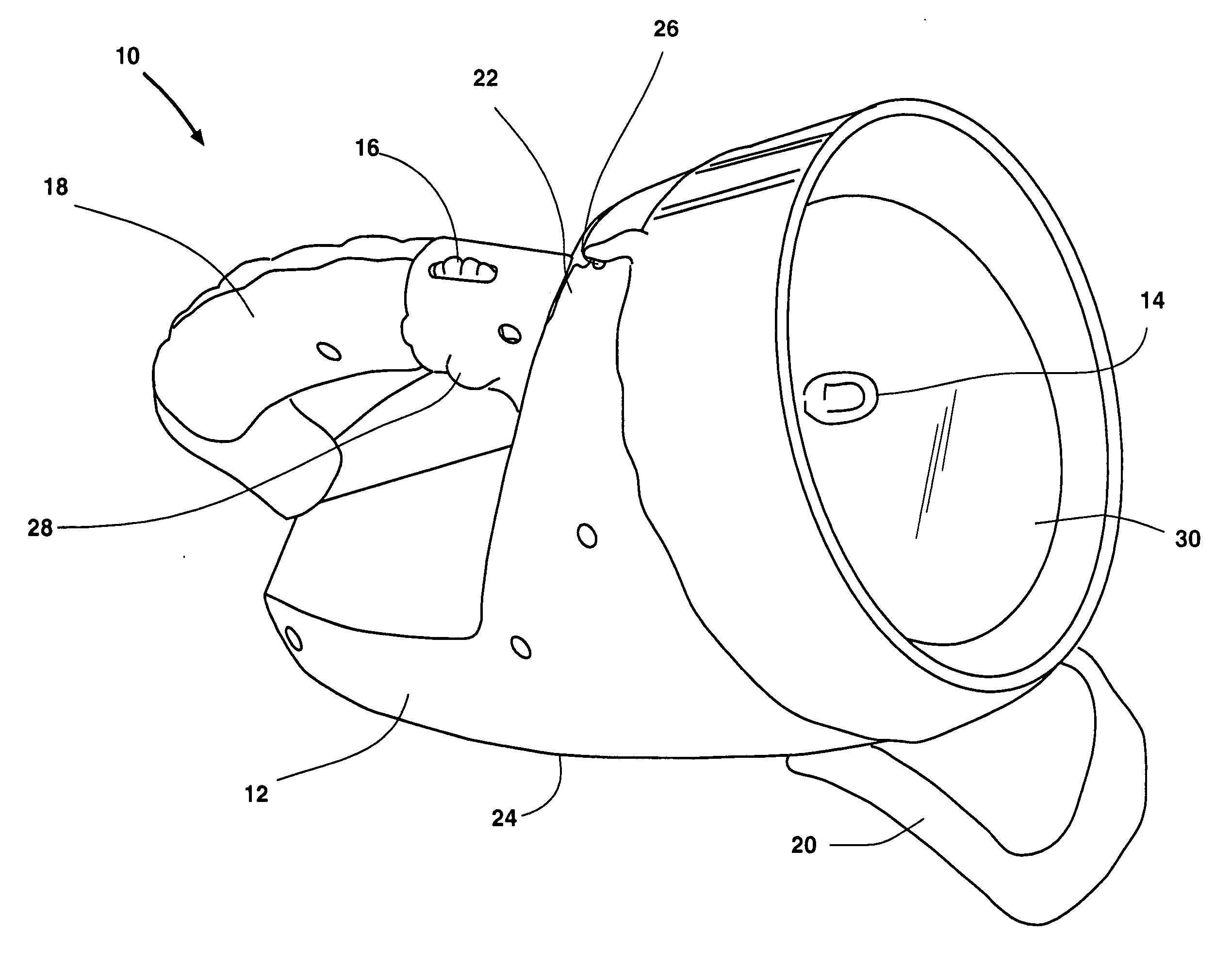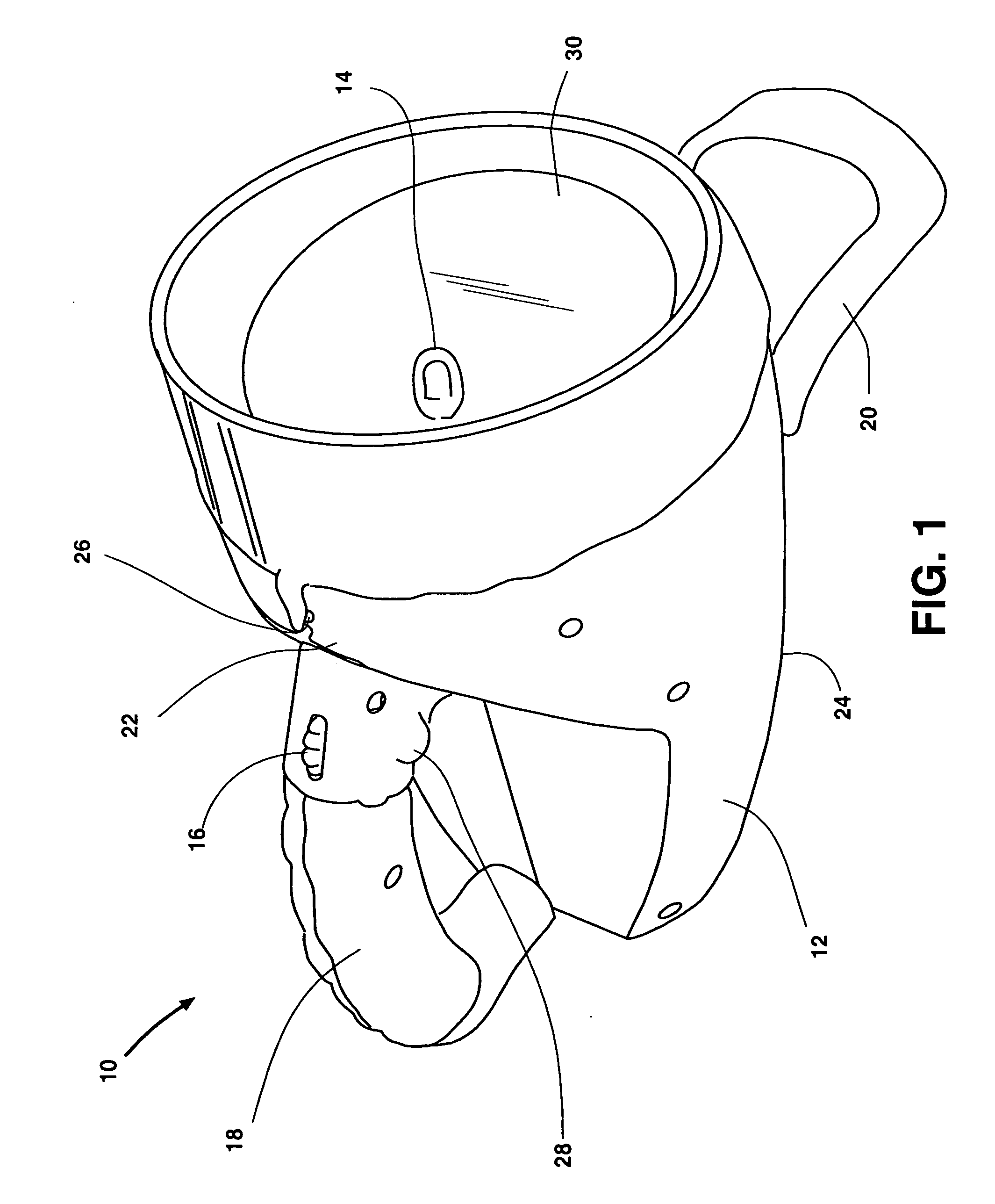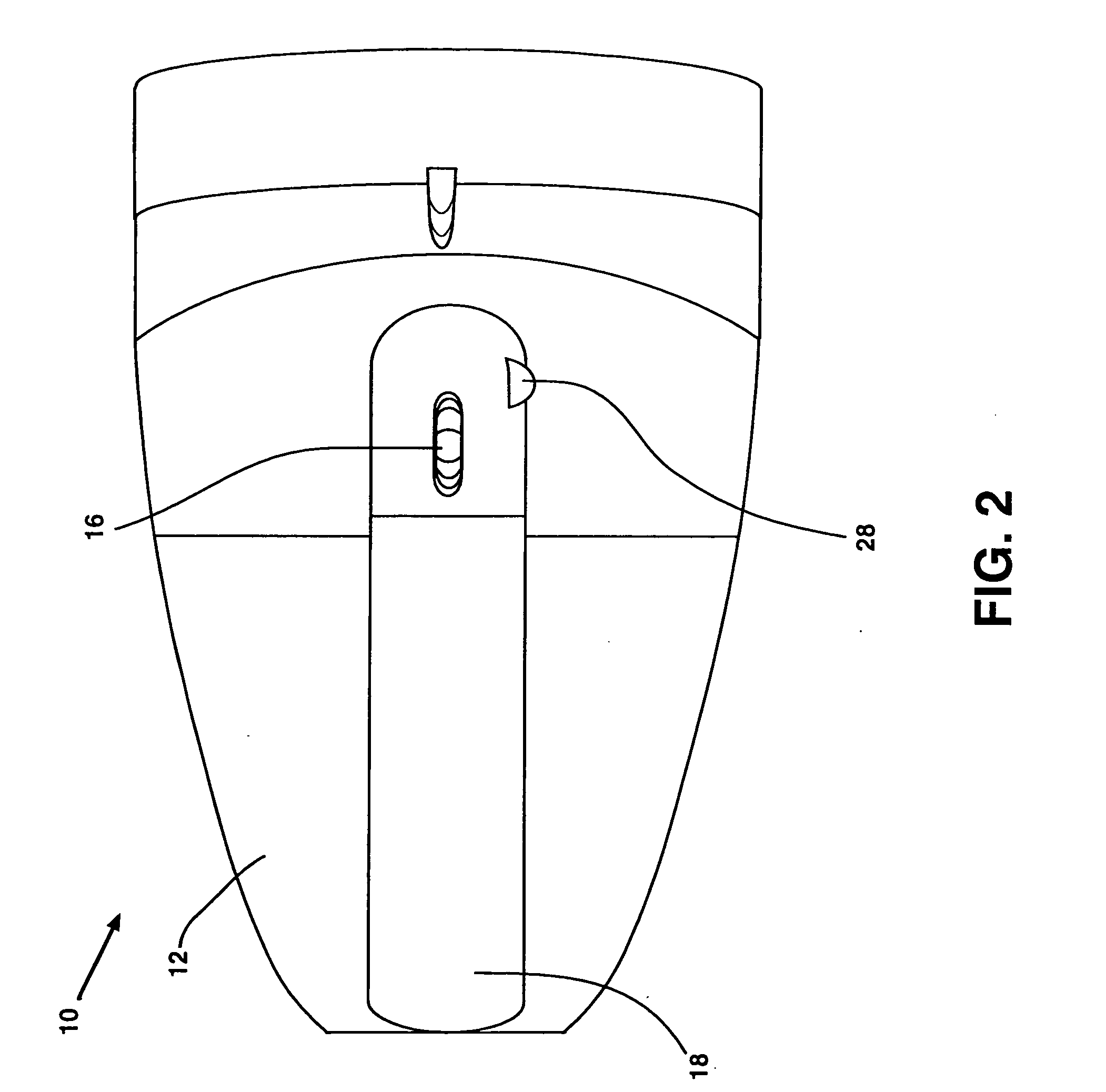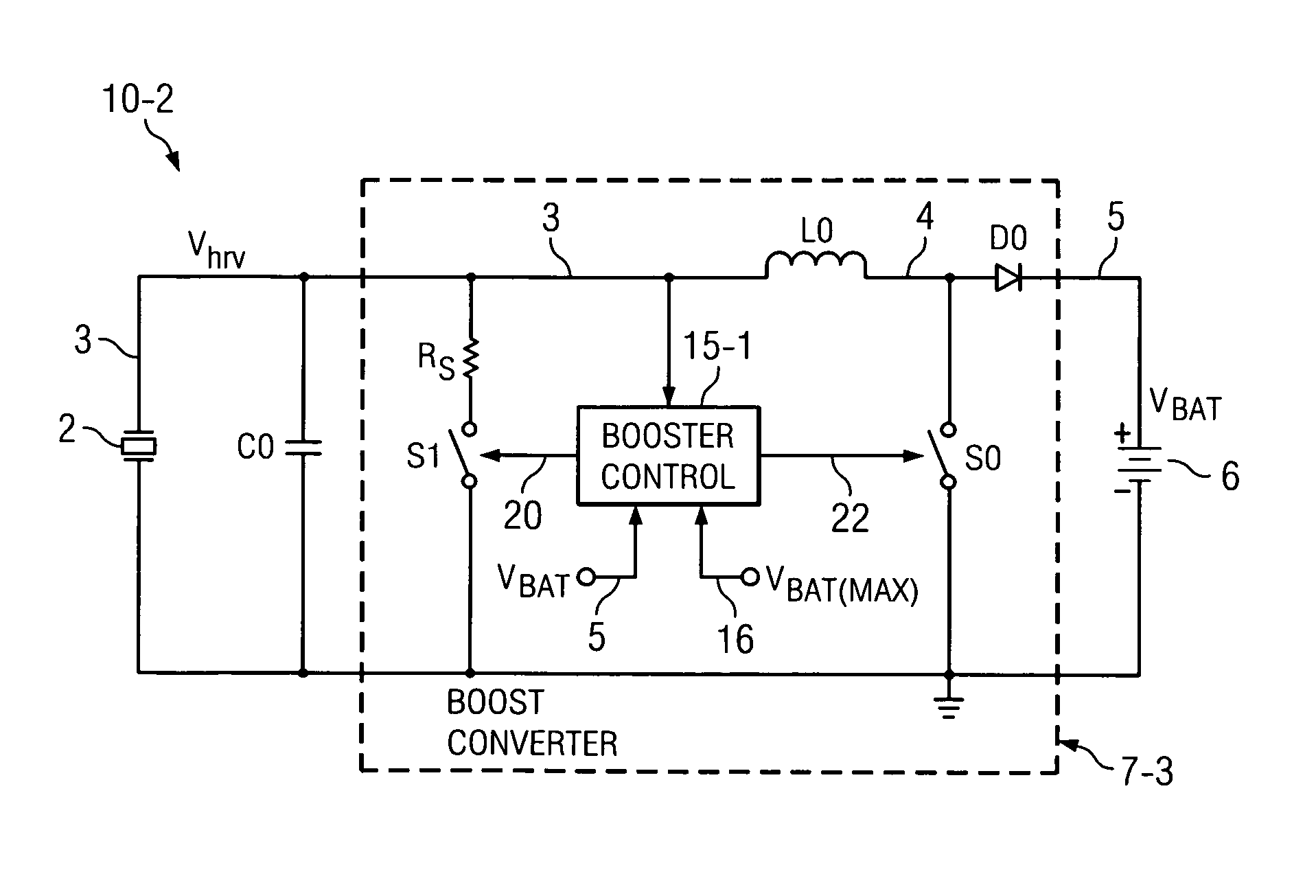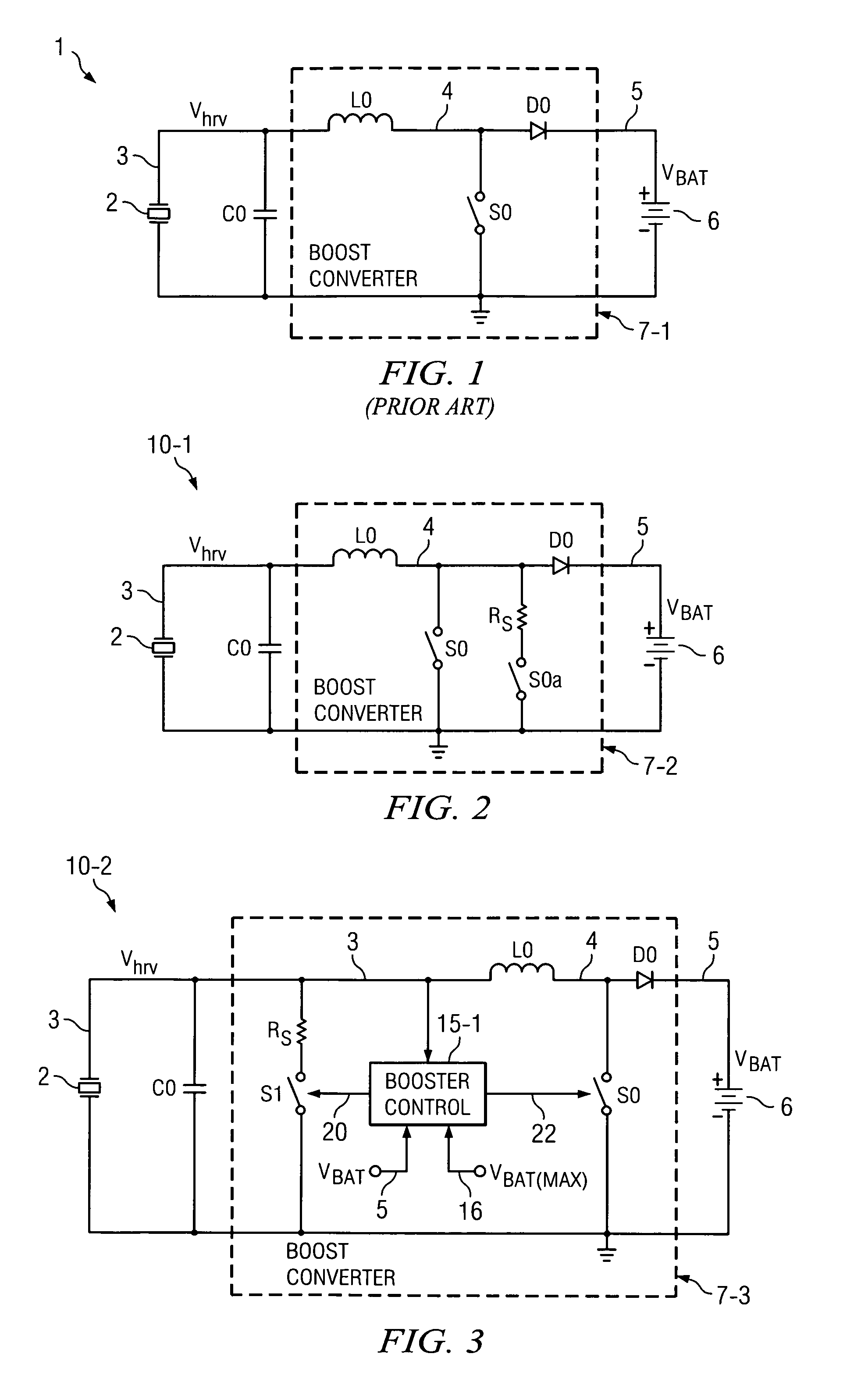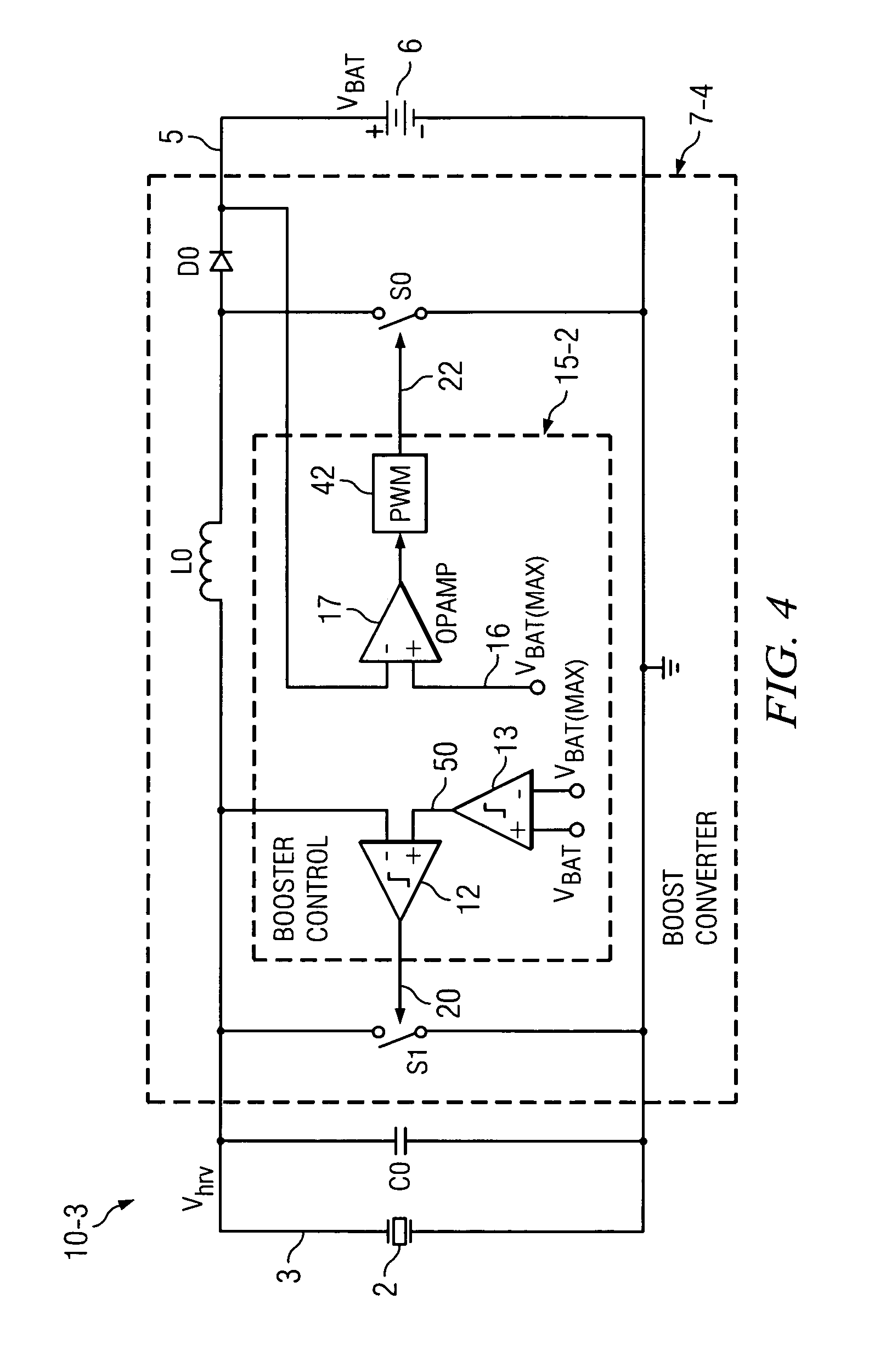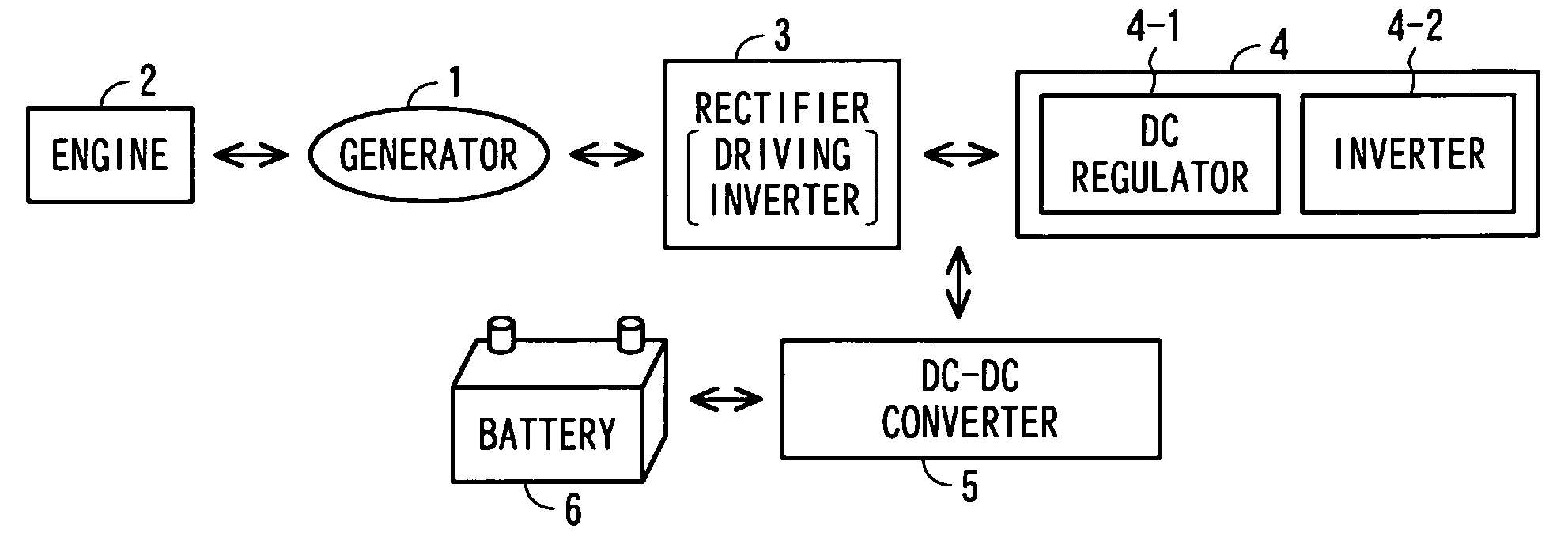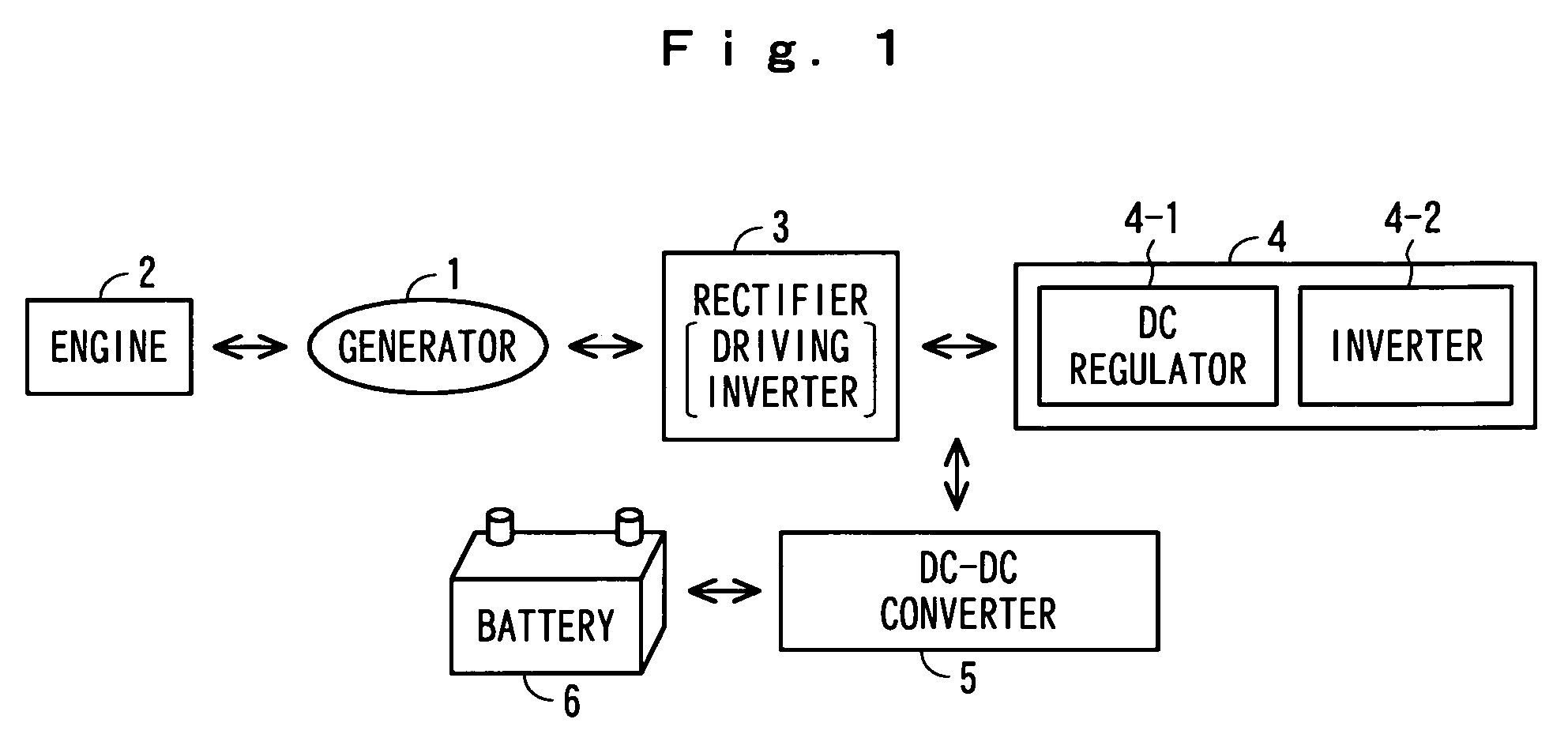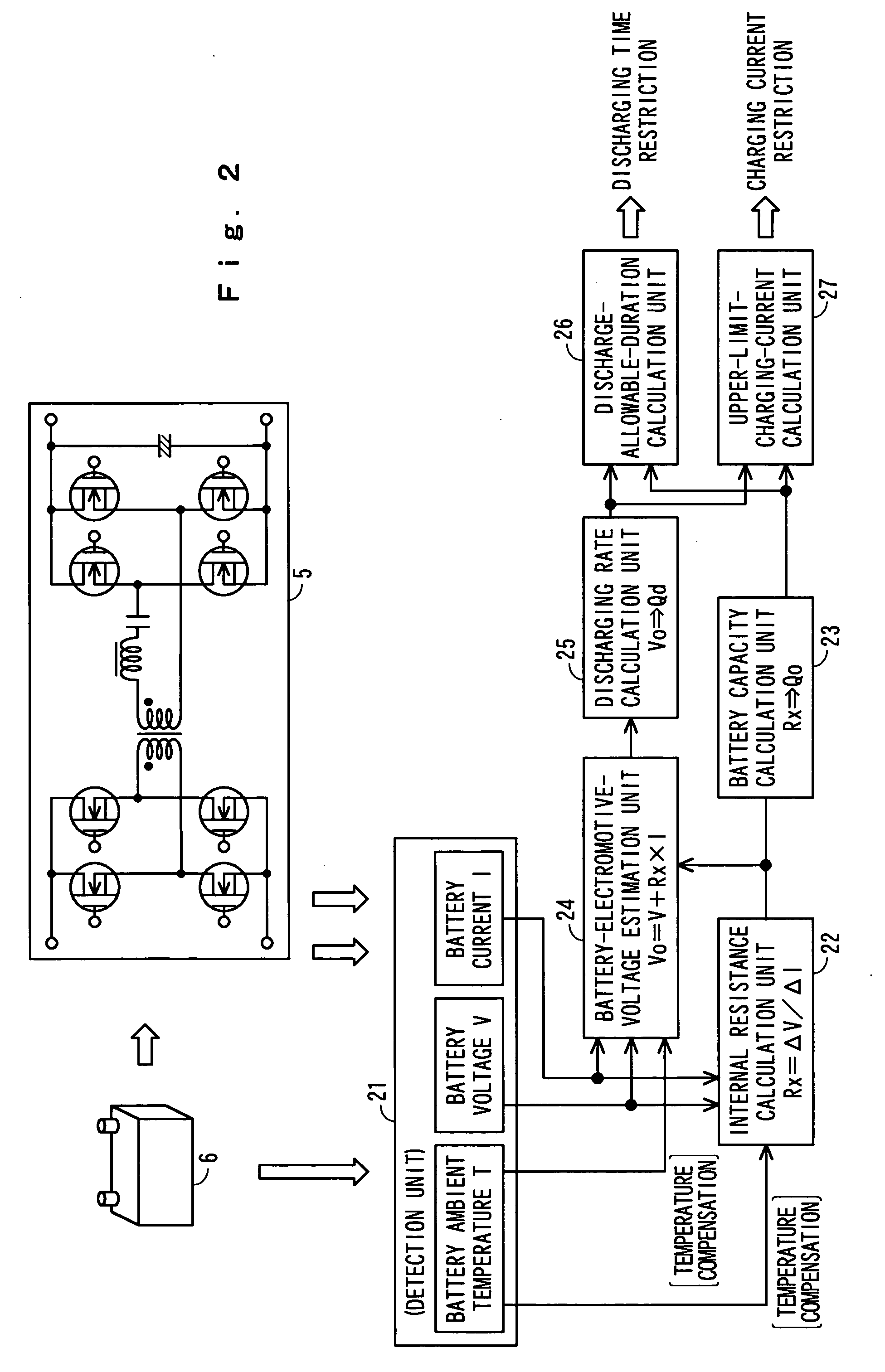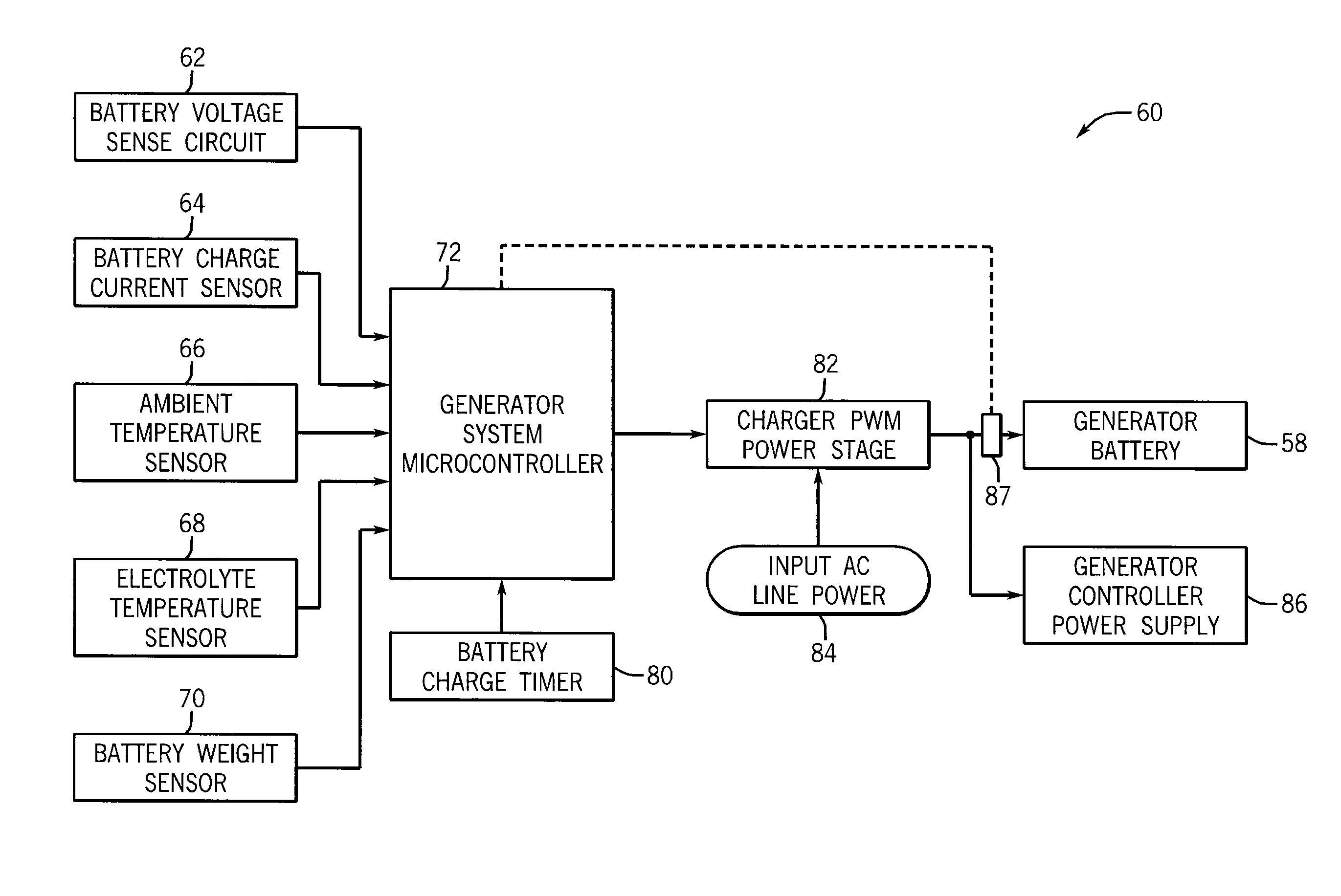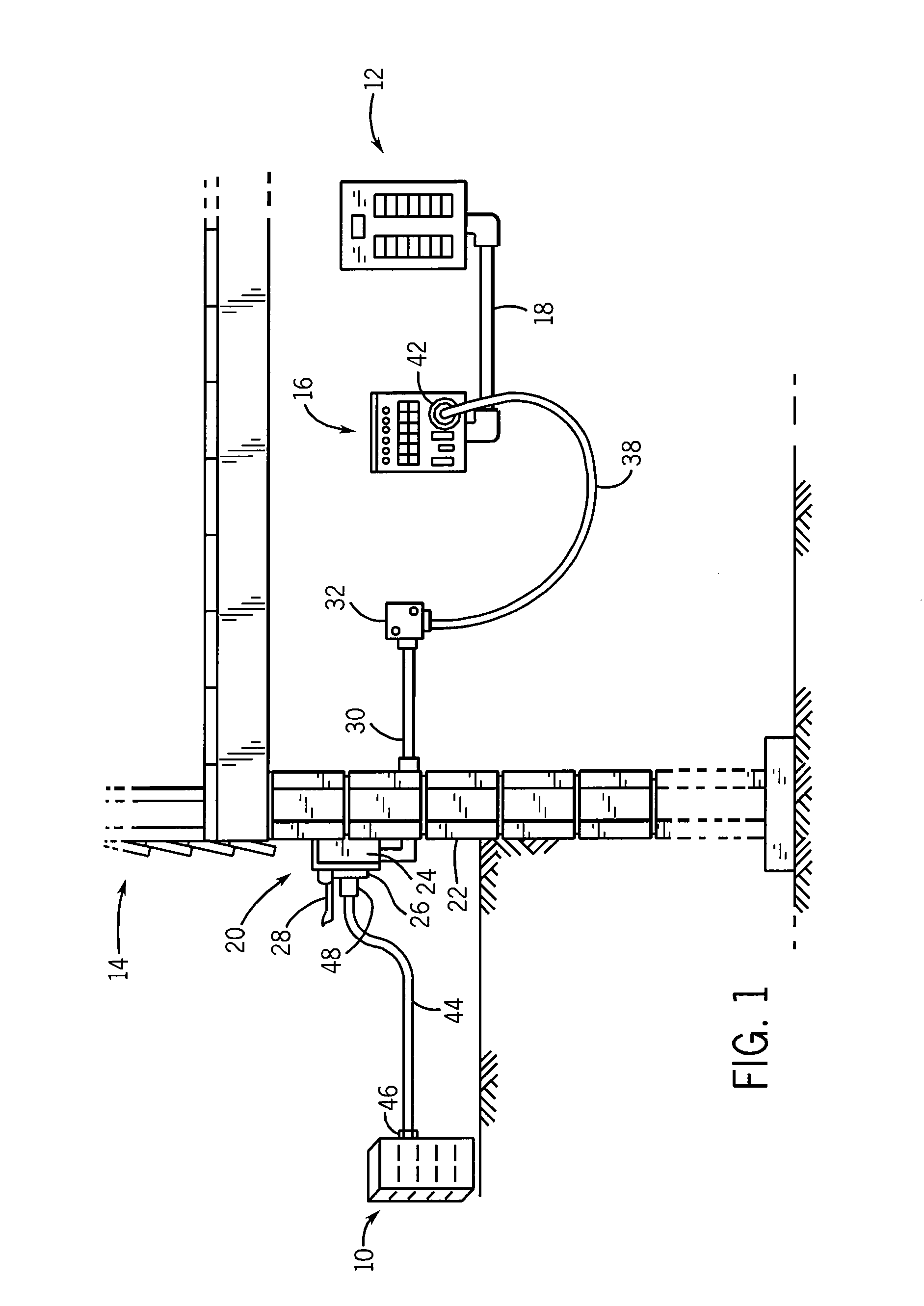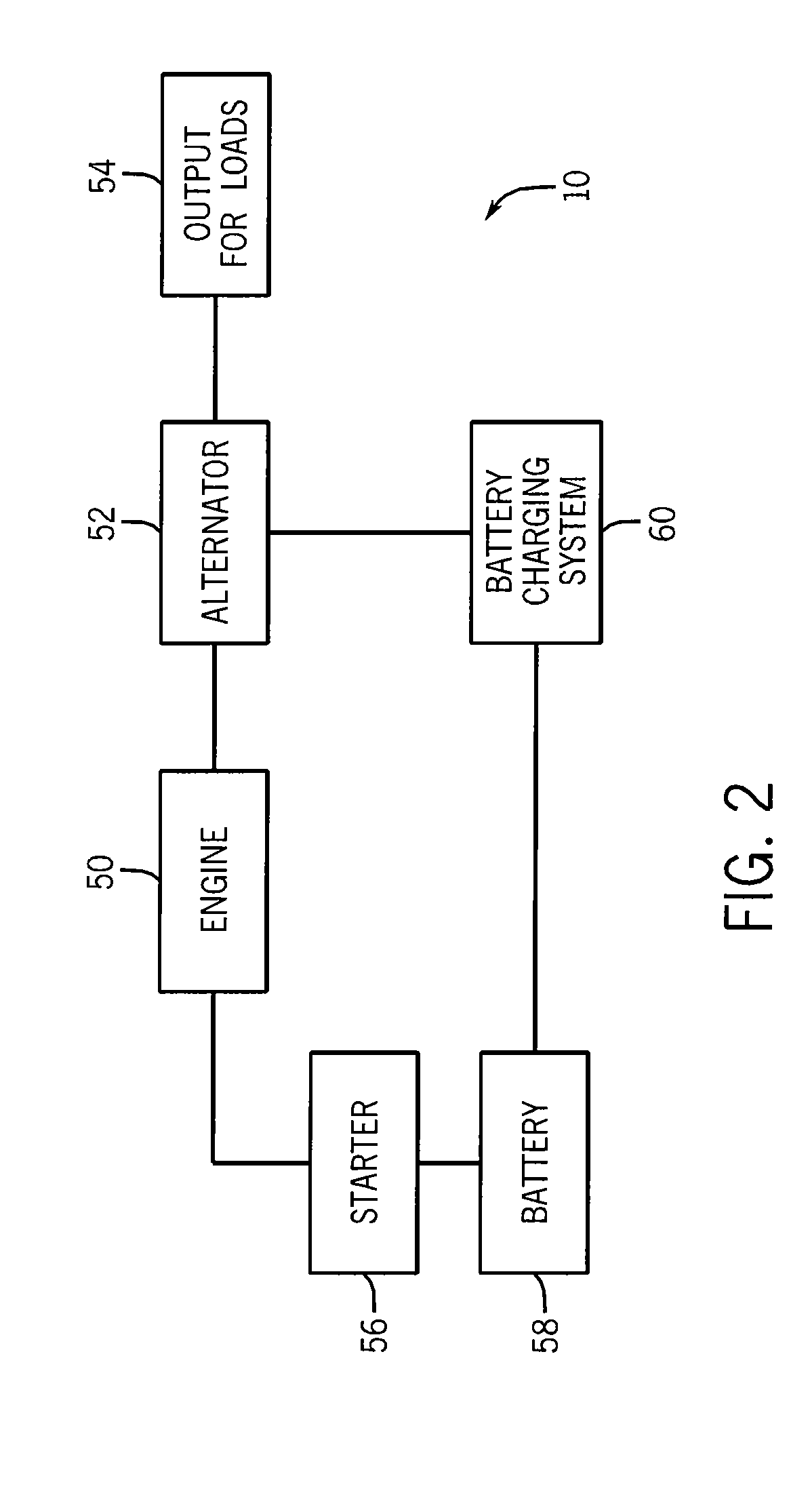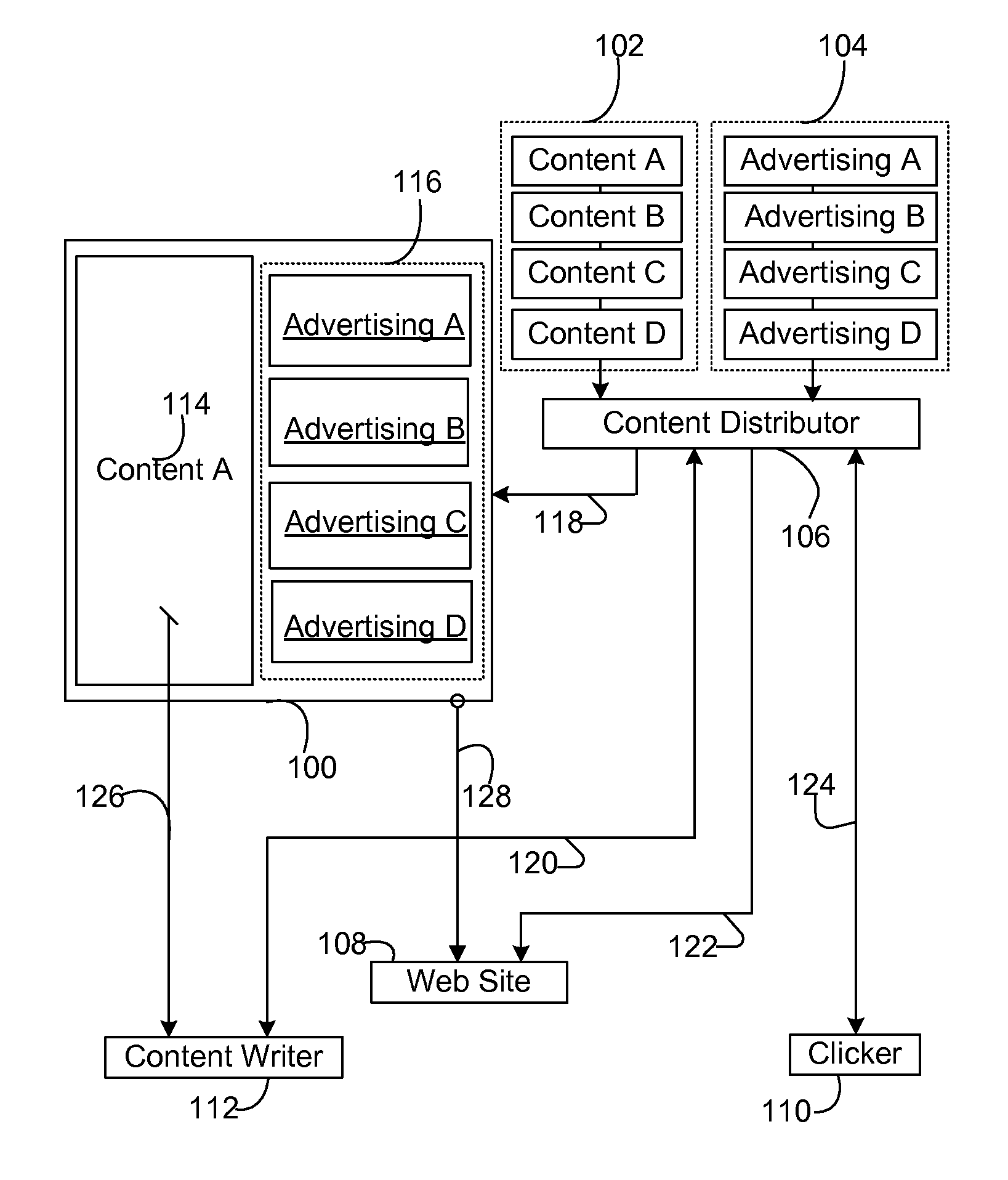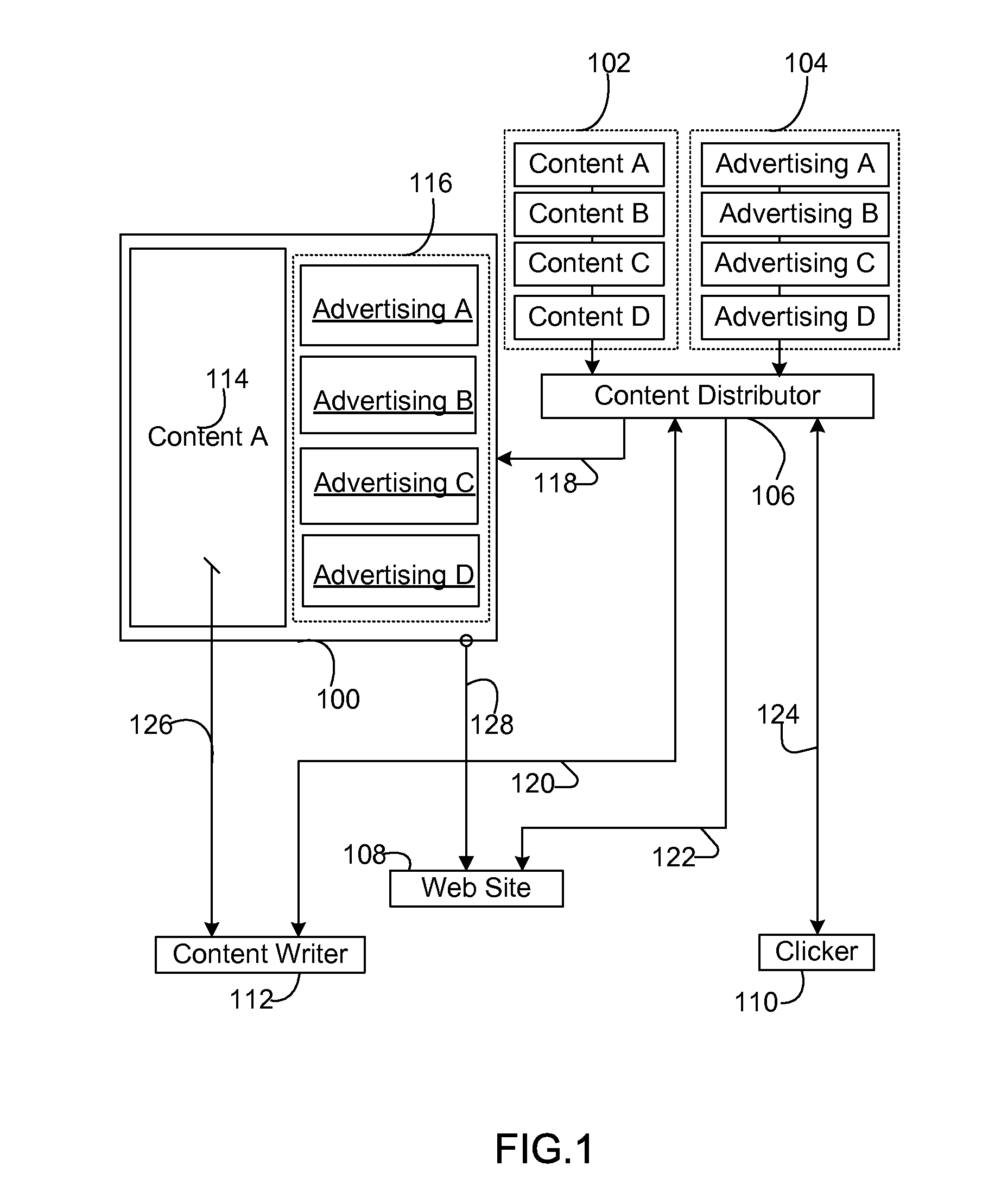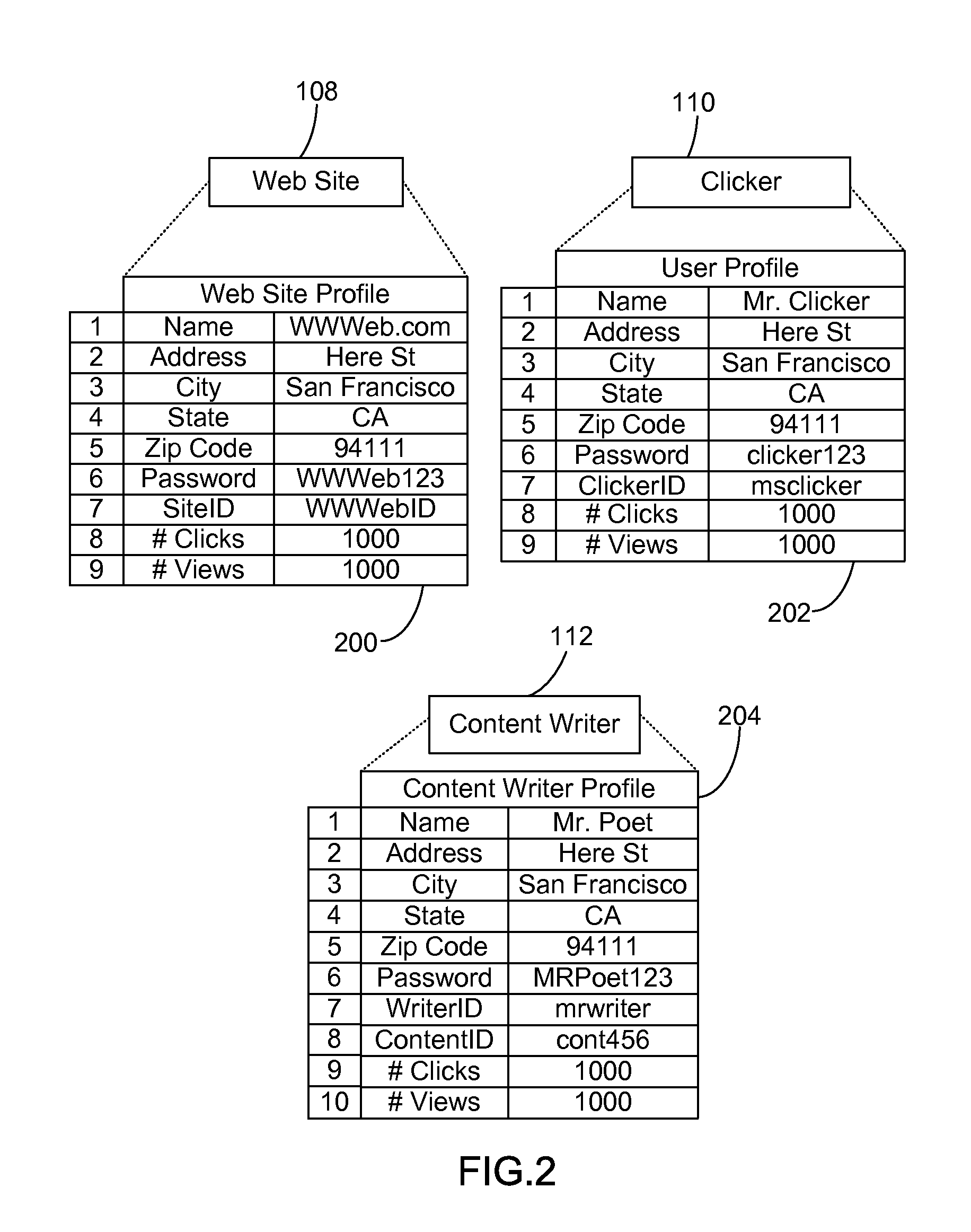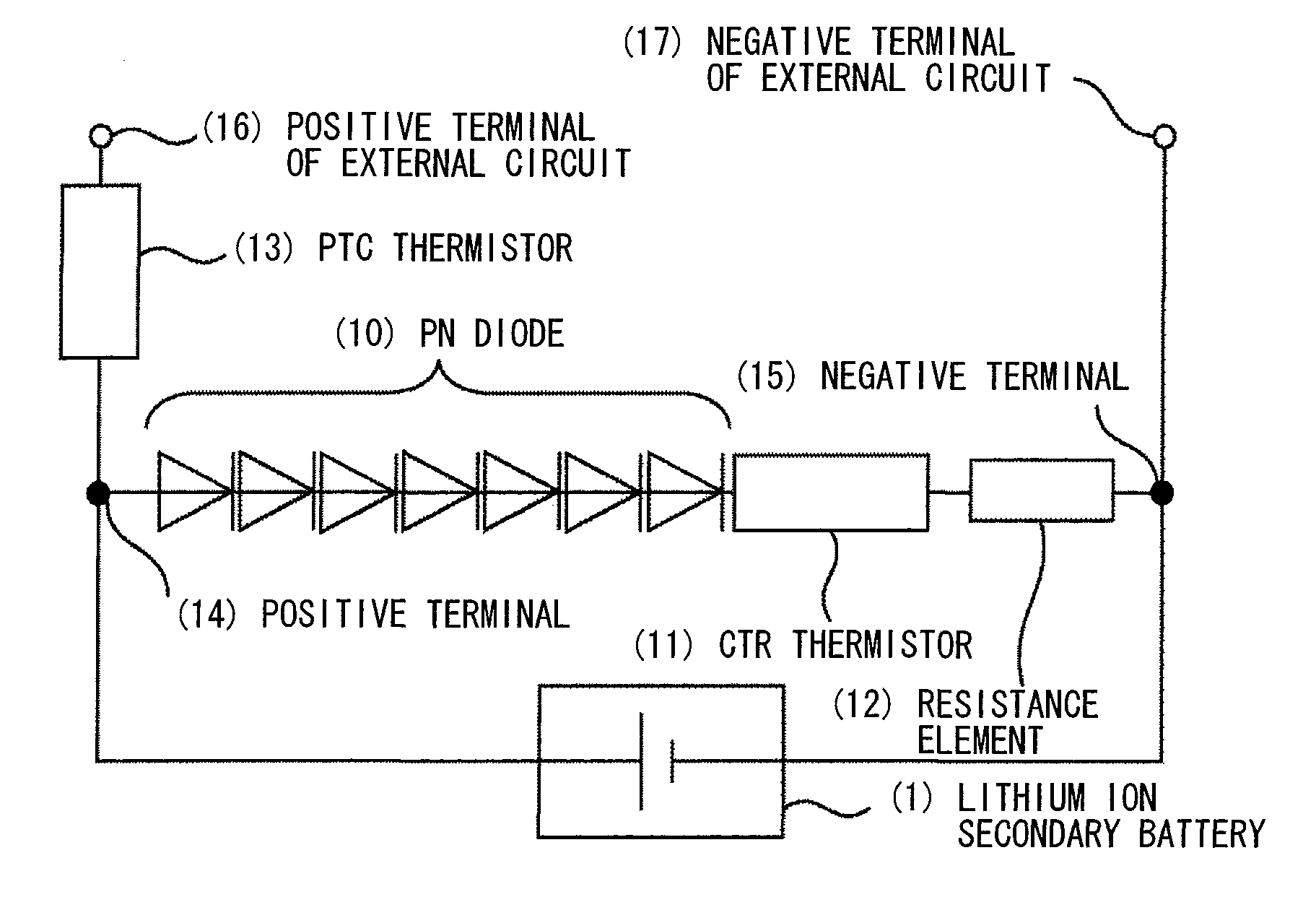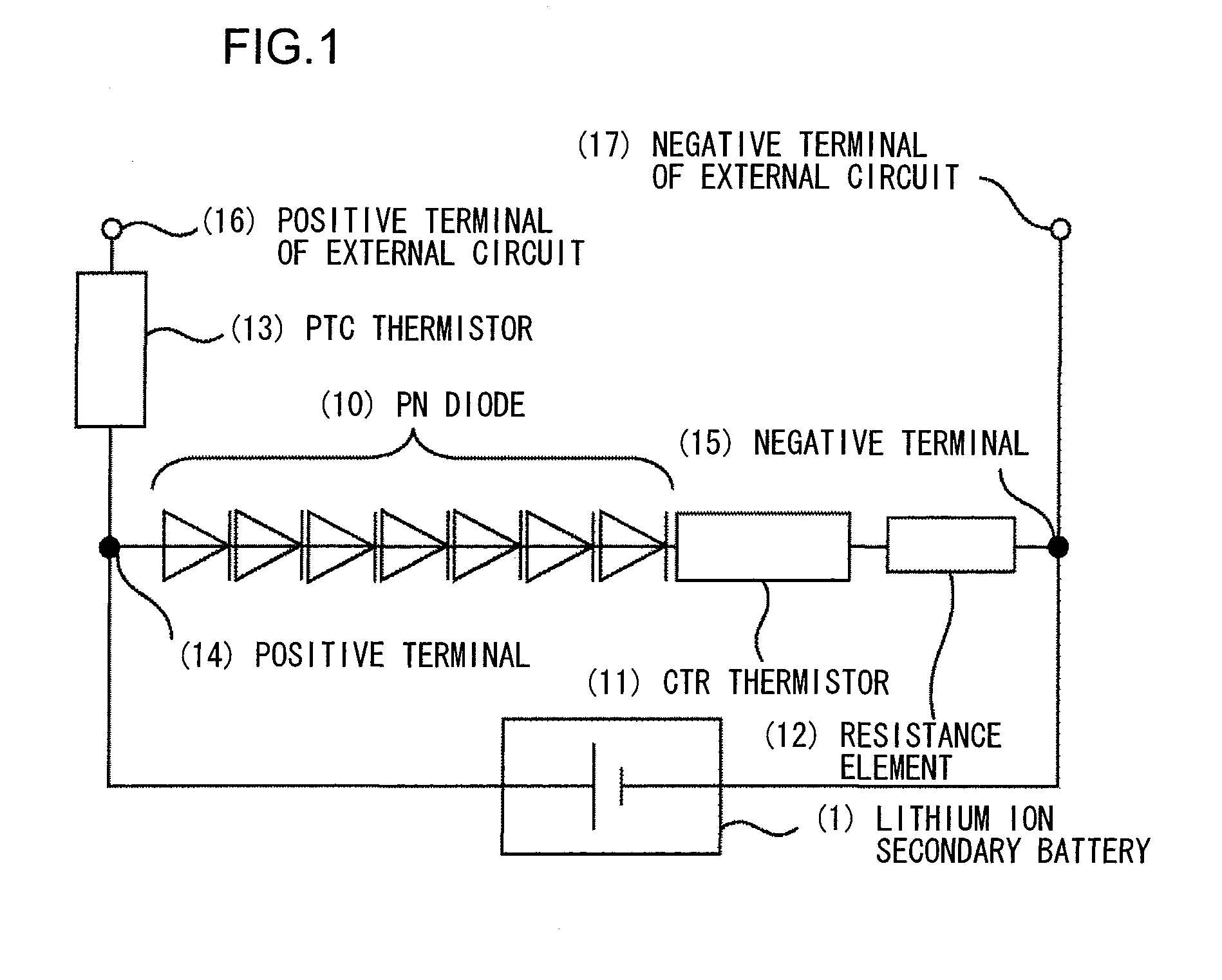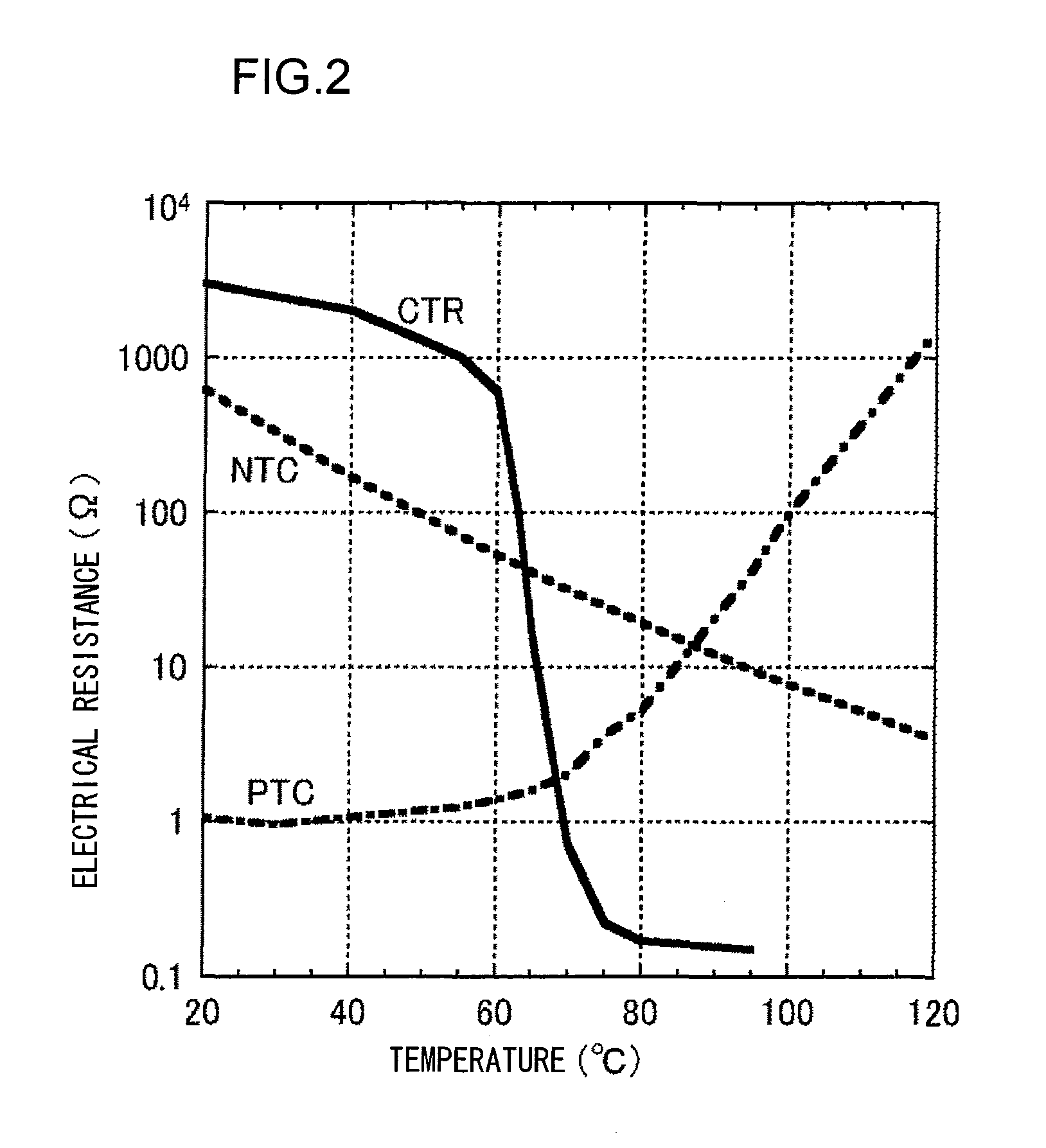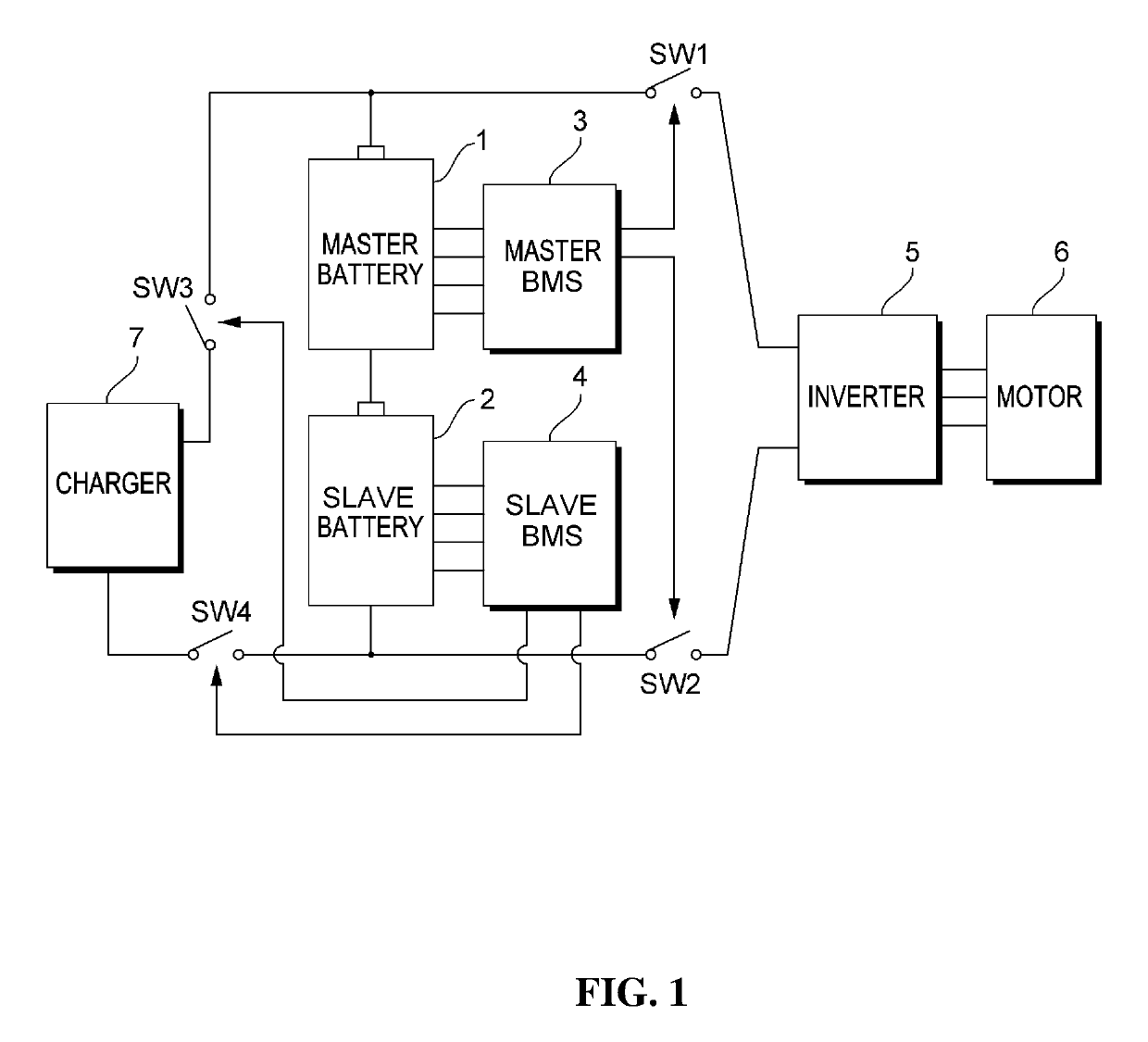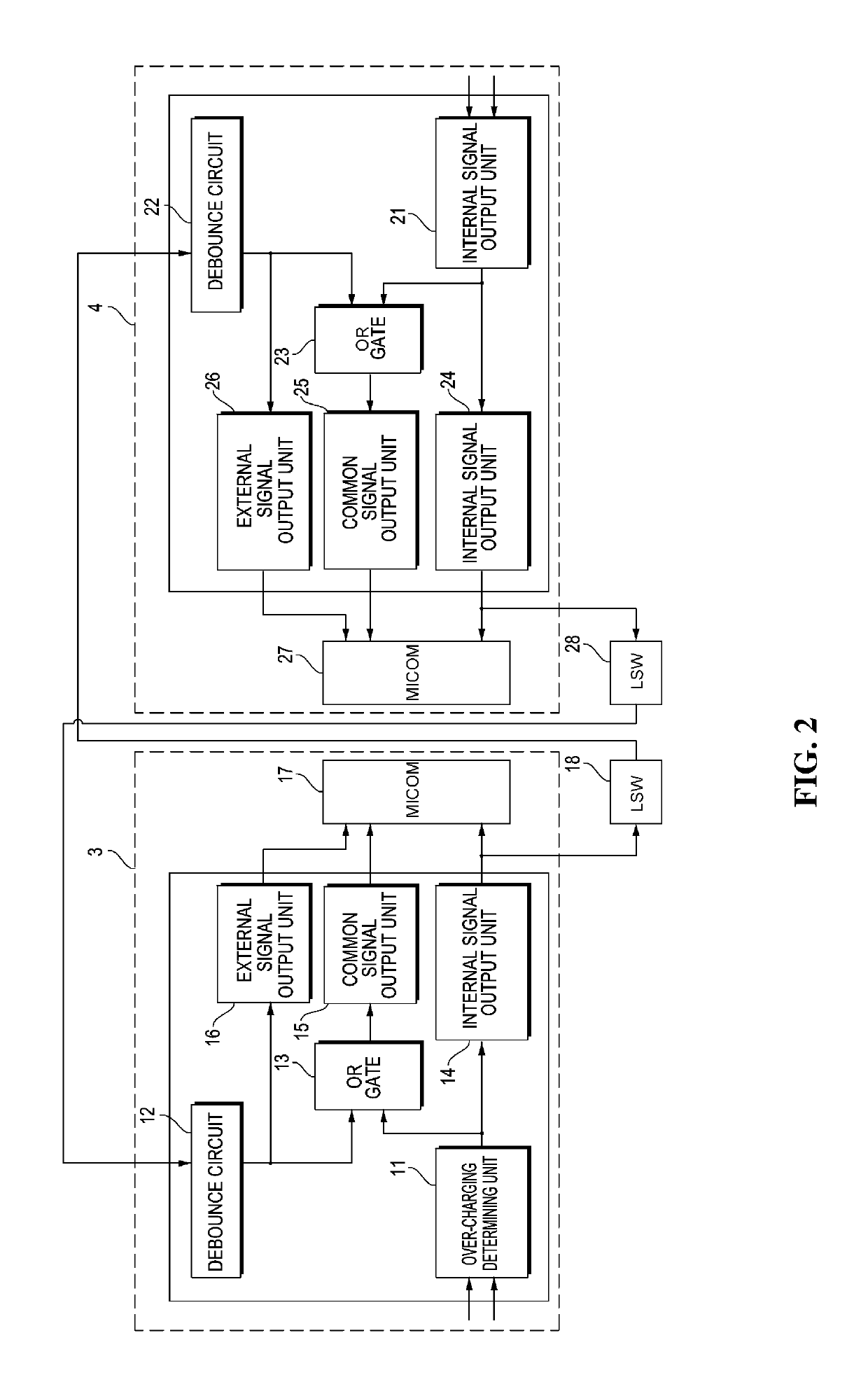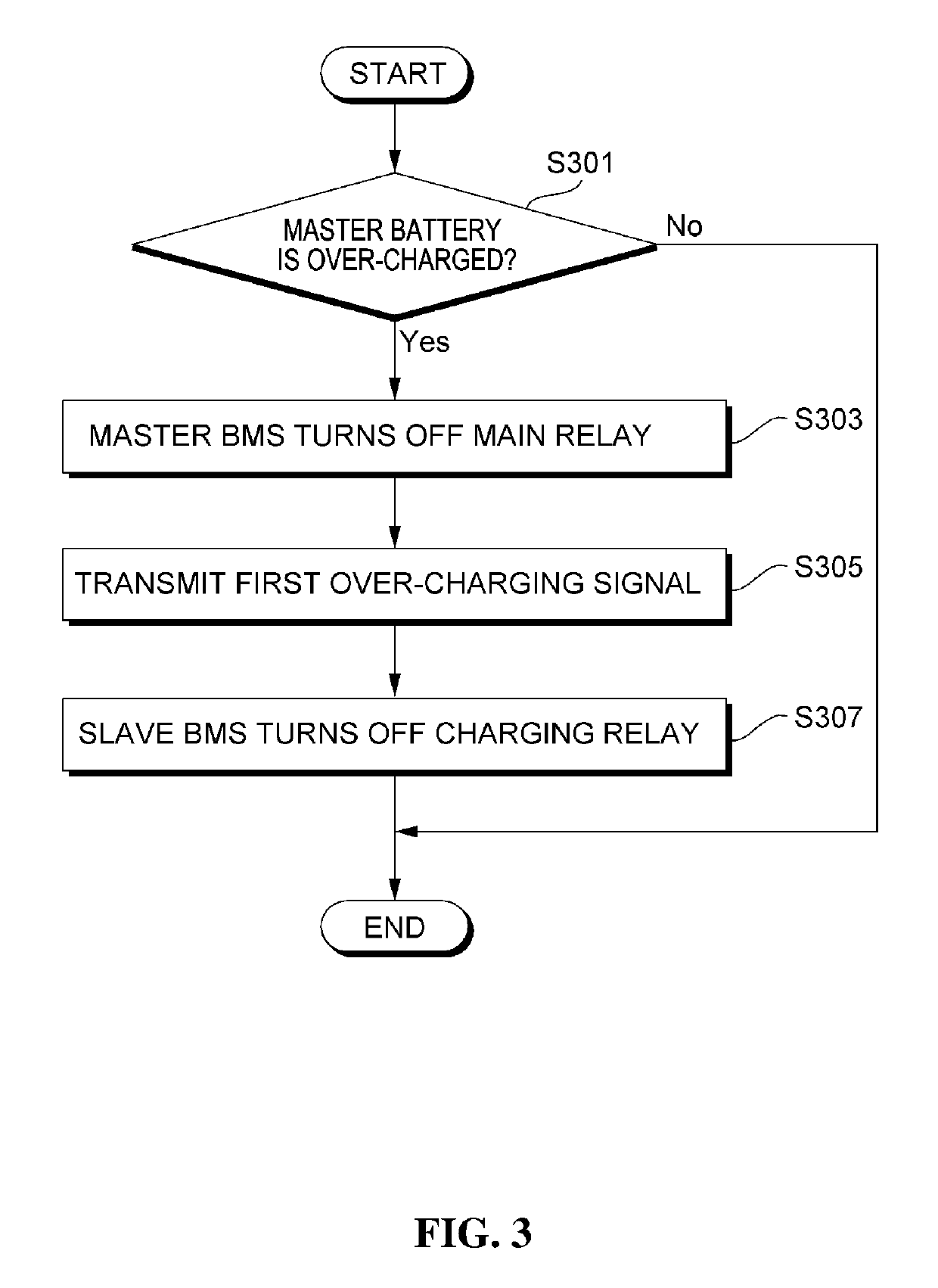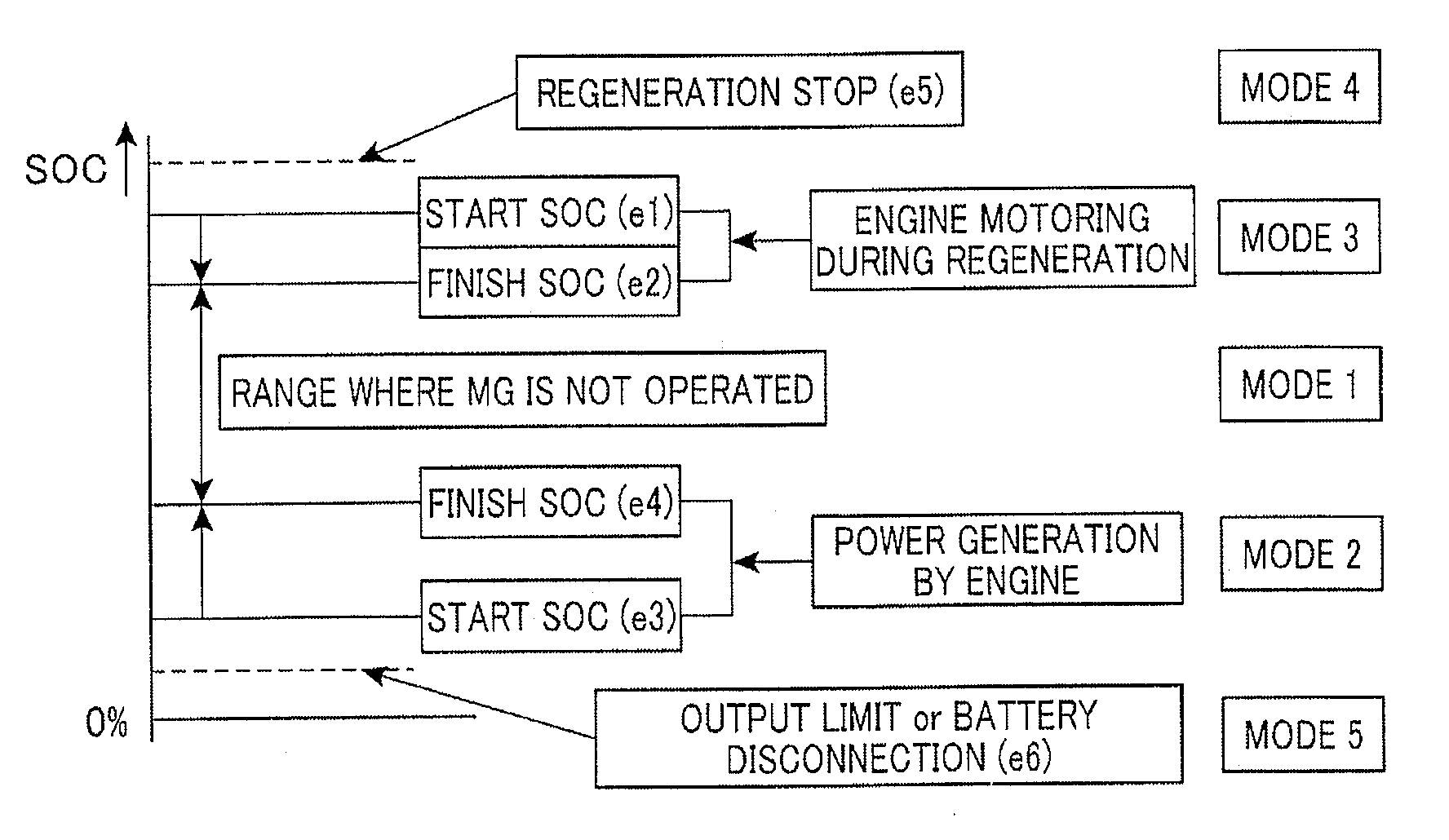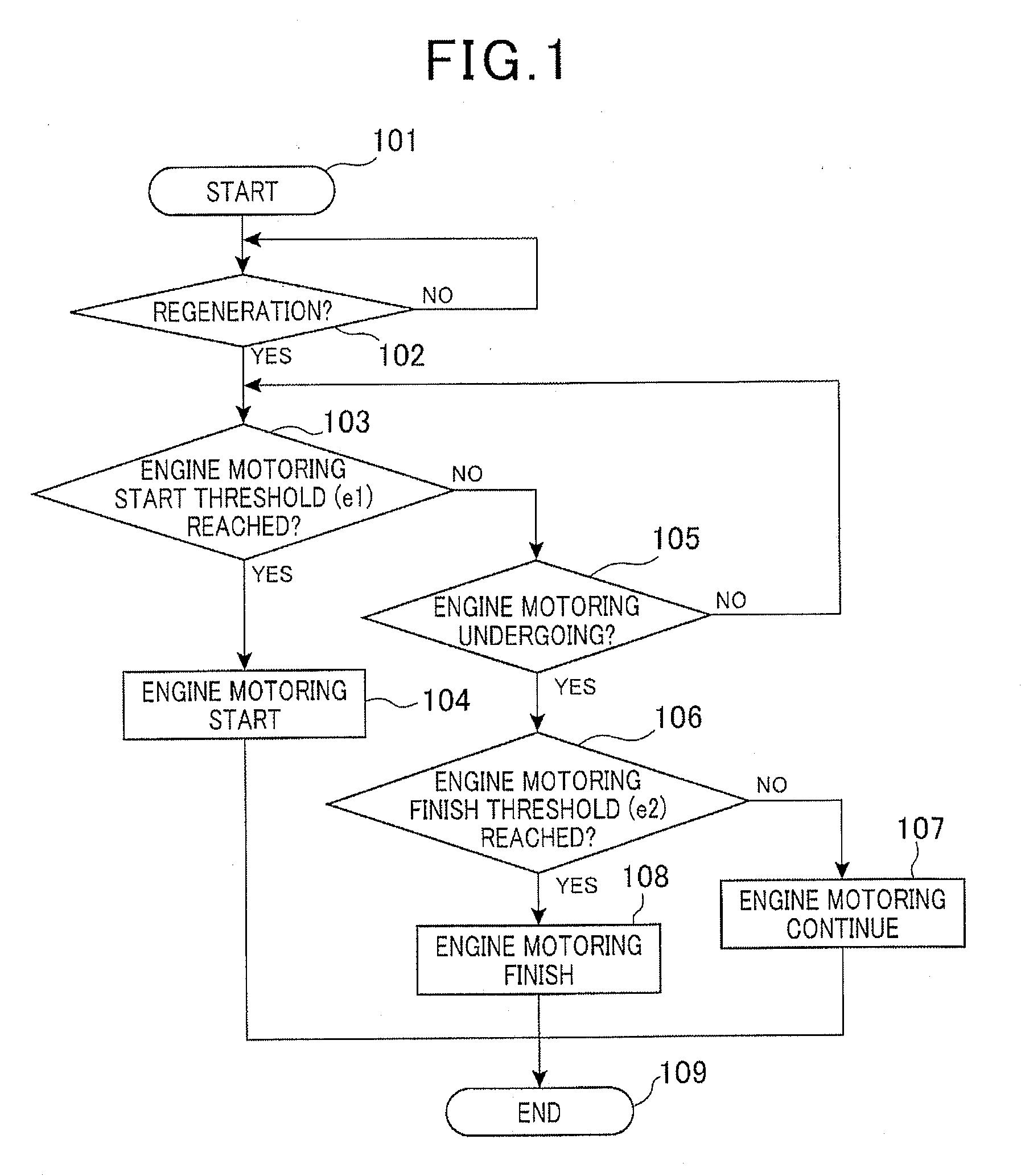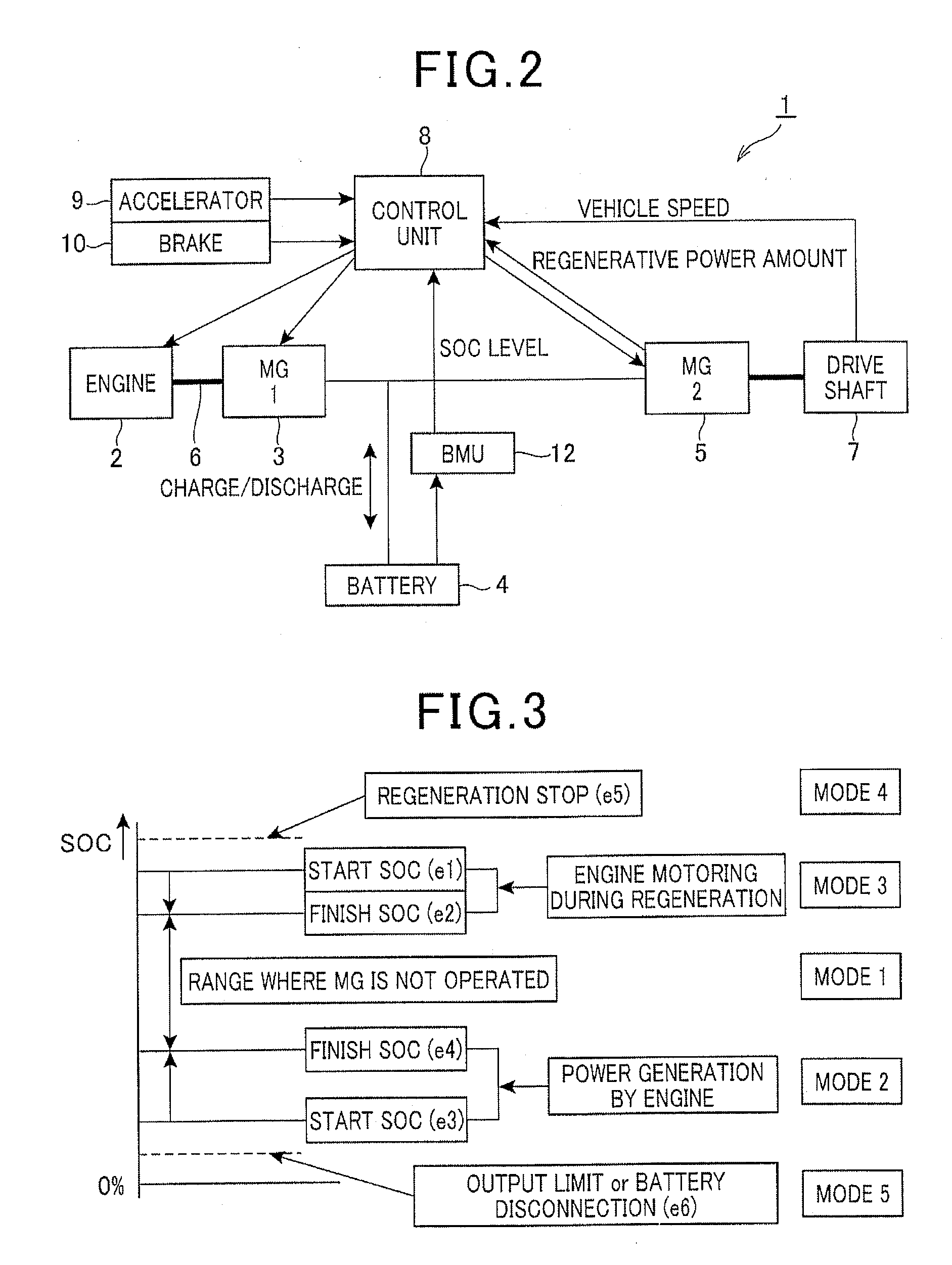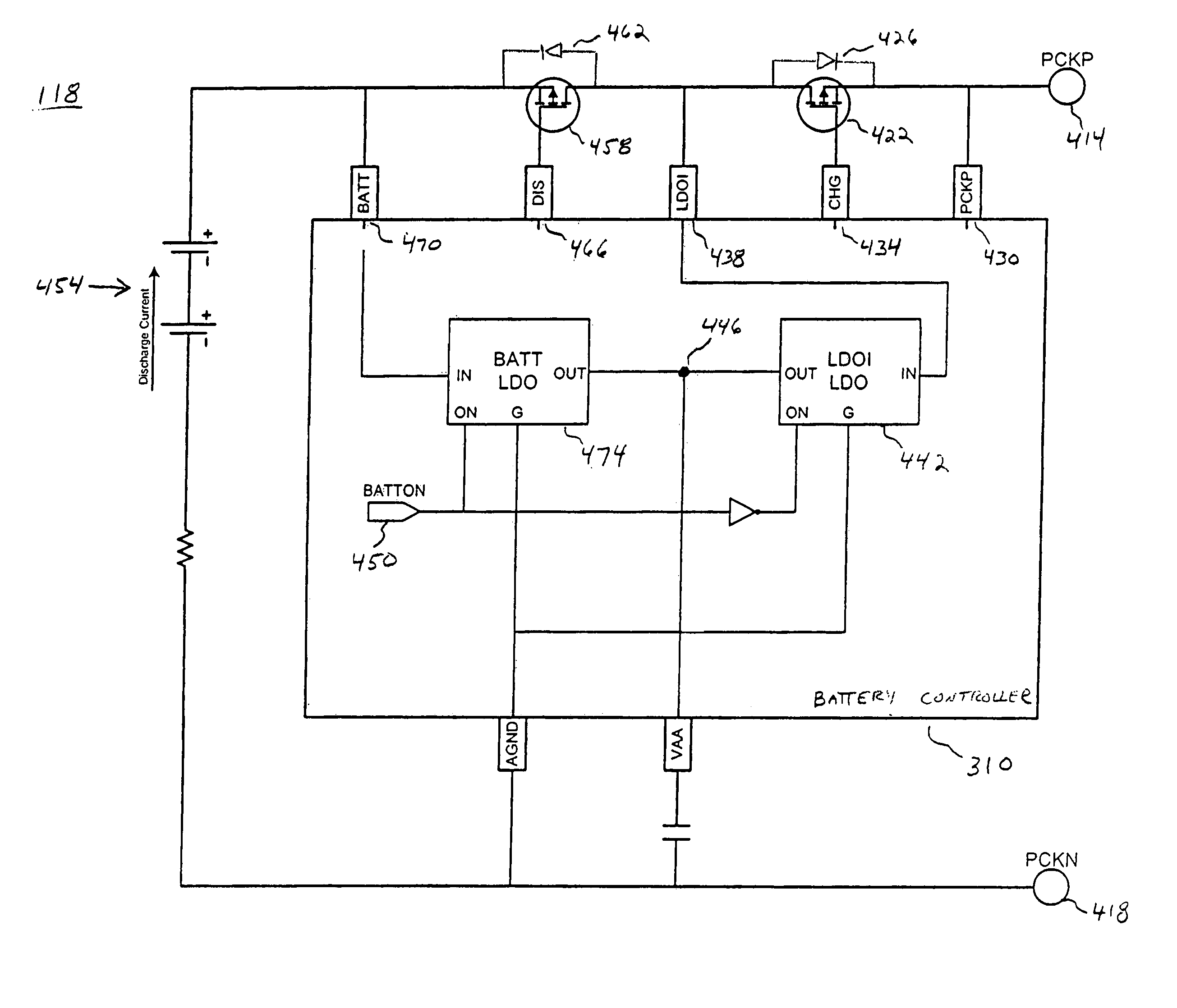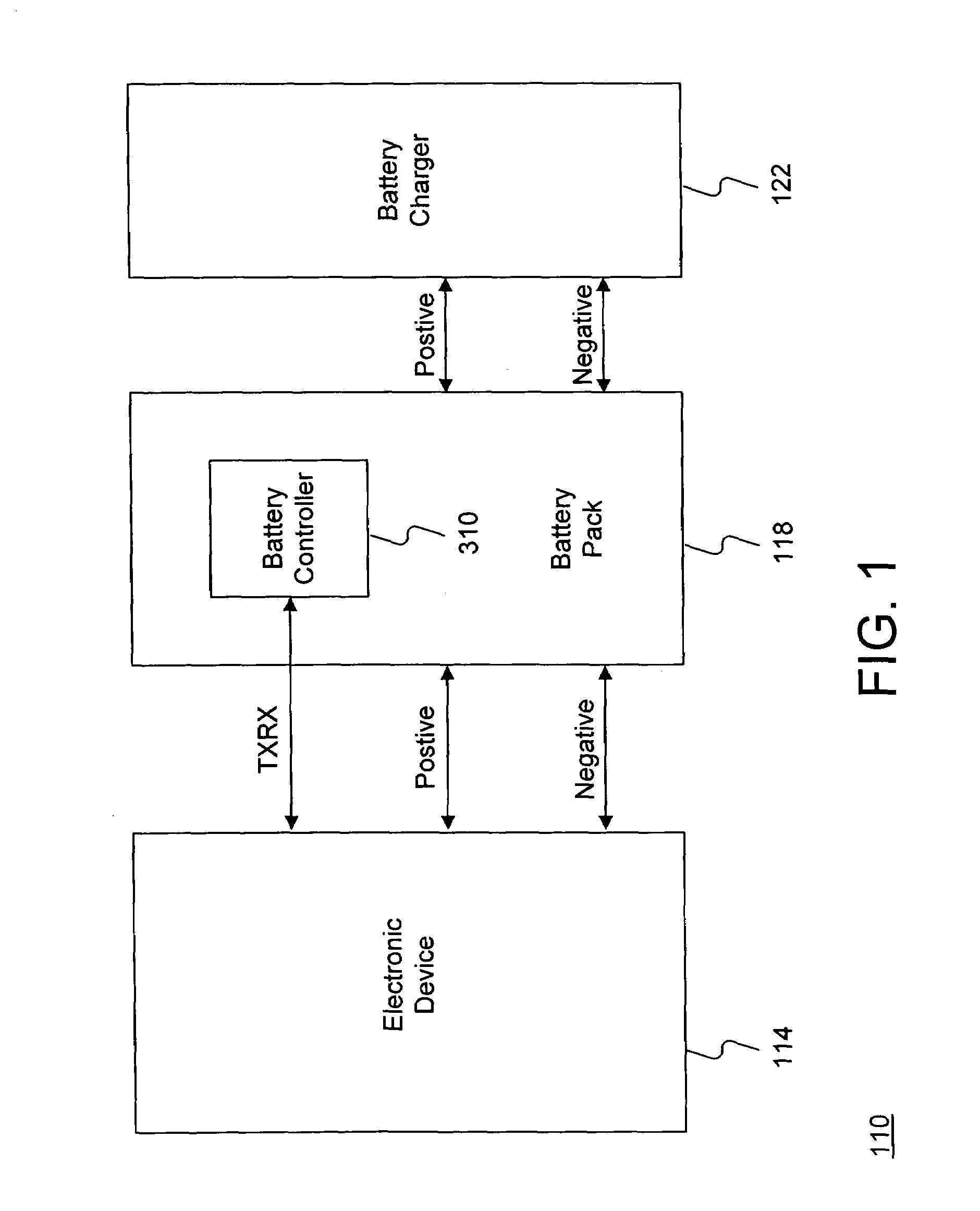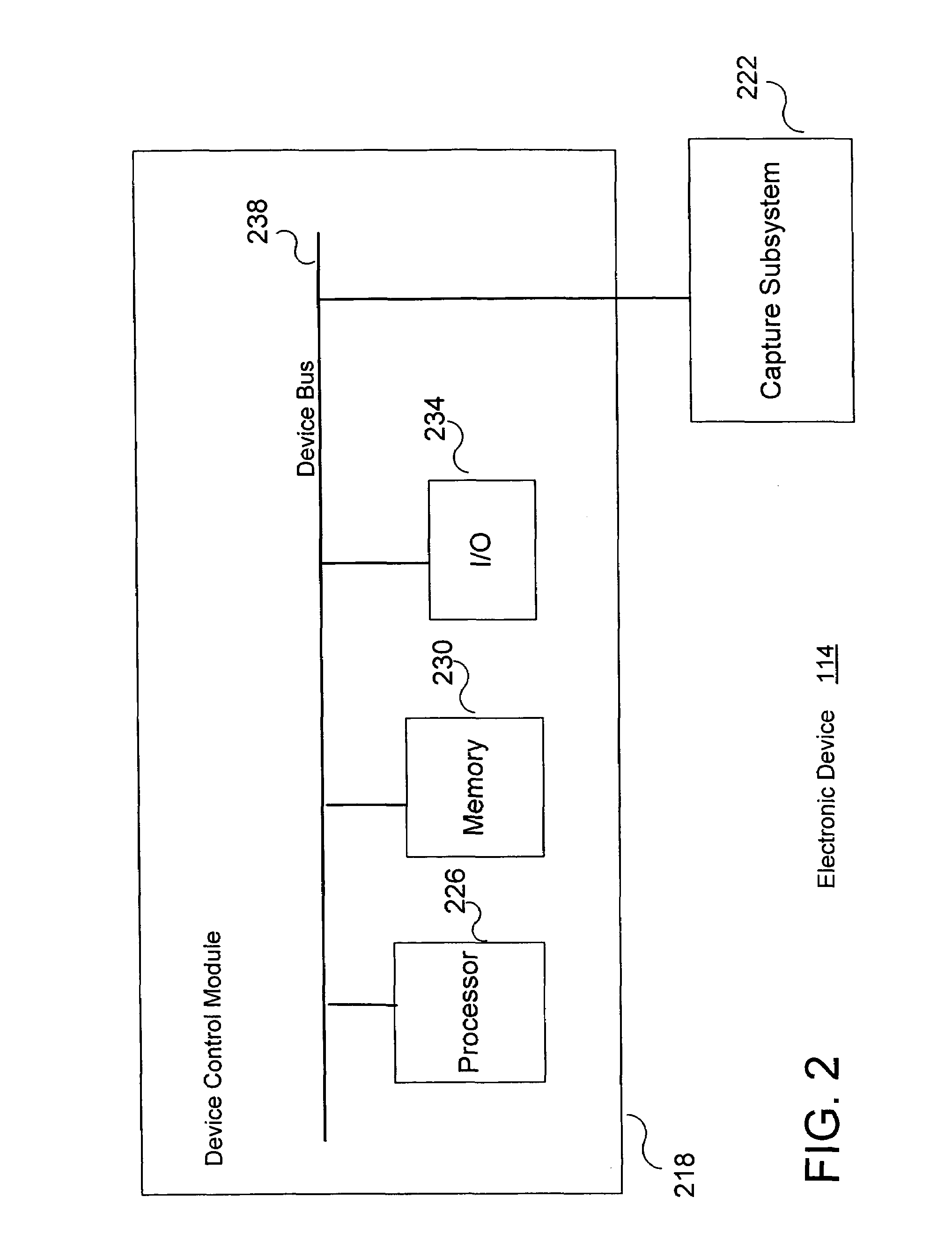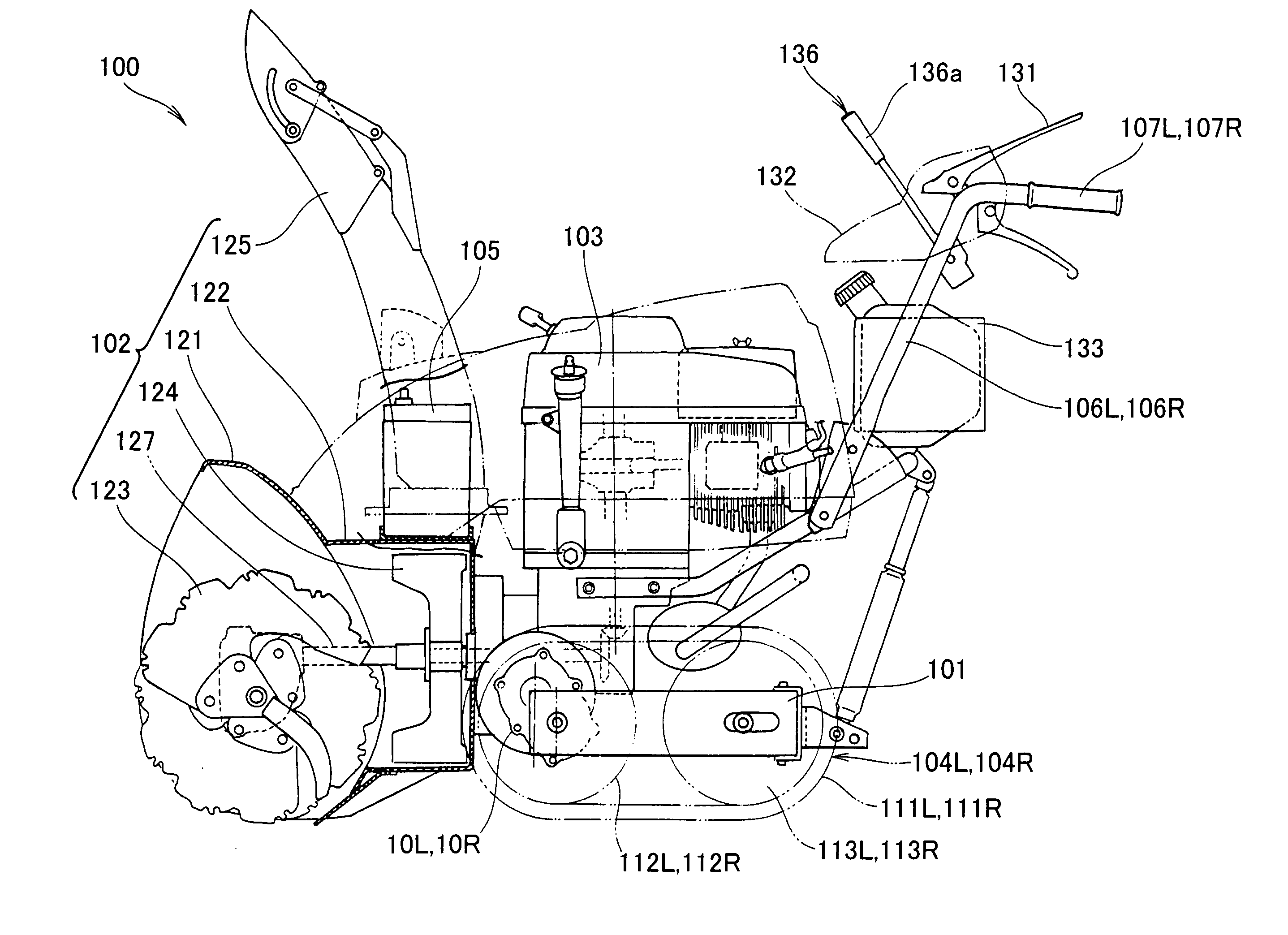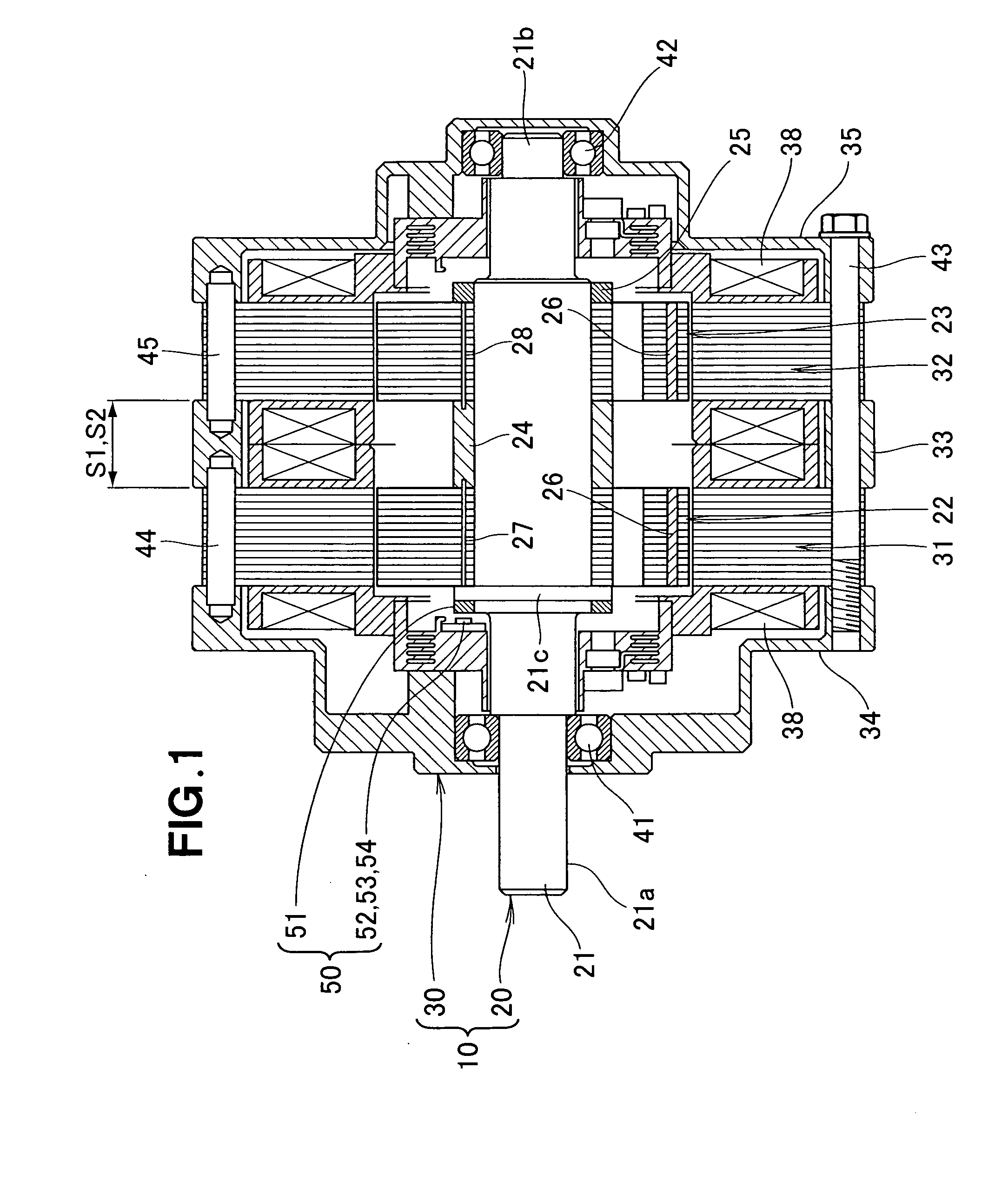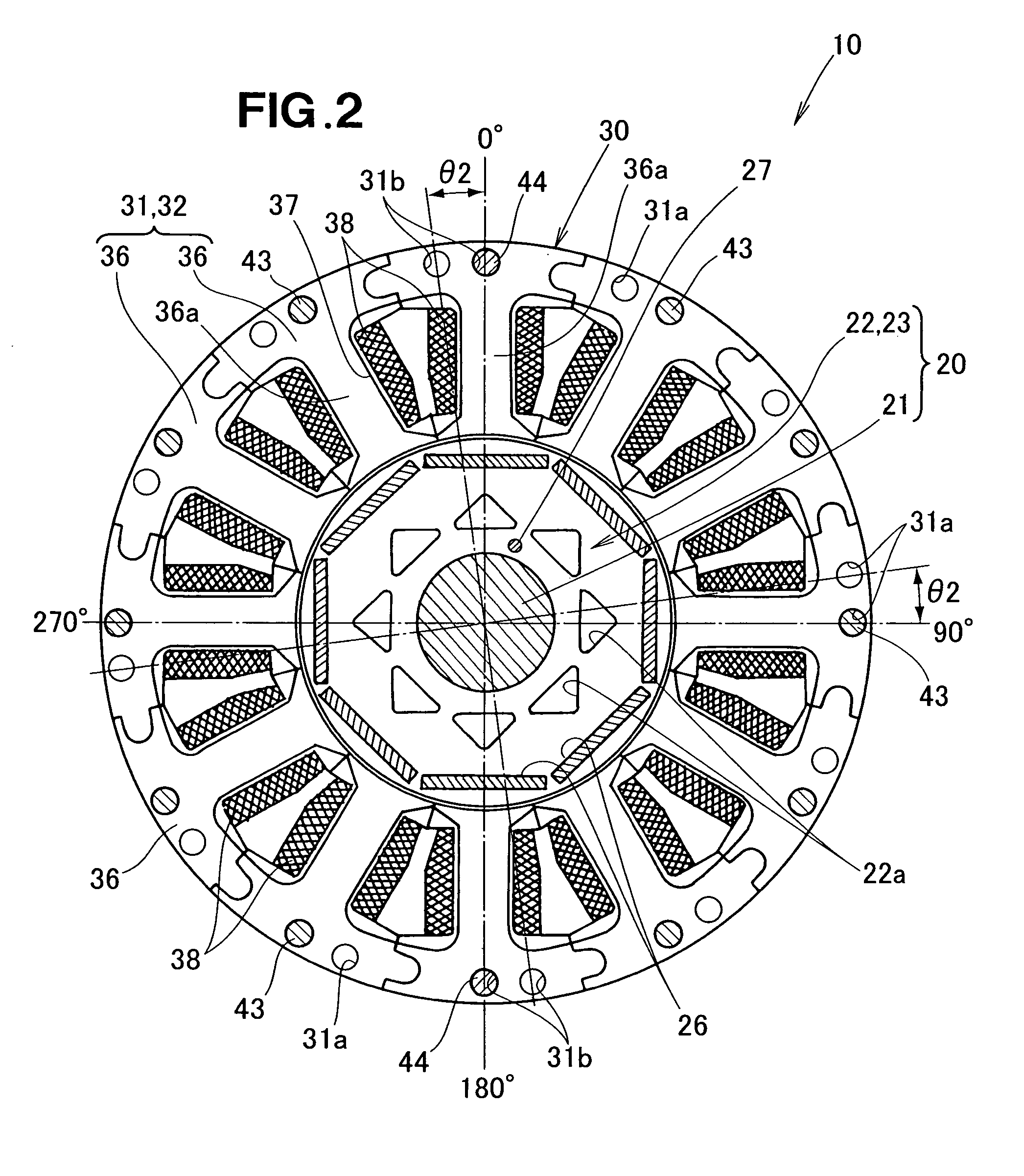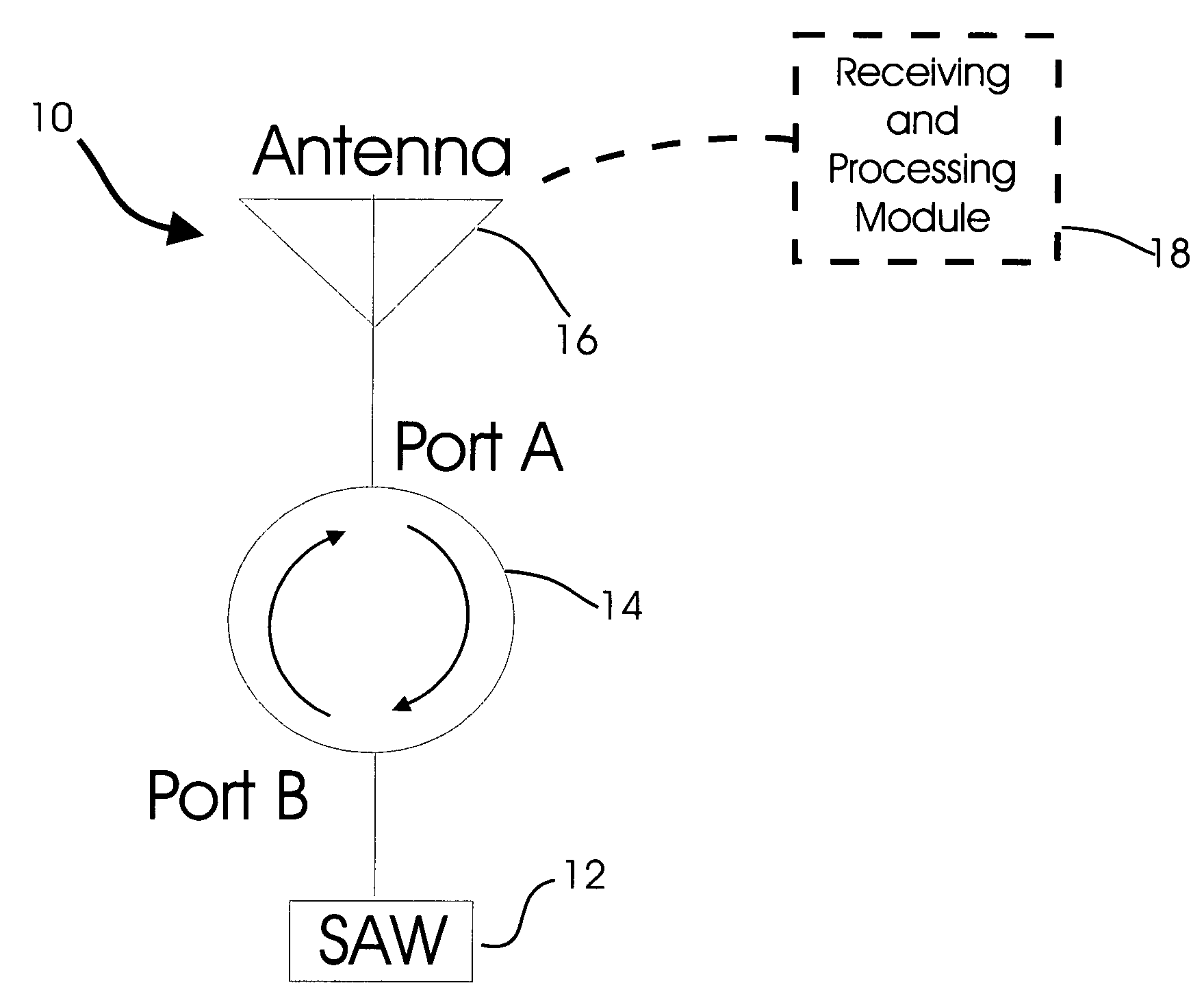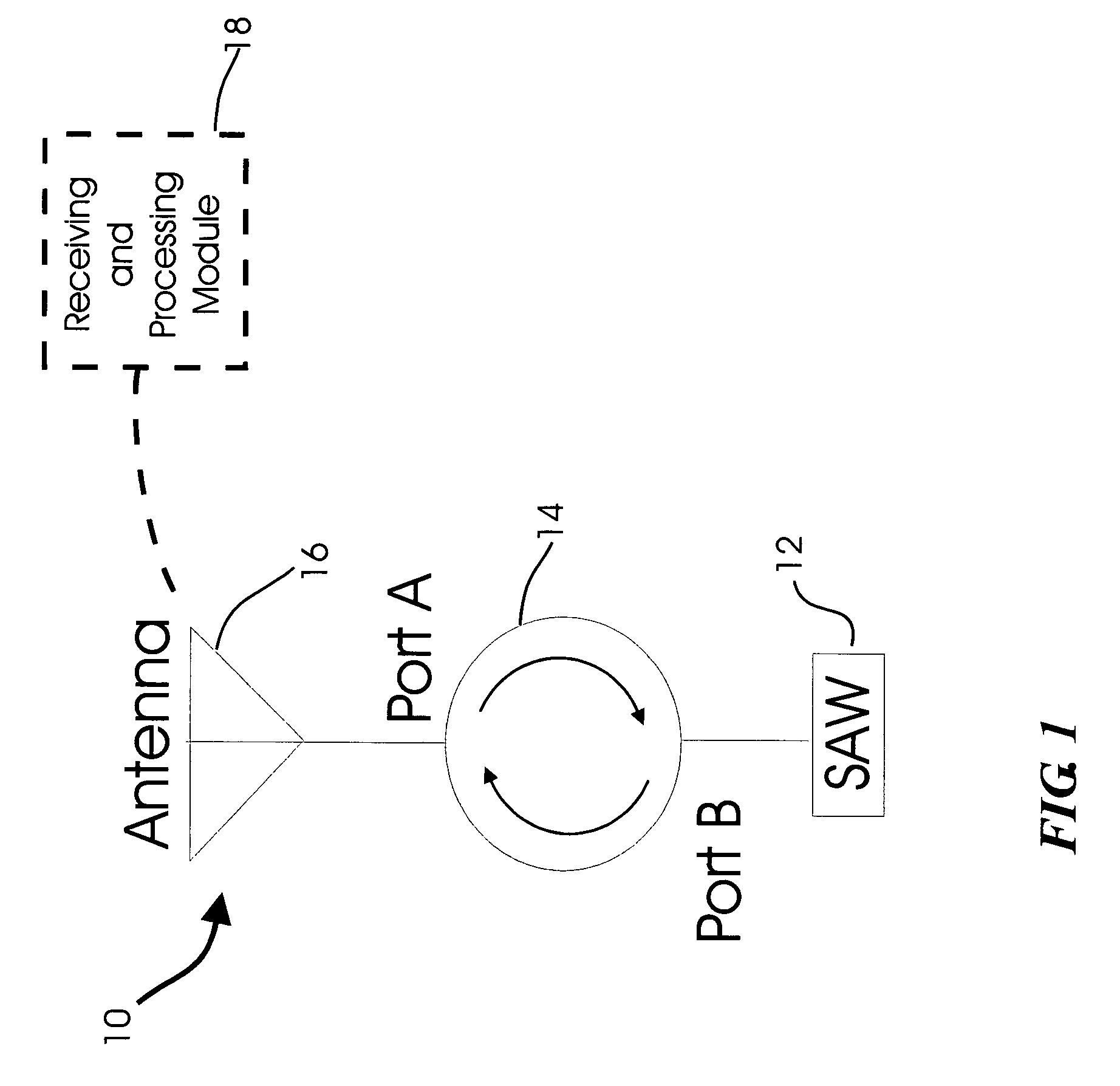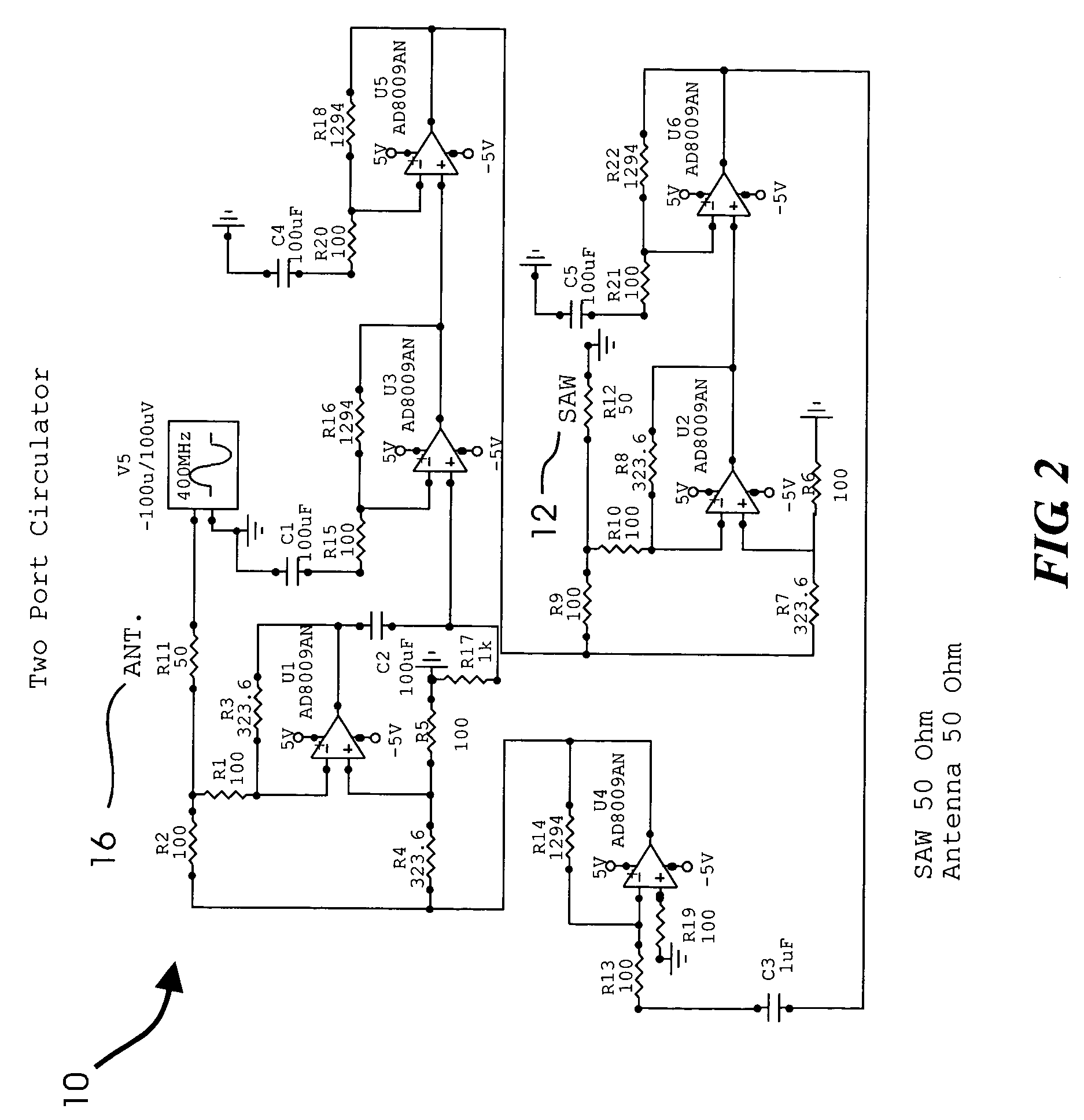Patents
Literature
100results about How to "Prevent over-charging" patented technology
Efficacy Topic
Property
Owner
Technical Advancement
Application Domain
Technology Topic
Technology Field Word
Patent Country/Region
Patent Type
Patent Status
Application Year
Inventor
Efficiency booster circuit and technique for maximizing power point tracking
InactiveUS20060174939A1Reduce voltageConsiderable amount of energyBatteries circuit arrangementsPV power plantsSolar cellPoint tracking
The present invention provides an efficiency booster circuit and accompanying switch mode power conversion technique to efficiently capture the power generated from a solar cell array that would normally have been lost, for example, under reduced incident solar radiation. In an embodiment of the invention, the efficiency booster circuit generates an output current from the solar cell power source using a switch mode power converter. A control loop is closed around the input voltage to the converter circuit and not around the output voltage. The output voltage is allowed to float, being clamped by the loading conditions. If the outputs from multiple units are tied together, the currents will sum. If the output(s) are connected to a battery, the battery's potential will clamp the voltage during charge. This technique allows all solar cells in an array that are producing power and connected in parallel to work at their peak efficiency.
Owner:ISG TECH
Advertising revenue sharing
ActiveUS20110238501A1Foster content creation contentFoster useAdvertisementsComputer security arrangementsPaymentContent page
A method of host development is based on paying the writer of free content through advertising revenue sharing. Steps include receiving an advertisement, which is paid content, from an advertiser; receiving non-paid content subject to a condition that the provider may receive no compensation for the non-paid content; combining the paid content and the non-paid content on a content page; registering a user to interact with the content page; sending the content page for display on a computer operated by the user; calculating a number equaling all interactions of the user with the paid content; receiving payment from the advertiser for said number; and paying the provider based on a fraction of the payment.
Owner:PILOANDIA LLC
Adjustable alarm device for sliding doors and windows
An adjustable alarm device for windows and doors is installed between the door or window frame and the door or window sash. The longitudinal axis of the alarm device is preferably horizontal. When engaged, movement of the door or window in an open direction will activate the alarm. The body of the alarm device is elongate, tubular and telescoping. The body comprises an outer tube that receives an inner tube. The body of the alarm device may be locked in an extended position by way of a cam mounted on the inner tube and positioned within the body so that when the inner and outer tubes of the body are twisted about their longitudinal axis, the cam body will engage the inner surface of the outer tube in a releasable frictional locking engagement. The alarm device is coupled to one end of the inner tube.
Owner:ALLEN ROBERT
Method of controlling rechargeable battery power and a power source apparatus
InactiveUS20060087291A1Appropriate settingAvoid excessive dischargeCharging stationsSecondary cells charging/dischargingBattery chargeMemory effect
The method of controlling rechargeable battery power is a method that includes limiting the amount of usable power during rechargeable battery charging and discharging, determining a rechargeable battery current-voltage characteristic function based on rechargeable battery charging and discharging current flow and voltage, finding a limiting discharging current Imax and / or a limiting charging current Imin from a prescribed minimum voltage Vmin to prevent over-discharging and / or a prescribed maximum voltage Vmax to prevent over-charging and their intersection with the current-voltage characteristic function, and controlling current such that discharging current greater than or equal to Imax and / or charging current less than or equal to Imin does not flow through the rechargeable batteries. In this fashion, the amount of usable power can be limited considering factors such as the memory effect, and the rechargeable battery can be used to its maximum capability within the range of safe operation.
Owner:SANYO ELECTRIC CO LTD
Torque-based powertrain control for vehicles
ActiveUS7275518B1Prevent over-chargingImproved torque controlElectrical controlInternal combustion piston enginesEngineeringPowertrain control
A system and method for controlling a vehicle powertrain having an internal combustion engine include determining a difference between a desired engine torque and a current engine torque, adjusting the difference based on a stored torque offset corresponding to a current engine speed, and controlling the engine to produce a torque corresponding to the adjusted torque difference. The stored torque offset is adjusted when the engine is operating in a predetermined engine speed range based on a steady-state difference between the desired and current engine torque to reduce the steady-state difference to zero. The adjusted torque difference may be limited by a maximum-engine-torque-available parameter and a minimum-engine-torque-available parameter, which is based on an operating temperature, such as the engine coolant temperature. The system and method may also include controlling spark to rapidly reduce current engine torque to the adjusted torque difference value.
Owner:FORD GLOBAL TECH LLC
Switch Driving Circuit And Driving Method Thereof
ActiveUS20110080205A1Prevent over-chargingAvoid damageTransistorElectronic switchingVoltage referenceEngineering
The present invention relates to a switch driving circuit and a driving method thereof.The switch driving circuit according to the present invention is supplied with a first voltage and a second voltage, is driven by a voltage difference between the first and second voltages, controls a switching operation of a power switch according to a switch driving control signal, generates a sense voltage corresponding to the second voltage, compares a predetermined reference voltage with the sense voltage, and stops the switching operation of the power switch according to the comparison result.
Owner:SEMICON COMPONENTS IND LLC
Wireless, battery-powered, photovoltaically charged and monitored runway-based aircraft identification system and method
InactiveUS20090099761A1Prevent over-chargingAnalogue computers for vehiclesAnalogue computers for trafficElectrical batteryEngineering
A battery-powered runway-based aircraft identification system includes a frangibly mounted image capture and communication subsystem adjacent to an airport runway. A power supply subsystem adjacent to the frangibly mounted image capture and communication subsystem is operably coupled to the frangibly mounted image capture and communication subsystem and configured to controllably supply electrical power to the frangibly mounted image capture and communication subsystem. The power supply subsystem includes at least one frangibly mounted solar panel operably coupled to a deep cycle battery and charge controller. A remote base station configured for wireless communication with the frangibly mounted image capture and communication subsystem monitors charge status of the battery and determines an aircraft identification from the frangibly mounted image capture and communication subsystem.
Owner:GENPOWER
System and method for efficiently implementing a battery controller for an electronic device
ActiveUS20050093512A1Efficient implementationProviding operating powerCells structural combinationApparatus without intermediate ac conversionElectric forceEmbedded system
A system and method for effectively managing operating power for an electronic device may include a battery pack coupled to the electronic device for supplying operating power to the electronic device. A battery controller may be configured as a single integrated-circuit device to alternately manage the battery pack either in a single-cell implementation or in a dual-cell implementation. The battery controller may include a charge pump device to provide an internal controller power supply for operating the battery controller in the single-cell implementation.
Owner:SONY CORP +1
Method and system for estimating state of charge of a lithium electrochemical cell having a lithium phosphate type positive electrode
ActiveUS20130229154A1Accurately determinedPrevent over-chargingBatteries circuit arrangementsCell electrodesCurrent sensorPhosphoric acid
A method and system are provided for estimating state of charge of a cell having a positive electrode, for example of a lithium phosphate type, the charge profile of which includes a range of state of charge between about 30 and about 90% in which variation of voltage is 10 times less rapid than for a state of charge higher than 90%. Determination of state of charge for a state of charge greater than 90% is based on either the use of a calibration relationship between cell voltage and state of charge when a current is passing through the cell that is less than a predetermined threshold value and its voltage has stabilized, or on the use of coulometry the result of which is corrected taking into account the accuracy of the current sensor.
Owner:SAFT GRP SA
Charger assembly
InactiveUS20020000789A1Reduce the possibilityAvoid dischargeBatteries circuit arrangementsSecondary cells charging/dischargingEngineeringTrickle charging
A charger assembly 10 for use with a battery assembly 22. Charger assembly 10 includes a member 50 which is selectively and removably insertable into a conventional electrical power outlet, effective to allow electrical power to be communicated to the charger assembly 10. The communicated electrical power is selectively transferred to the battery assembly 22, effective to substantially and fully charge the battery assembly 22 in a manner which substantially reduces the likelihood of overcharging and in a manner which selectively allows a "float" voltage or "trickle charge" to be provided to the battery assembly 22.
Owner:HABA CHAZ G
Nonaqueous electrolytic solution and secondary battery containing the same
InactiveUS20030068561A1Prevent over-chargingOrganic chemistryNon-aqueous electrolyte accumulatorsOrganic solventHydrogen atom
There are disclosed a non-aqueous electrolyte which comprises a non-aqueous organic solvent and a lithium salt, and further contains a compound represented by the following formula (I): wherein X represents -O-, -S-, -CO- or -SO2, Y represents a single bond, -CH2-, -CH2-CH2-, -CH=CH- or -CO- and R<1 >to R<8 >each independently represent a hydrogen atom, an alkyl group, a phenyl group, or a halogen group, provided that X and Y do not represent -CO- at the same time..
Owner:MITSUBISHI CHEM CORP
Solar hydrogen generation system
InactiveUS20070277870A1Components is relatively effectiveImprove efficiencyElectrolysis componentsPV power plantsHydrogenSolar hydrogen
A solar hydrogen generation system is disclosed that efficiently utilizes photovoltaic cells, storage batteries, and electrolyzers to generate hydrogen from the sun by direct coupling of these components. The system mutually arranges the photovoltaic cells, batteries, and electrolyzers in series, and the series components in parallel. The arrangement allows the voltages of the photovoltaic cells, batteries, and electrolyzers to match each other for optimal performance. The invention further provides for continuous hydrogen generation, even through the night or periods of low solar flux, and a system for preventing the overcharging of the batteries.
Owner:WECHSLER MARK
Driver Device for a Load and Method of Driving a Load With Such A Driver Device
ActiveUS20100181936A1Additional losses or influences on the load behavior should be avoidedReduce intensityElectroluminescent light sourcesSemiconductor lamp usageEngineeringEnergy storage
The invention relates to a driver device for a load (11), particularly an LED / OLED unit (12; 20, 22), comprising a shunting switch (30) parallel to the load, a control unit (14, 26) for controlling the shunting switch (30), an energy storage element (40) adapted to supply energy to at least the control unit (14, 26), and a recharge control circuitry (46) arranged in series with the energy storage element (40), the series connection of energy storage element (40) and recharge control circuitry (46) being provided parallel to the shunting switch (30), wherein said control unit (14, 26) is adapted to activate said recharge control circuitry (46) and to switch said shunting switch (30) off, when said energy storage element (40) is to be recharged. The invention also relates to a method of driving a load (11).
Owner:SIGNIFY HLDG BV
Control apparatus for vehicular power transmitting system
InactiveUS7927250B2Prevent overchargingImprove life expectancyHybrid vehiclesDigital data processing detailsDrive wheelProportional control
Owner:TOYOTA JIDOSHA KK
Control apparatus for hybrid vehicle
ActiveUS20050014602A1Suppress abrupt increasePrevent over-chargingDigital data processing detailsPlural diverse prime-mover propulsion mountingInternal resistanceHigh voltage battery
In a control device of a hybrid vehicle provided with an engine and a propulsion motor, at least one of which is used for driving the hybrid vehicle and a high voltage battery which power is charged and discharged by driving or regeneration operation of a propulsion motor, the control device comprises a throttle opening control device which controls an opening of a throttle depending on an accelerator pedal operating amount, and when the current driving speed of the vehicle at zero, and either the temperature of the high voltage battery is lower than a specified value, or the internal resistance of the high voltage battery is greater than a specified value, or an increase in a rotation speed of the propulsion motor or the rotation speed of the engine 3 is greater than a specified value, or a change amount of the input / output power voltage of the high voltage battery is greater than a specified value, or a change amount of the accelerator pedal operating amount is greater than a specified value, delays the response characteristic of the throttle opening with respect to the accelerator pedal operating amount more than for a standard control, and also performs control in which the upper limit value thereof is limited.
Owner:HONDA MOTOR CO LTD
Control apparatus for hybrid vehicle
ActiveUS6966803B2Prevent over-chargingDigital data processing detailsPlural diverse prime-mover propulsion mountingInternal resistanceHigh voltage battery
In a control device of a hybrid vehicle provided with an engine and a propulsion motor, at least one of which is used for driving the hybrid vehicle and a high voltage battery which power is charged and discharged by driving or regeneration operation of a propulsion motor, the control device comprises a throttle opening control device which controls an opening of a throttle depending on an accelerator pedal operating amount, and when the current driving speed of the vehicle at zero, and either the temperature of the high voltage battery is lower than a specified value, or the internal resistance of the high voltage battery is greater than a specified value, or an increase in a rotation speed of the propulsion motor or the rotation speed of the engine 3 is greater than a specified value, or a change amount of the input / output power voltage of the high voltage battery is greater than a specified value, or a change amount of the accelerator pedal operating amount is greater than a specified value, delays the response characteristic of the throttle opening with respect to the accelerator pedal operating amount more than for a standard control, and also performs control in which the upper limit value thereof is limited.
Owner:HONDA MOTOR CO LTD
Wind Power Generation System and Control Method Thereof
ActiveUS20080304188A1Quick restartPrevent over-chargingEmergency protective circuit arrangementsElectric motor propulsion transmissionTransverterSystem failure
In a wind power generation system, an energy consuming unit is connected to a DC part of a generator-side converter. A shunt circuit is connected between the generator-side converter and a rotor of an AC-excited power generator. In the event of system failure, the switching operation of the converter is stopped, the shunt circuit is put into operation, and the energy consuming unit is put into operation so that DC voltage (voltage of the DC part) is maintained within a prescribed range.
Owner:HITACHI IND PROD LTD
Battery protection circuit and method for energy harvester circuit
ActiveUS20110199057A1Preventing surge current damagePrevent over-chargingDc network circuit arrangementsEmergency protective circuit arrangementsEnergy harvesterElectrical battery
Power management circuitry (7-2,3,4) for converting a harvested voltage (Vhrv) to an output voltage (VBAT) applied to a battery (6) includes an inductor (L0) having a first terminal (3) coupled to receive the harvested voltage (Vhrv) and a second terminal coupled to a first terminal of a first switch (S0). The power management circuitry transfers the current generated by an energy harvester (2) to the battery if it (6) is not fully charged, and shunts the current away from the battery (6) to avoid overcharging if it is fully charged.
Owner:INTEL CORP
Building alarm system with synchronized strobes
InactiveUS20060087421A1Prevent over-chargingFrequency-division multiplex detailsTelephonic communicationFire alarm systemEngineering
Owner:ADT SERVICES
Multi-adjustable spotlight with variably positionable handle and variable light intensity
InactiveUS20050007769A1Control outputFacilitate pivotingLighting support devicesElectric circuit arrangementsElectrical batteryRechargeable cell
A spotlight having pivotable locking handle, a rechargeable battery connected to a light bulb, housed in a housing, including an on / off switch and a variable switch varying the amount of current powering the light bulb thereby providing for a generally infinite adjustment of light intensity within a designated range.
Owner:BON AIRE IND
Battery protection circuit and method for energy harvester circuit
ActiveUS8253389B2Preventing surge current damagePrevent over-chargingDc network circuit arrangementsEmergency protective circuit arrangementsEnergy harvesterEngineering
Power management circuitry (7-2,3,4) for converting a harvested voltage (Vhrv) to an output voltage (VBAT) applied to a battery (6) includes an inductor (L0) having a first terminal (3) coupled to receive the harvested voltage (Vhrv) and a second terminal coupled to a first terminal of a first switch (S0). The power management circuitry transfers the current generated by an energy harvester (2) to the battery if it (6) is not fully charged, and shunts the current away from the battery (6) to avoid overcharging if it is fully charged.
Owner:INTEL CORP
Power supply apparatus
InactiveUS20050173985A1Improve efficiencyCurrent is limitedCircuit monitoring/indicationElectric devicesCharge currentEngineering
The power supply apparatus is directed to enable a battery to be properly controlled for charging / discharging. A detection unit 21 detects battery voltage V, battery current I and battery ambient temperature T. A battery capacity calculation device 23 and a discharging rate calculation unit 25 estimate battery capacity and discharging rate respectively. A discharge-allowable-duration calculation unit 26 calculates discharge-allowable-duration. This discharge-allowable-duration is used for restriction the discharge-duration of the battery 6. The battery 6 is charged with the output of the generator. Charging current is restricted in accordance with upper-limit-charging-current that is calculated in an upper-limit-charging-current calculation unit 27.
Owner:HONDA MOTOR CO LTD
Smart Battery Charging System For Electrical Generator
InactiveUS20110291621A1Prolong lifeEasy maintenanceBatteries circuit arrangementsSecondary cells charging/dischargingAlternatorEngineering
An electrical generator has an engine that provides a mechanical output that is converted to electrical current by an alternator. The engine is started by a battery-powered motor starter. The battery is charged during running of the electrical generator by a portion of the electrical current output by the alternator. The battery is charged according to a charging profile based on the temperature of the battery at start up of the electrical generator.
Owner:GENERAC POWER SYSTEMS
Advertising revenue sharing
ActiveUS8140384B2Foster creationFoster useAdvertisementsComputer security arrangementsPaymentContent page
A method of host development is based on paying the writer of free content through advertising revenue sharing. Steps include receiving an advertisement, which is paid content, from an advertiser; receiving non-paid content subject to a condition that the provider may receive no compensation for the non-paid content; combining the paid content and the non-paid content on a content page; registering a user to interact with the content page; sending the content page for display on a computer operated by the user; calculating a number equaling all interactions of the user with the paid content; receiving payment from the advertiser for said number; and paying the provider based on a fraction of the payment.
Owner:PILOANDIA LLC
Protection Circuits for Secondary Batteries
InactiveUS20110157755A1Prevent overchargingAvoid chargingEmergency protective arrangements for automatic disconnectionCell component detailsElectrical and Electronics engineering
Owner:HITACHI LTD
Apparatus and method for preventing over-charging of battery
ActiveUS10414285B2Prevent over-chargingCharging stationsElectric devicesElectrical batteryEngineering
The present invention relates to an apparatus for preventing a battery including a master battery and a slave battery from being over-charged, the apparatus including: a master battery management system (BMS) which determines whether the master battery is over-charged, and turns off a main relay which connects or disconnects between the battery and a motor of a vehicle when the master battery is over-charged as a result of the determination; and a slave BMS which determines whether the slave battery is over-charged, and turns off a charging relay which connects or disconnects between the battery and a charger provided outside the vehicle when the slave battery is over-charged as a result of the determination.
Owner:HYUNDAI MOBIS CO LTD
Hybrid vehicle
InactiveUS20110000725A1Reduce energy consumptionPrevent over-chargingElectrodynamic brake systemsPropulsion using engine-driven generatorsAutomotive engineeringElectric generator
In a hybrid vehicle including an engine; a generator for generating electrical power from the engine; a battery charged with electrical power generated by the generator; and a motor driven by electrical power generated by the generator or by electrical power output by the battery, and with a view to reducing energy consumption from the battery without using complicated control operations while preventing overcharging of the battery, the hybrid vehicle further includes a motoring control unit for starting motoring, i.e., mechanical driving of the engine, in addition to regenerative power generation when a state of charge of the battery reaches a first set value and stopping the motoring of the engine when the state of charge of the battery reaches a second set value. A battery management unit is also provided for starting power generation from the engine when a state of charge of the battery becomes higher than a third set value and stopping the engine when the state of charge of the battery reaches a fourth set value. Engine motoring control during regeneration and control of power generation by the engine can be separately performed.
Owner:SUZUKI MOTOR CO LTD
System and method for efficiently implementing a battery controller for an electronic device
ActiveUS7091697B2Efficient implementationProviding operating powerCells structural combinationApparatus without intermediate ac conversionEngineeringBattery pack
A system and method for effectively managing operating power for an electronic device may include a battery pack coupled to the electronic device for supplying operating power to the electronic device. A battery controller may be configured as a single integrated-circuit device to alternately manage the battery pack either in a single-cell implementation or in a dual-cell implementation. The battery controller may include a charge pump device to provide an internal controller power supply for operating the battery controller in the single-cell implementation.
Owner:SONY CORP +1
Electric motor, power apparatus using the same, and self-propelled snow remover
ActiveUS20080289226A1Reduce torque rippleSimple configurationTorque ripple controlMagnetic circuitControl theoryPower apparatus
A electric motor is disclosed in which torque ripple is reduced. The electric motor includes a single motor shaft. Rotors are disposed so as to be mutually offset in phase, and the rotors are secured to the motor shaft. Stators are arranged so as to individually correspond to the rotors, and the stators are disposed so as to be matched in phase. The phases of torque ripple generated in each motor unit, which is comprised of a combination of a single rotor and a single stator, are offset.
Owner:HONDA MOTOR CO LTD
Apparatus and method for boosting signals from a signal-generating or modifying device
InactiveUS7253725B2Increased pumpingPrevent over-chargingCheck valvesSensing record carriersElectricityEngineering
Arrangement for providing a boosted signal from a signal-generating device, such as a SAW device or an RFID tag, including an antenna and a circulator having a first port connected to the antenna to receive a signal therefrom and a second port connectable to the device to provide a signal thereto and receive a signal therefrom. The circulator amplifies the signal from the antenna and the signal received from the device such that a twice-amplified signal is directed to the antenna. A receiving and processing module transmits a signal to the antenna causing the antenna to generate its signal and receive a signal from the antenna derived from the twice-amplified signal. Various pumping systems for vehicle tires and electricity generating systems which generate energy upon rotation of a tire are also disclosed.
Owner:AMERICAN VEHICULAR SCI
Features
- R&D
- Intellectual Property
- Life Sciences
- Materials
- Tech Scout
Why Patsnap Eureka
- Unparalleled Data Quality
- Higher Quality Content
- 60% Fewer Hallucinations
Social media
Patsnap Eureka Blog
Learn More Browse by: Latest US Patents, China's latest patents, Technical Efficacy Thesaurus, Application Domain, Technology Topic, Popular Technical Reports.
© 2025 PatSnap. All rights reserved.Legal|Privacy policy|Modern Slavery Act Transparency Statement|Sitemap|About US| Contact US: help@patsnap.com
